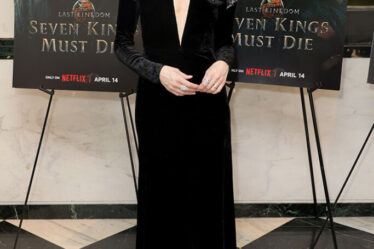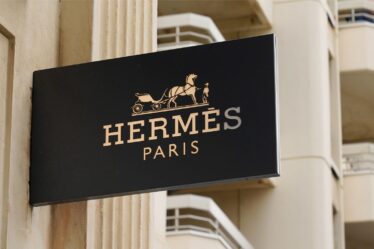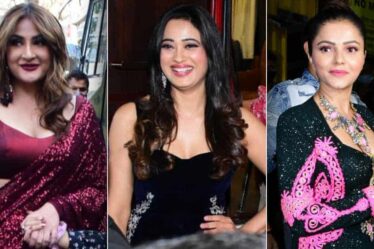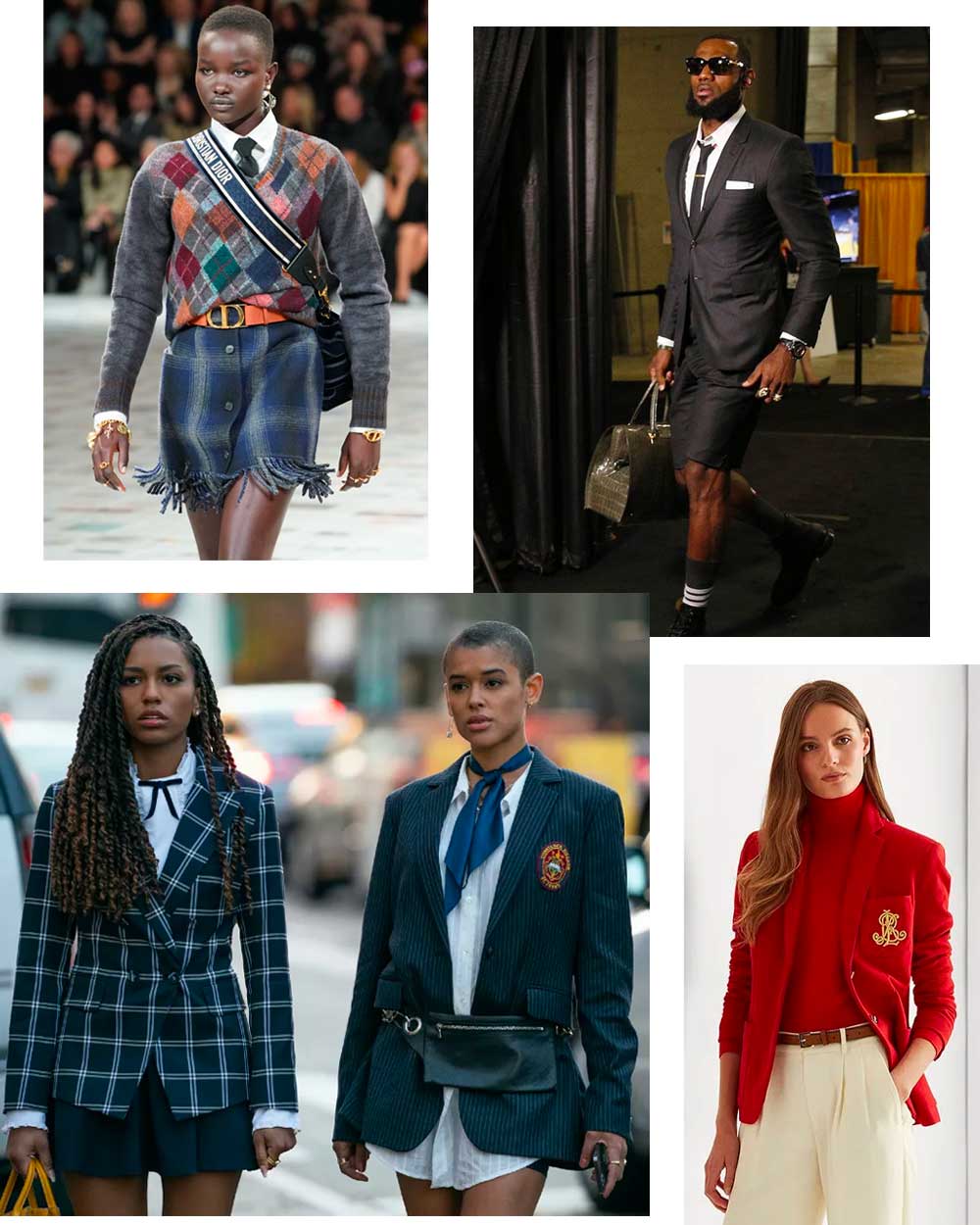
What is Preppy Fashion?
Preppy fashion is a generic term encapsulating the socio-political movements, trends, media, celebrities, and trendsetters that contributed to the Punk subculture’s unique way of dressing, nowadays recorded in fashion books as Preppy Style.
Compared to Preppy Style – the subculture’s distinct way of dressing comprised of garments, footwear, and accessories – Preppy fashion is a dynamic construct encompassing fashion design, manufacturing, marketing, and consumption, influenced by cultural, social, and economic trends.
Preppy fashion – as a way of dressing – emerged in the early 1900s, inspired by the uniforms of elite Northeastern United States preparatory schools and Ivy League universities.

As the early American institutions were built around the British educational system (attire and activities), Preppy fashion is inspired by the aesthetics of traditional British preparatory schools.
Nowadays, Preppy fashion comprises several variations of dressing styles that blend Preppy’s conservative aesthetics with on-trend casual elements, continuing to reflect elegance, refinement, elitism, and an affluent lifestyle.
The Origin
Three (3) areas in the United States are credited with creating the Preppy dressing style and its adoption: Northeastern or New England, the Upper Midwest, and the American South.
Each area contributed to the creation of the Preppy subculture and has unique aesthetic elements, such as colors, materials, patterns, and silhouettes that reflect their geographies, weather, and cultures.
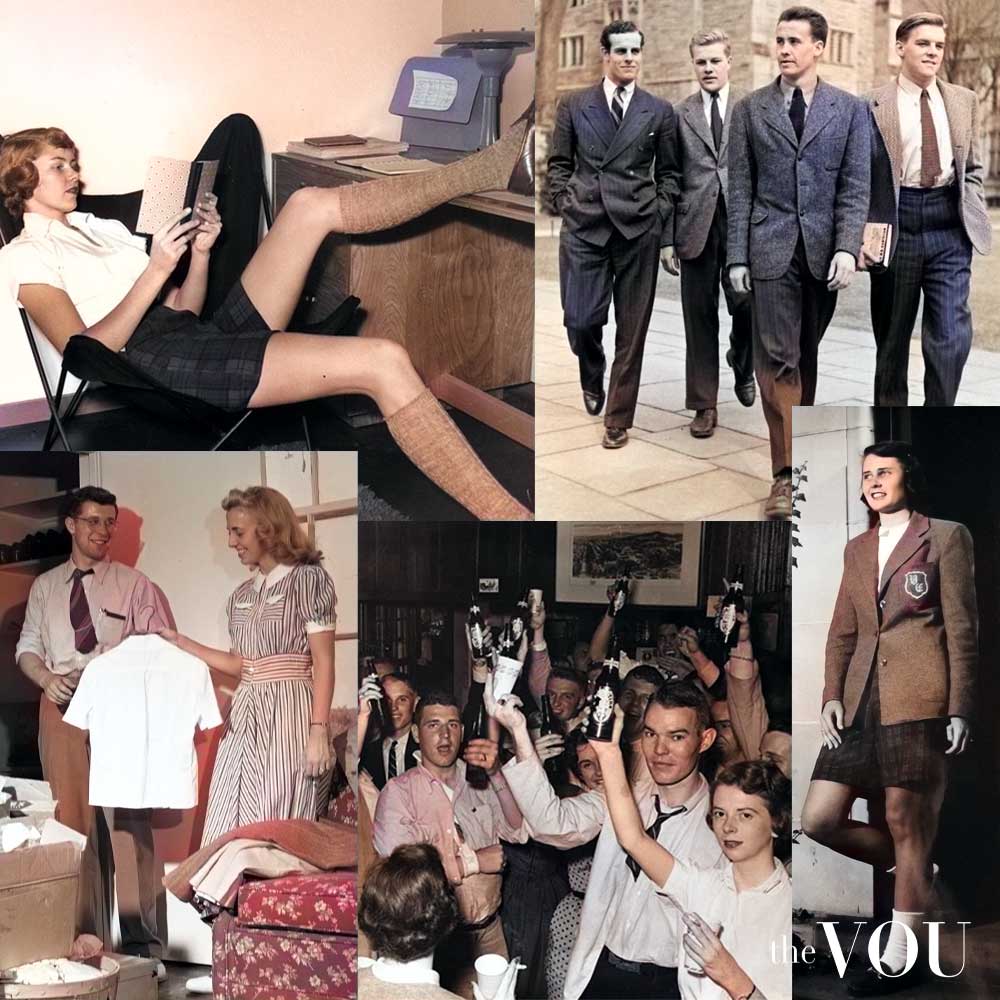

1. New England (Ivy League)
The earliest Preppy look ever recorded was the dressing style of Ivy League students in the 1950s (also known as “Classic Preppy”).
‘Ivy League’ refers to a group of universities in New England, the eastern US, founded in 1954, including Harvard, Yale, Princeton, Columbia, Cornell, UPenn, Brown, and Dartmouth.
The Ivy League style refers to the universities’ uniforms in the early to mid-20th century.
It incorporated navy blazers, chinos, boat shoes, argyle sweaters, tweed jackets, and Oxford button-down shirts.
The Ivy League look is associated with old money, maritime culture, and elite academic institutions and is considered the most traditional, refined, and popular Preppy look.
2. Upper Midwest (Northern Preppy)
Simultaneously with the Preppies in Ivy League colleges, Preppy communities in the Upper Midwest of the United States created their distinct version of the preppy style.
The Upper Midwest Preppy included Iowa, Minnesota, North Dakota, South Dakota, Wisconsin, and Michigan, thanks to Michigan University.
The Northern Preppy style incorporated flannel shirts, duck boots, cable-knit sweaters, thick chinos, and heavy jackets, reflecting the region’s sporting culture and colder climate.
3. American South (Southern Preppy)
The Southern Preppy style originated from the Southeastern American states of North Carolina, South Carolina, Georgia, and Virginia.
Unlike its northern counterpart, the Southern Preppy style was colorful and had an overall summer vibe due to its hot weather and rich culture, gentility, traditionalism, and slower-paced lifestyle.
The style included pastel-colored Bermuda shorts, light chino trousers, seersucker suits, bow ties, loafers, and many madras and floral prints.
Outdoor activities like horse racing influence the Southern Preppy fashion style, hence the bright colors and playful patterns showcased by representative brands like Vineyard Vines and Lilly Pulitzer.
The Evolution of Preppy Fashion
Preppy fashion has evolved over the decades, impacted by socio-political events, media, trendsetters, and the masses’ changing tastes.
Yet, despite these influences, Preppy has maintained the subculture’s core aesthetic elements and characteristic look.
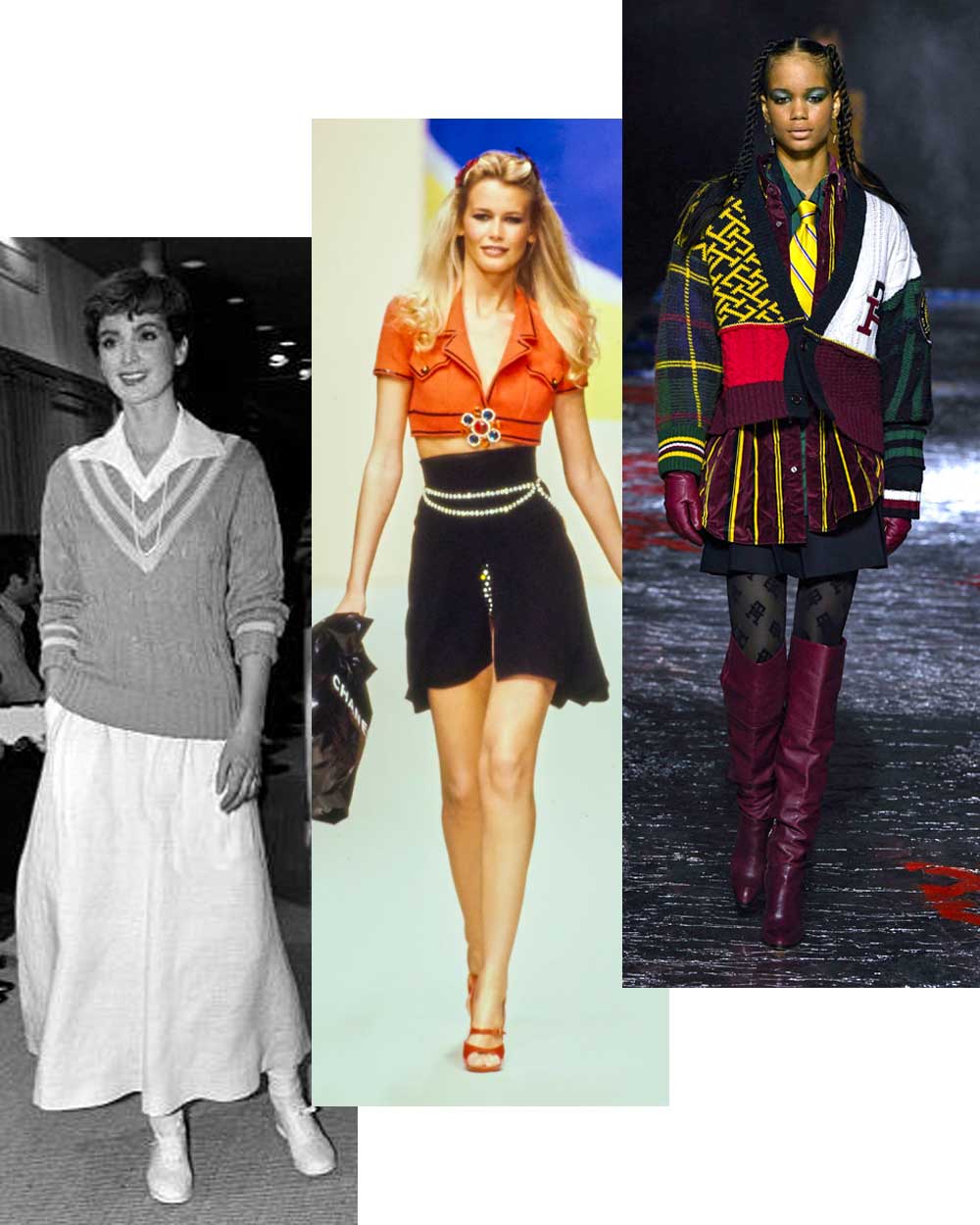

In this section, we will explore the evolution of Preppy Fashion over the decades up to current times, as influenced by socio-political movements, celebrities, media, designers, stylists, and more.
1950s and 1960s
Post-World War II, America experienced a period of economic prosperity, and Preppy fashion became the mainstream way of showcasing wealth and achievement.
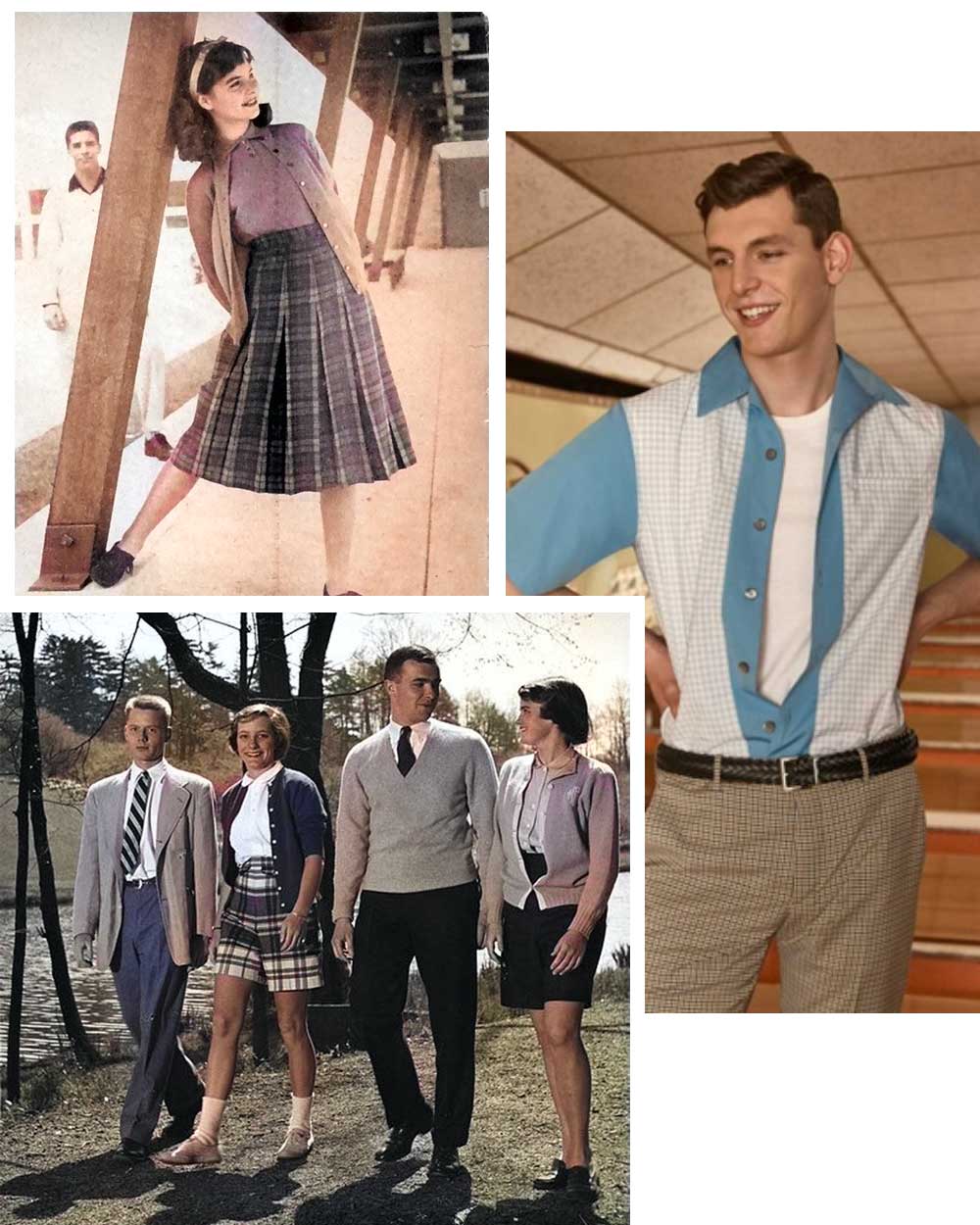

Women’s Preppy fashion style grew in popularity in the 60s, partly thanks to female students at the Seven Sisters Colleges and designers like Perry Ellis and Lilly Pulitzer.
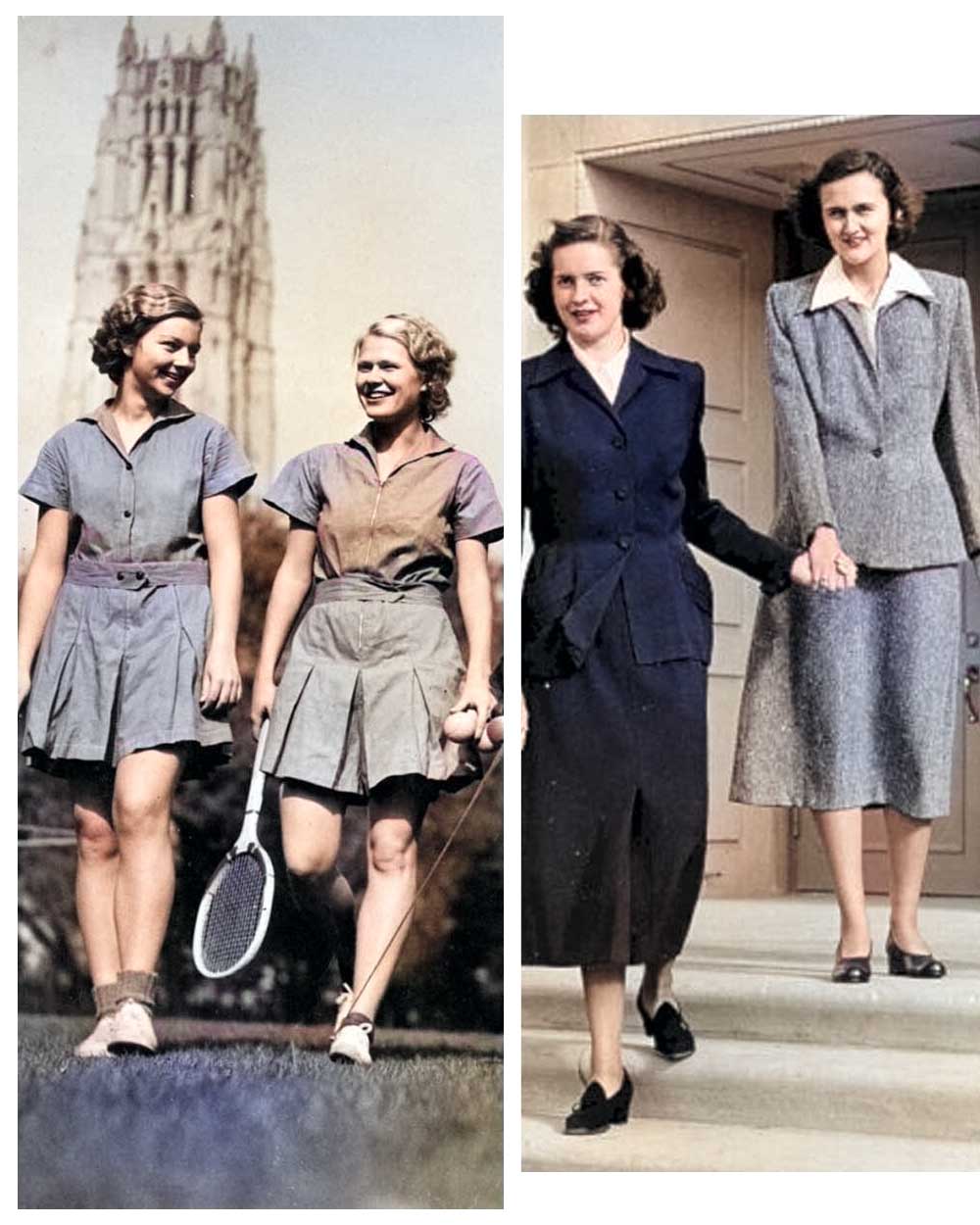

During this decade, brands like Brooks Brothers, Lacoste, and Ralph Lauren gained traction and interest from the general public.
1970s
In the 70s, the Preppy fashion style became a national trend in the United States, breaking out of its northeastern confines.
Many subcultures emerged during the 70s decade, each with distinctive cultural roots, aesthetics, and styles.
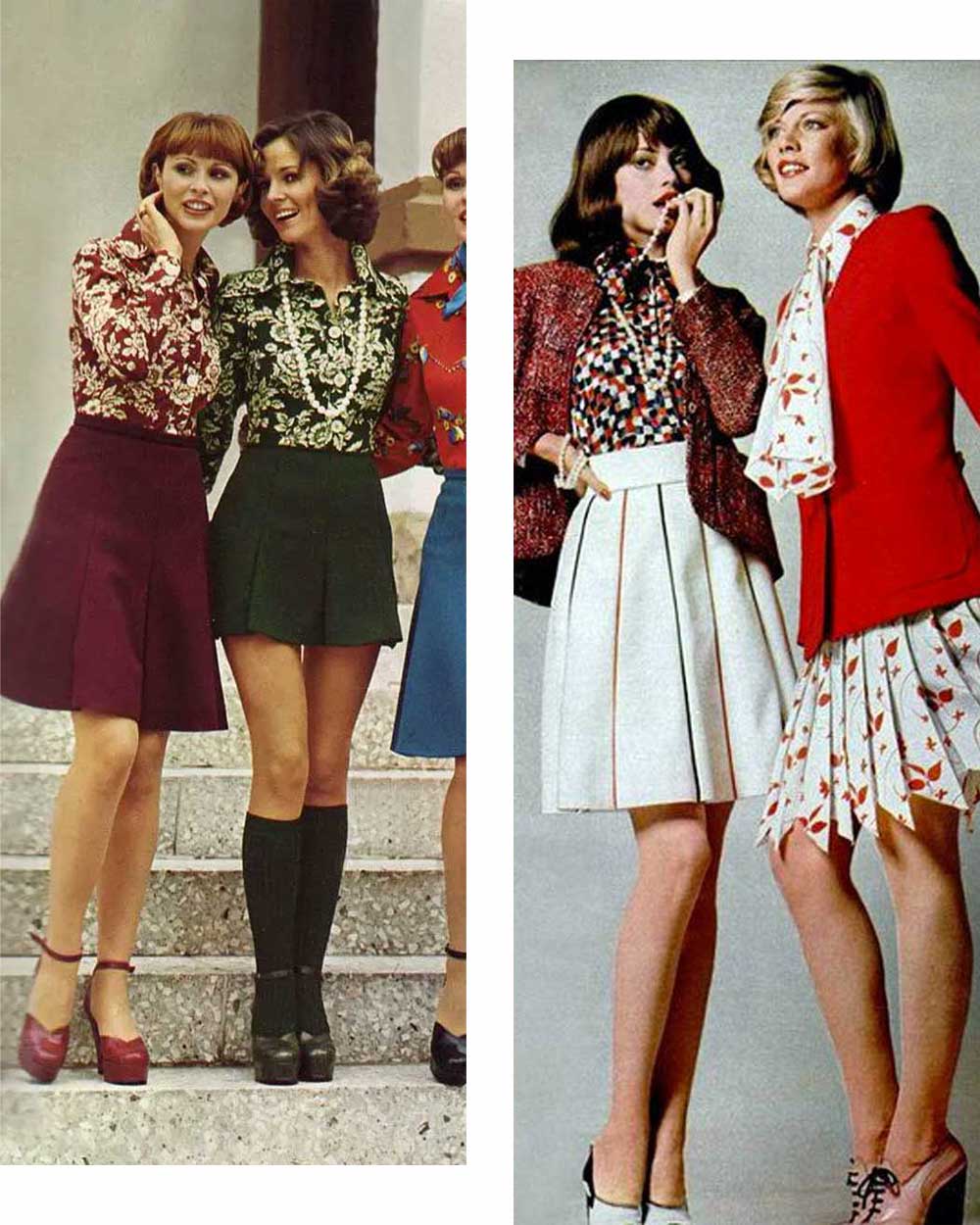

However, thanks to television, movies, and books, Preppy became one of the most popular subcultures of the decade.
Launched as a form of protest against the Vietnam War, the term ‘Flower Power’ became a symbol of passive resistance and nonviolence in the late 60s and early 70s.
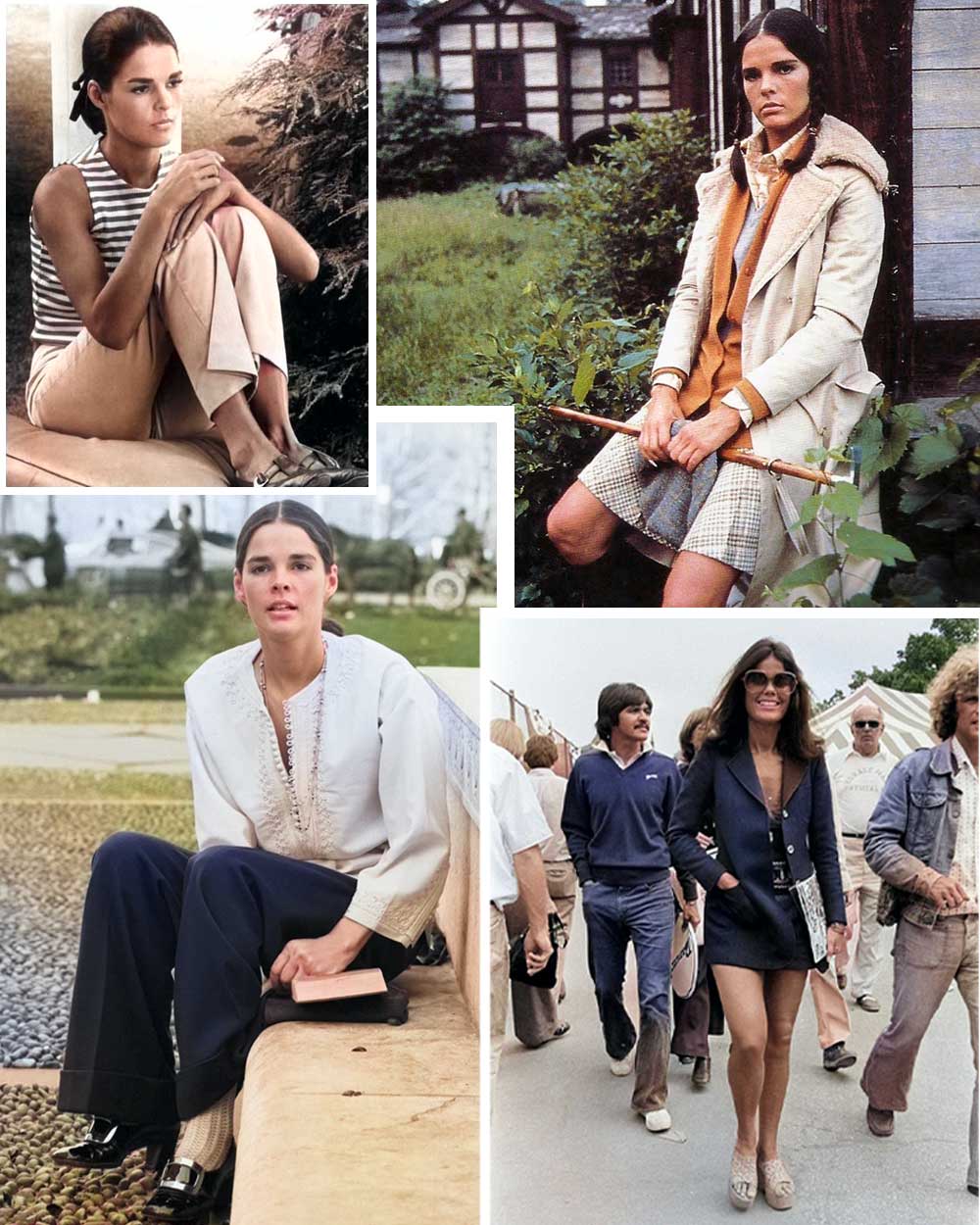

The Hippie subculture embraced the symbol’s peaceful nature and reinforced it further via their bohemian-style clothes with rainbow-colored embroidered flowers.
Under the influence of the Flower Power movement, the blend of Boho and Preppy styles became popular in the 70s, conferring the wearer with a unique look, often showcased by movie stars like Ali MacGraw.
1980s
In the 80s, the Preppy fashion style grew in popularity, partially due to Lisa Birnbach’s “The Official Preppy Handbook,” which, despite being satiric, popularized the lifestyle.
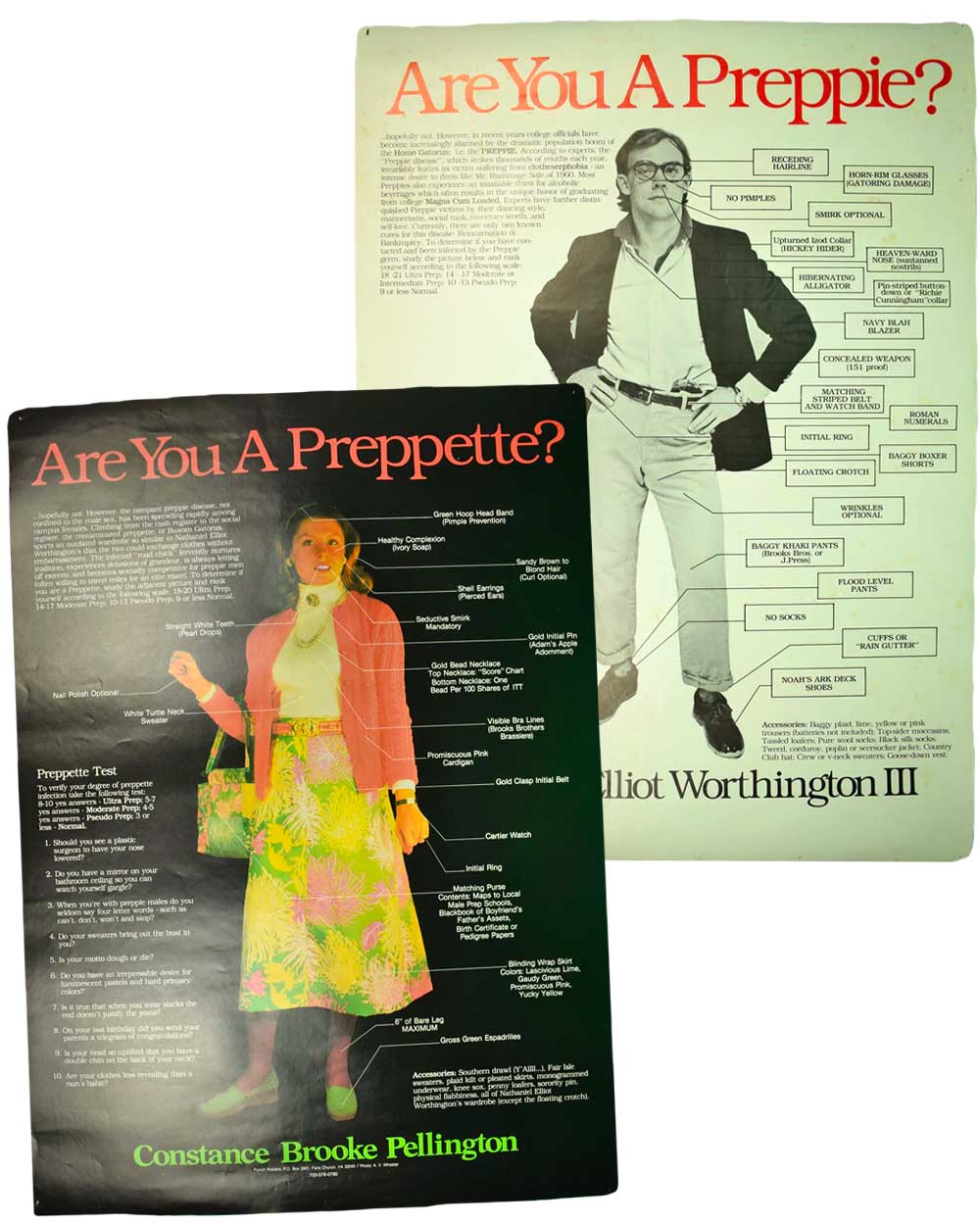

Accessories such as Ray-Ban sunglasses, particularly the Wayfarer or Clubmaster models, became integral to the 80s Preppy look.
At the same time, the ’80s economic boom gave birth to the ‘Yuppie’ subculture, often mistaken as Preppies, given the similar dressing style.
Coined in the 1980s, the term Yuppie was used in a derogatory manner to describe young businesspeople who liked to flaunt material possessions and, thus, were perceived as undeservedly wealthy.
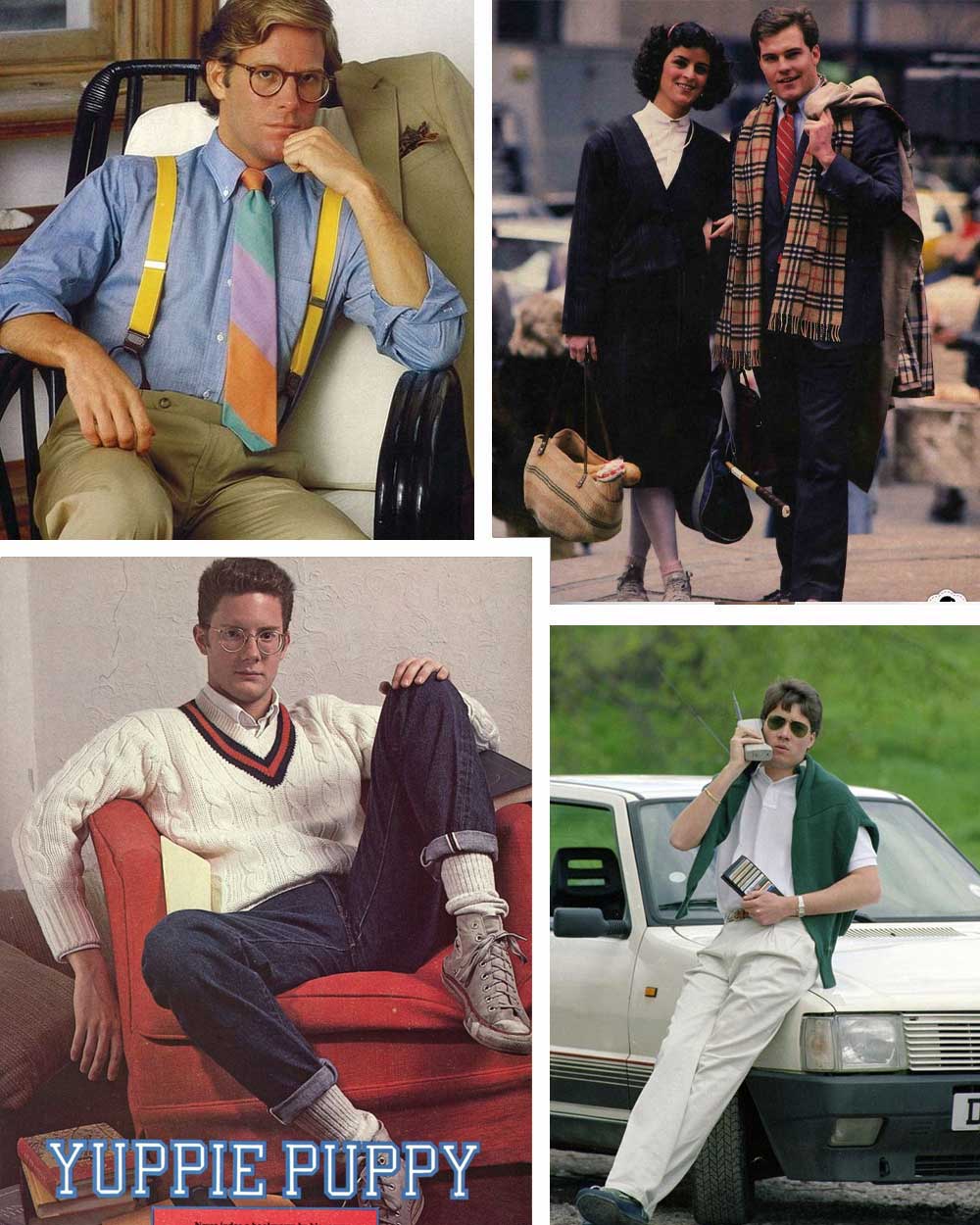

The 80s Preppy fashion looks featured the iconic polo shirt with a popped collar, which became popular among the younger generation, symbolizing wealth, coolness, and a touch of rebellion.
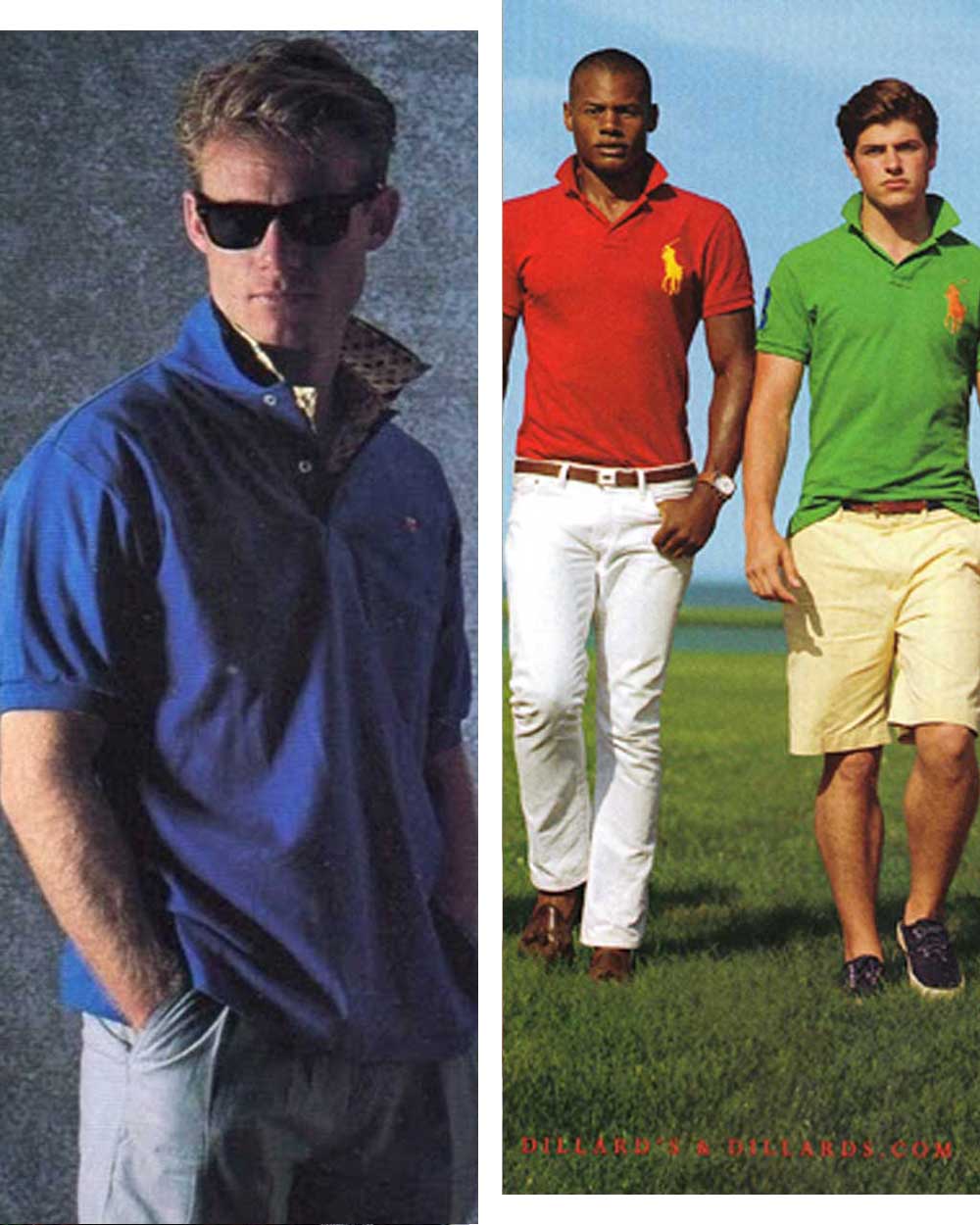

By the end of the 80s, clothing brands like Ralph Lauren, Lacoste, Tommy Hilfiger, and Calvin Klein reached Preppy recognition on a global scale.
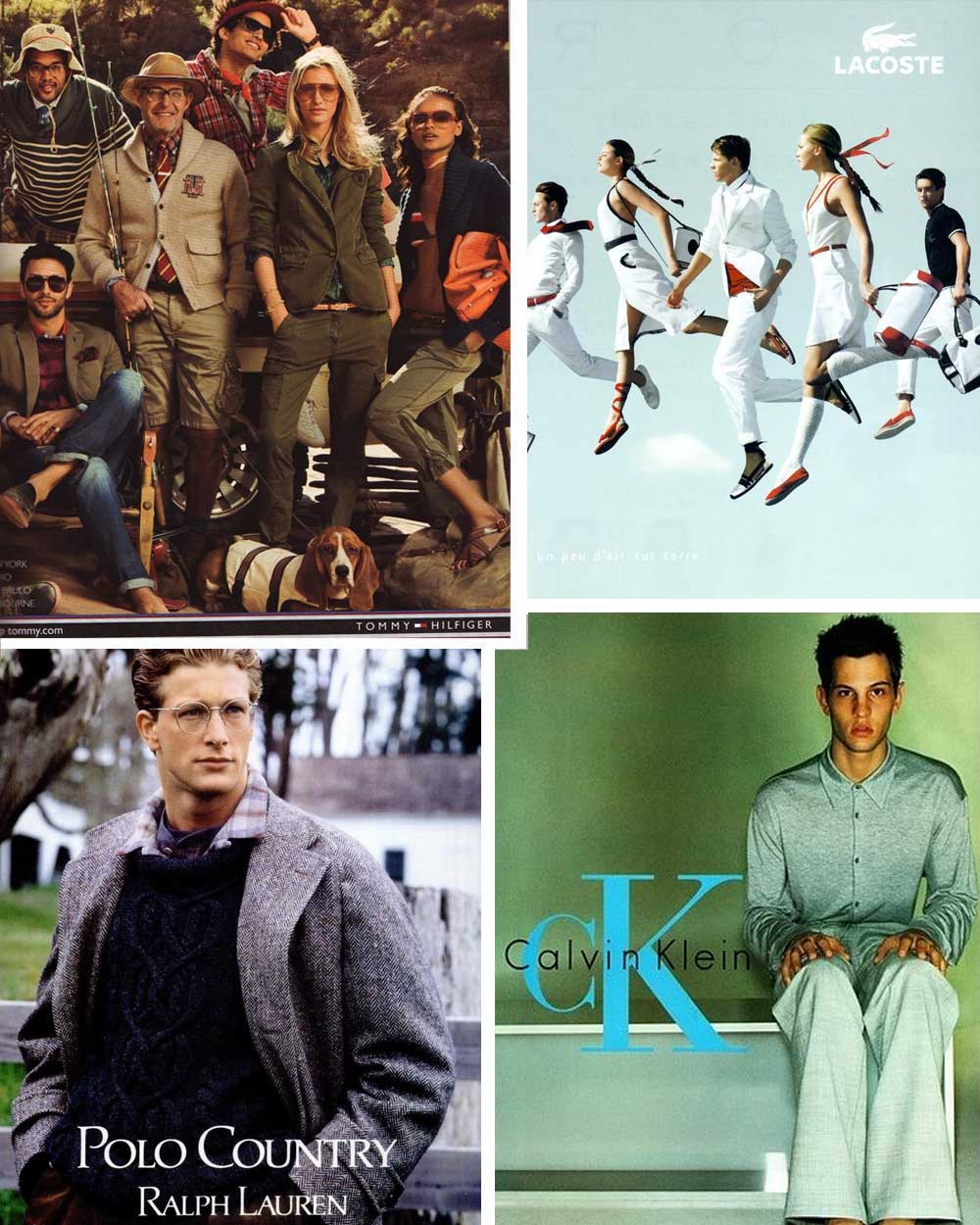

At the same time, the masses adopted the Preppy fashion style as a symbol of privilege and high class.
1990s
Between the 90s and 2000s, the Preppy fashion style underwent several reinterpretations, influenced by cultural shifts, celebrity trends, and changes in the fashion industry.
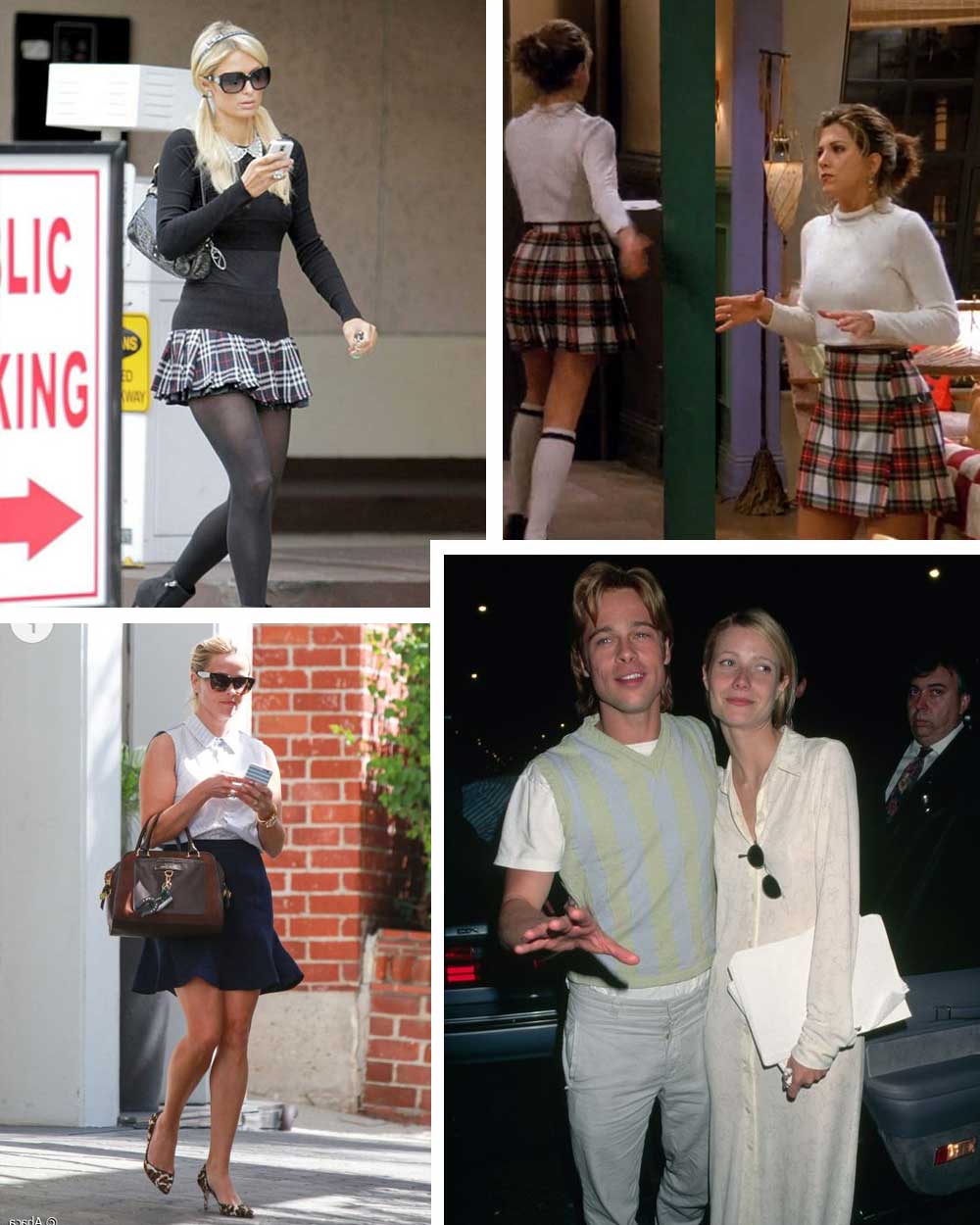

At the beginning of the 90s, the Preppy fashion style blended with the styles of other subcultures, leading to variations and diversified looks.
In the mid-90s, the Preppy fashion style started to infuse grunge and streetwear aesthetics, shifting from the 80s dandified image to more casual looks.
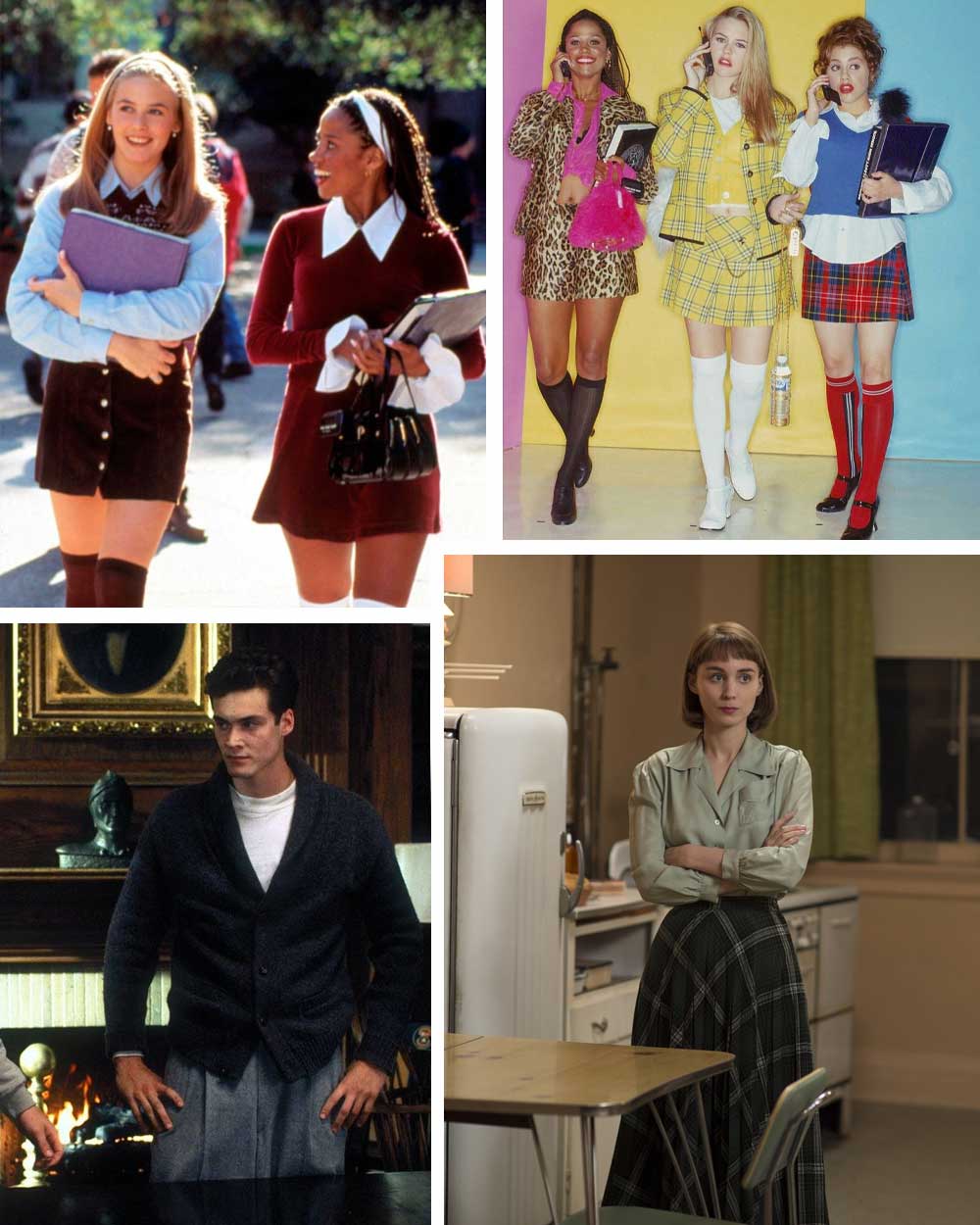

By the end of the 90s decade, there were two main Preppy style variations:
One streetwear-inspired, softer, and relaxed, focusing on comfort, and one darker, rebellious, and experimental, inspired by the growing grunge subculture.
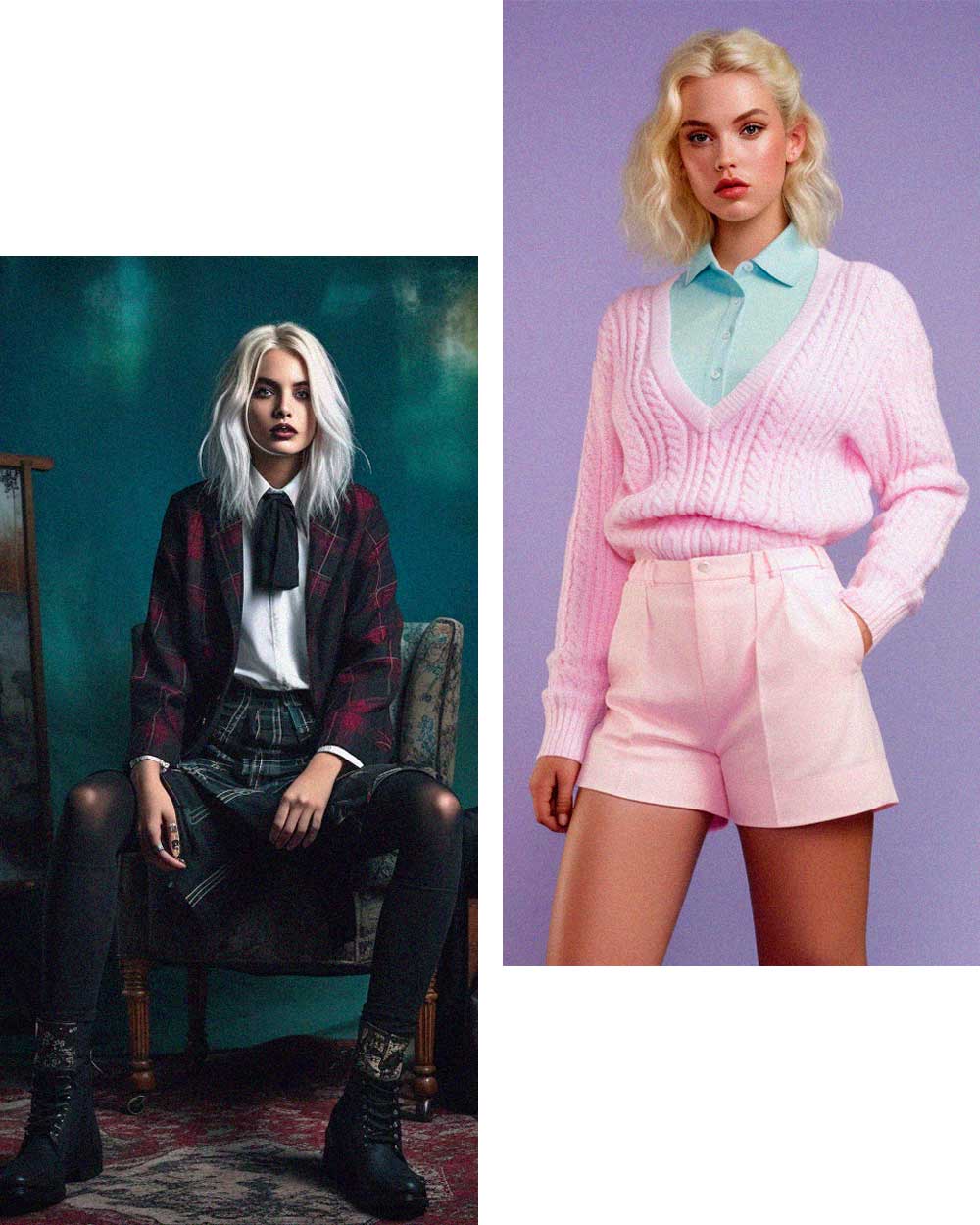

During this decade, brands like Polo Ralph and J.Crew continued creating traditional Preppy-style clothes, such as nautical rolled-neck sweaters and knotted shirts around the waist.
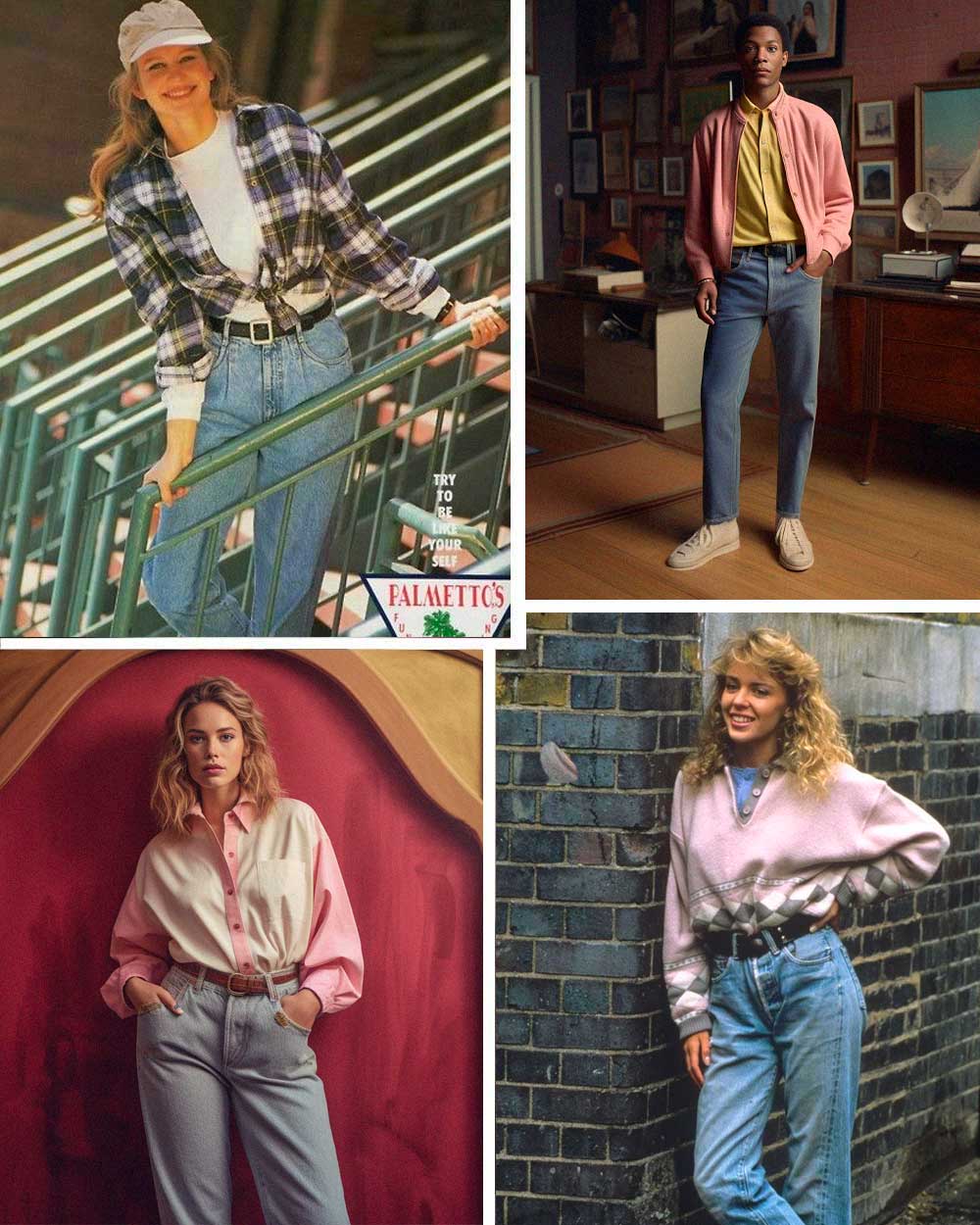

By the late 90s, Preppy fashion integrated stylistic elements reflecting the decade’s celebrity trends.
One of the most popular Preppy outfits in the 90s was Britney Spears’ sexy schoolgirl look of button-down shirts and pleated skirts.
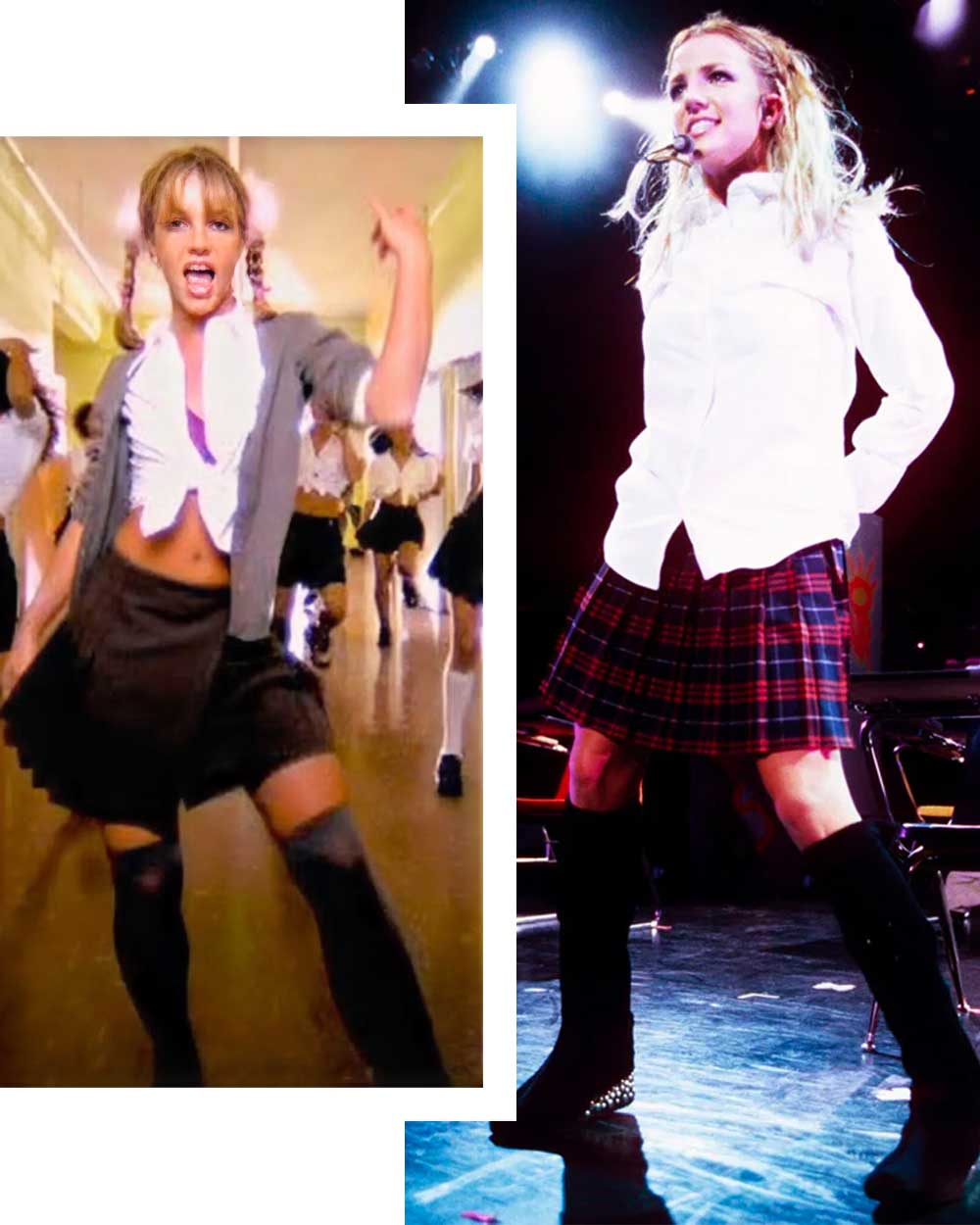

The Preppy fashion style became popular among African Americans thanks to TV shows like Fresh Prince and Hip-hop celebs sporting the look.
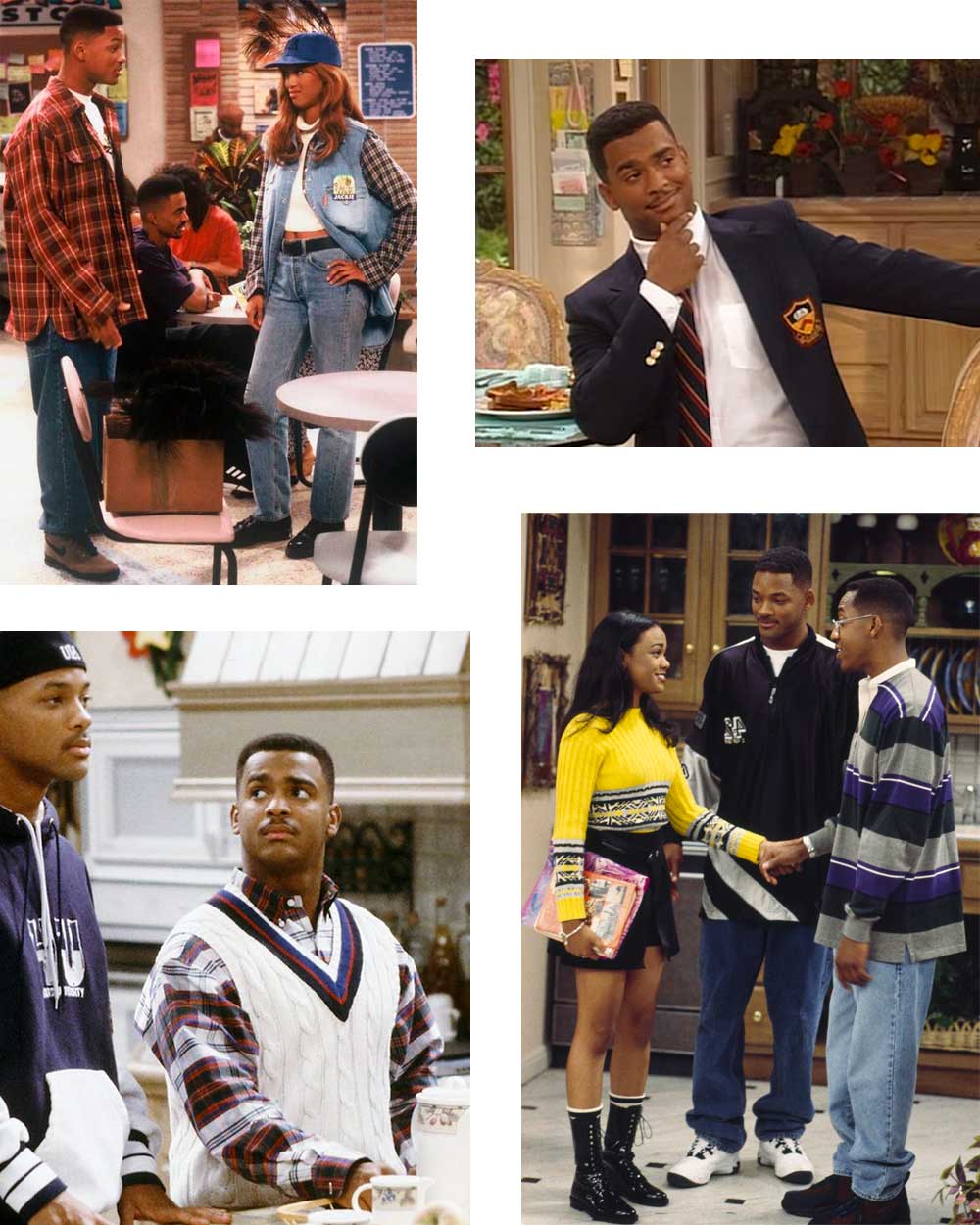

The 90s Preppy fashion style was also influenced by the hip-hop subculture, which led to the adoption of oversized shirts, high-waisted jeans, and Sperry boat shoes.
Boyz II Men, in particular, took the style to another level with their tennis sweaters, Easter pastel cardigans, Nantucket turtlenecks, blazers, college vests, and unique repp ties.
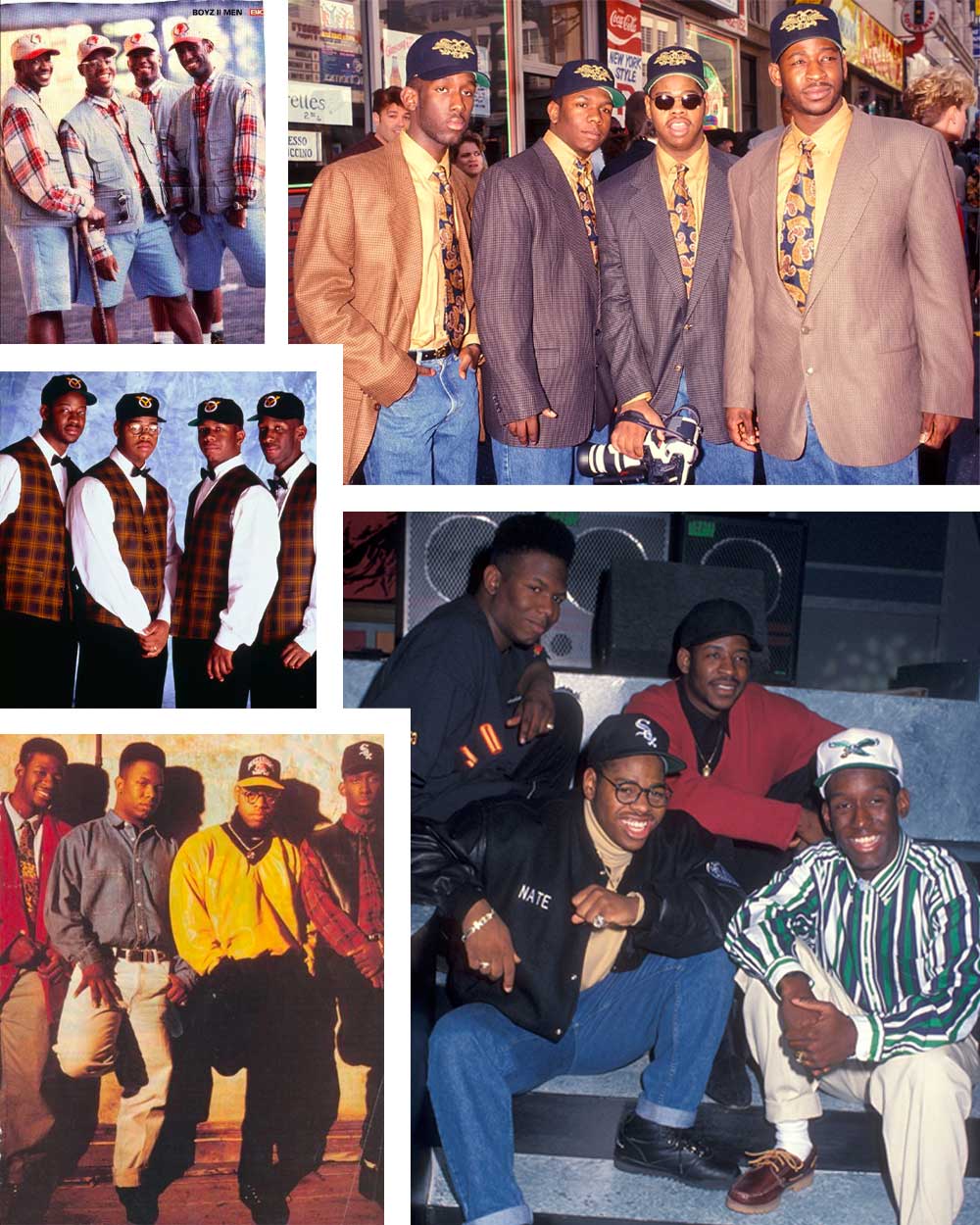

Instead of classic ascots and Oxford shoes, young men opted for Nantucket Reds, nautical-striped T-shirts, loafers, slouch socks, and short-sleeved shirts made from madras cloth or gingham.
2000s
In the 2000s, the classic Preppy fashion style experienced a resurgence, partially due to the influence of popular TV shows like “Gossip Girl,” which depicted a luxurious Preppy lifestyle.
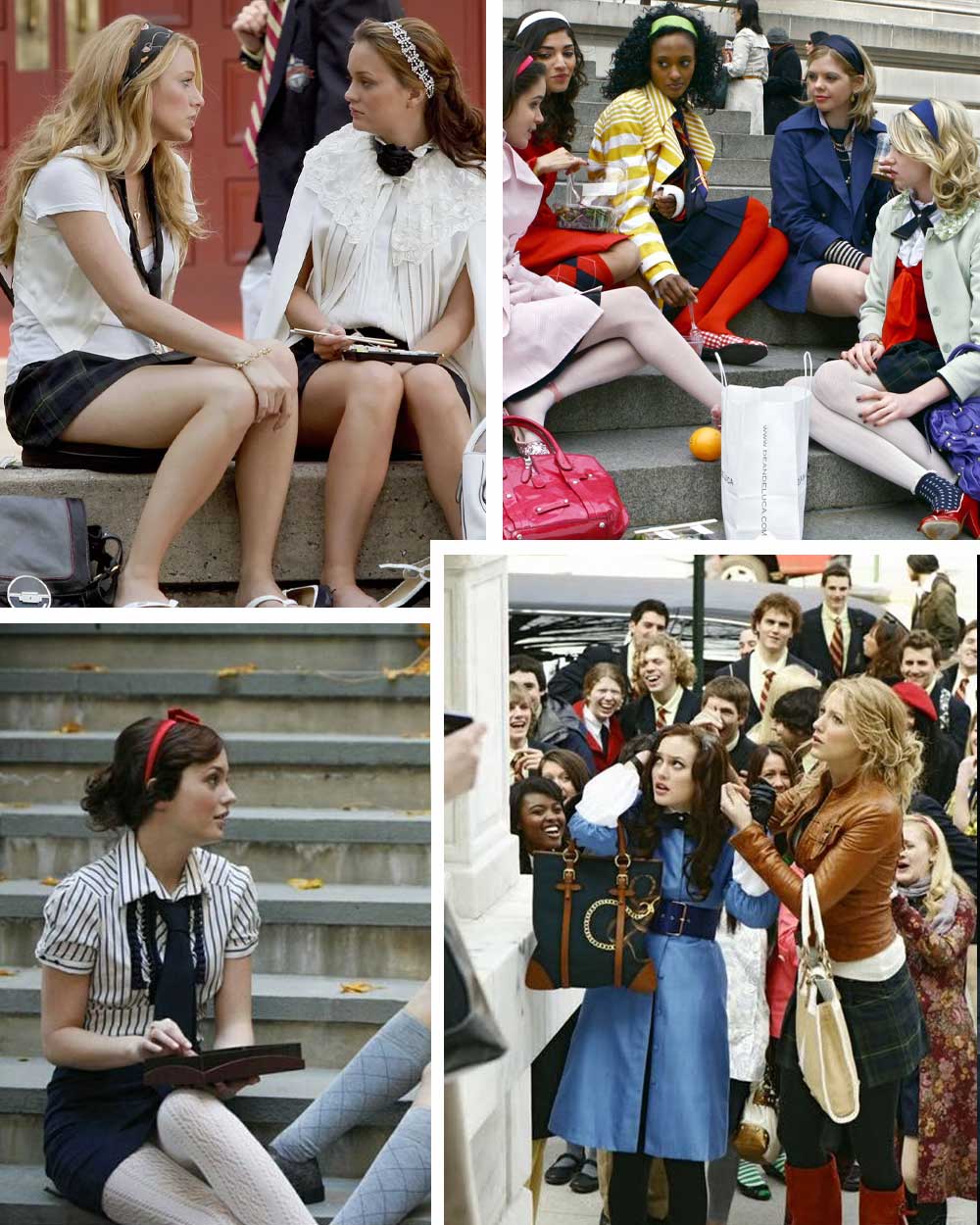

In the mid-millennium, the style underwent another transformation characterized by adopting bright colors, sparkles, and playful retro twists.
During the 2000s, Abercrombie & Fitch, Gap, Old Navy, and Hollister were some of the most popular clothing retailers for young preppies.
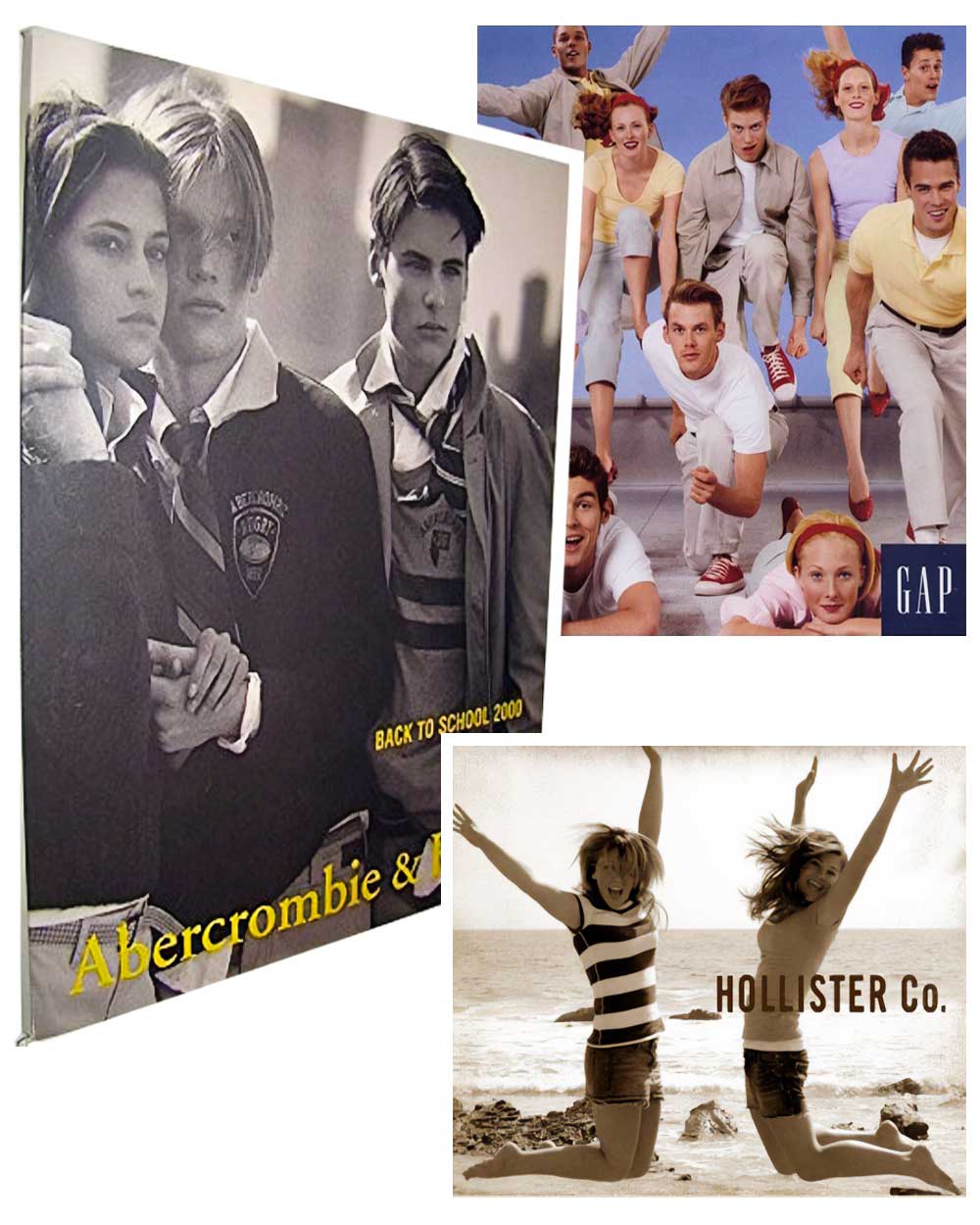

At the same time, the overlap of Preppy look with the growing hip-hop subculture led to the appearance of “prepped out” styles, as exemplified by singer Kanye West.
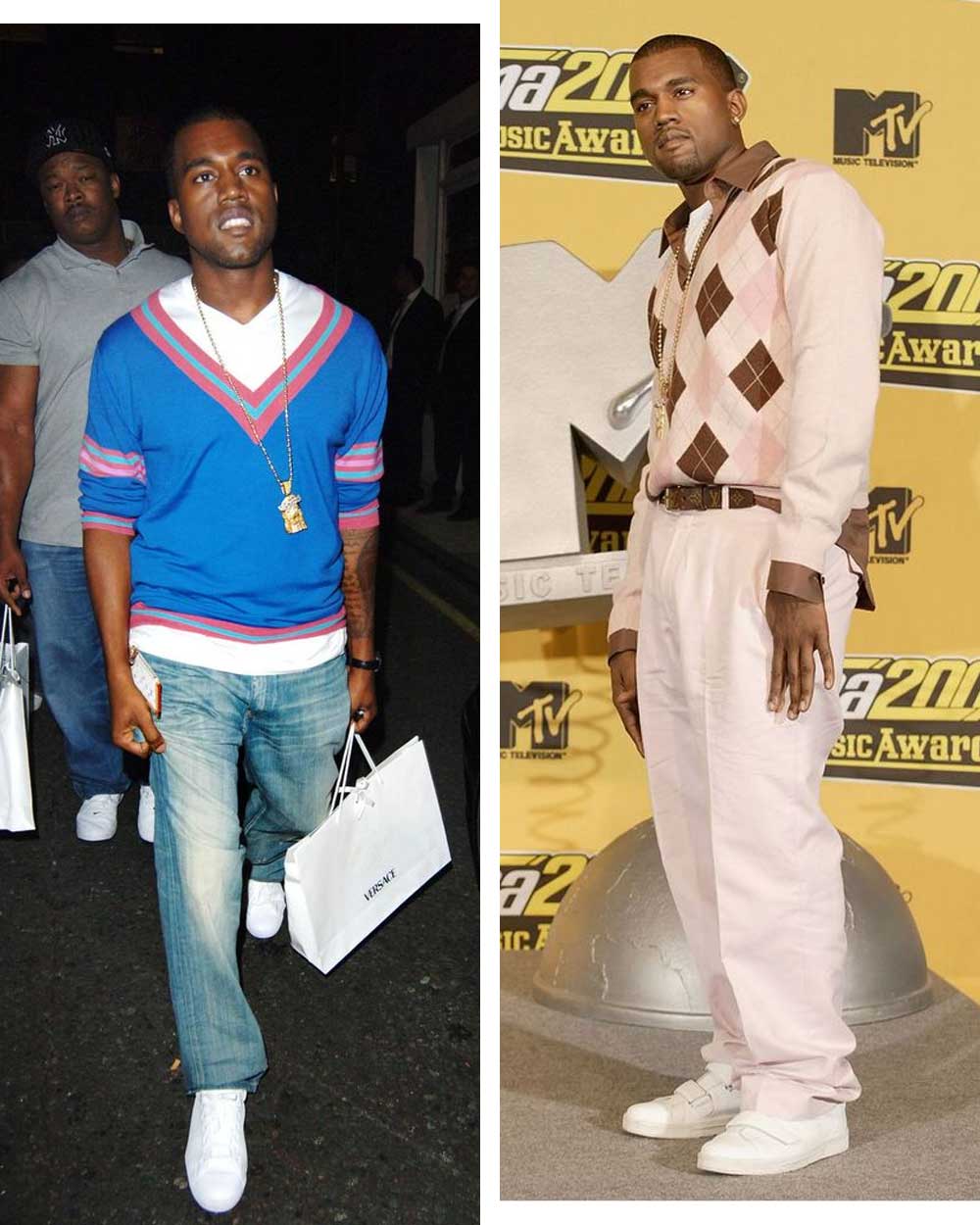

The late 2000s Preppy fashion style comprised Polos layered with long-sleeved shirts underneath, cardigans, jeans in various colors, and lots of argyle prints.
Furthermore, the emergence of fast-fashion brands like Abercrombie & Fitch and Hollister marketed a youthful, Preppy look that appealed to a broader audience.
The end of the 2000s also saw the emergence of high-end Preppy fashion looks, with a growing emphasis on designer branding.
2010 to 2023
The Preppy fashion style has undergone another reinterpretation in recent years to align with the world’s modern values and lifestyles.
The current iteration of the style, known as ‘neo-prep,’ has a relaxed look achieved by borrowing aesthetics from streetwear, athleisure, and alternative subcultures.
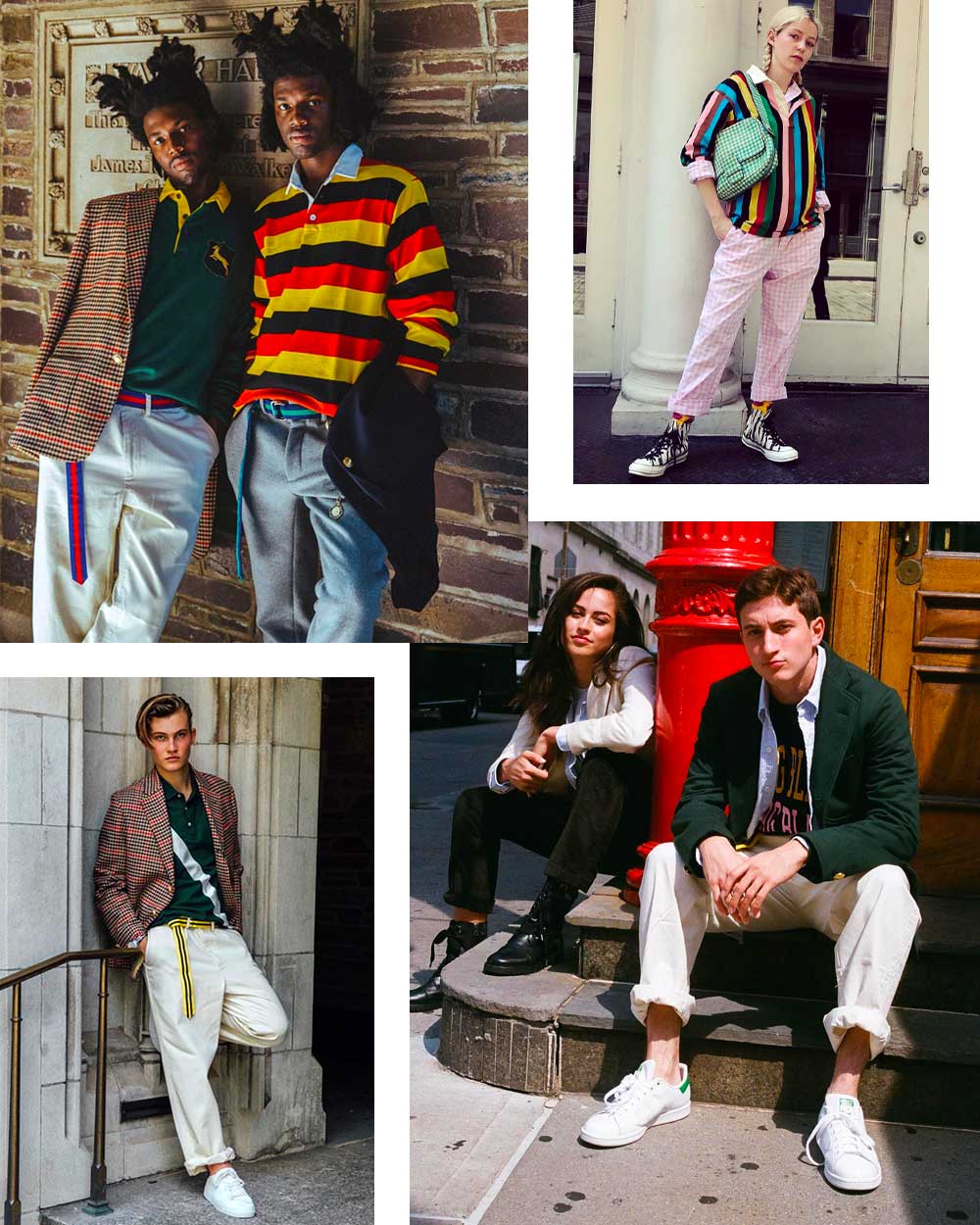

The renewed focus on sustainability has also influenced the Preppy style, with brands shifting towards ethical production, natural materials, and timeless designs.
Social media and online influencers have also played a role in diversifying Preppy fashion looks, making them more inclusive and innovative.
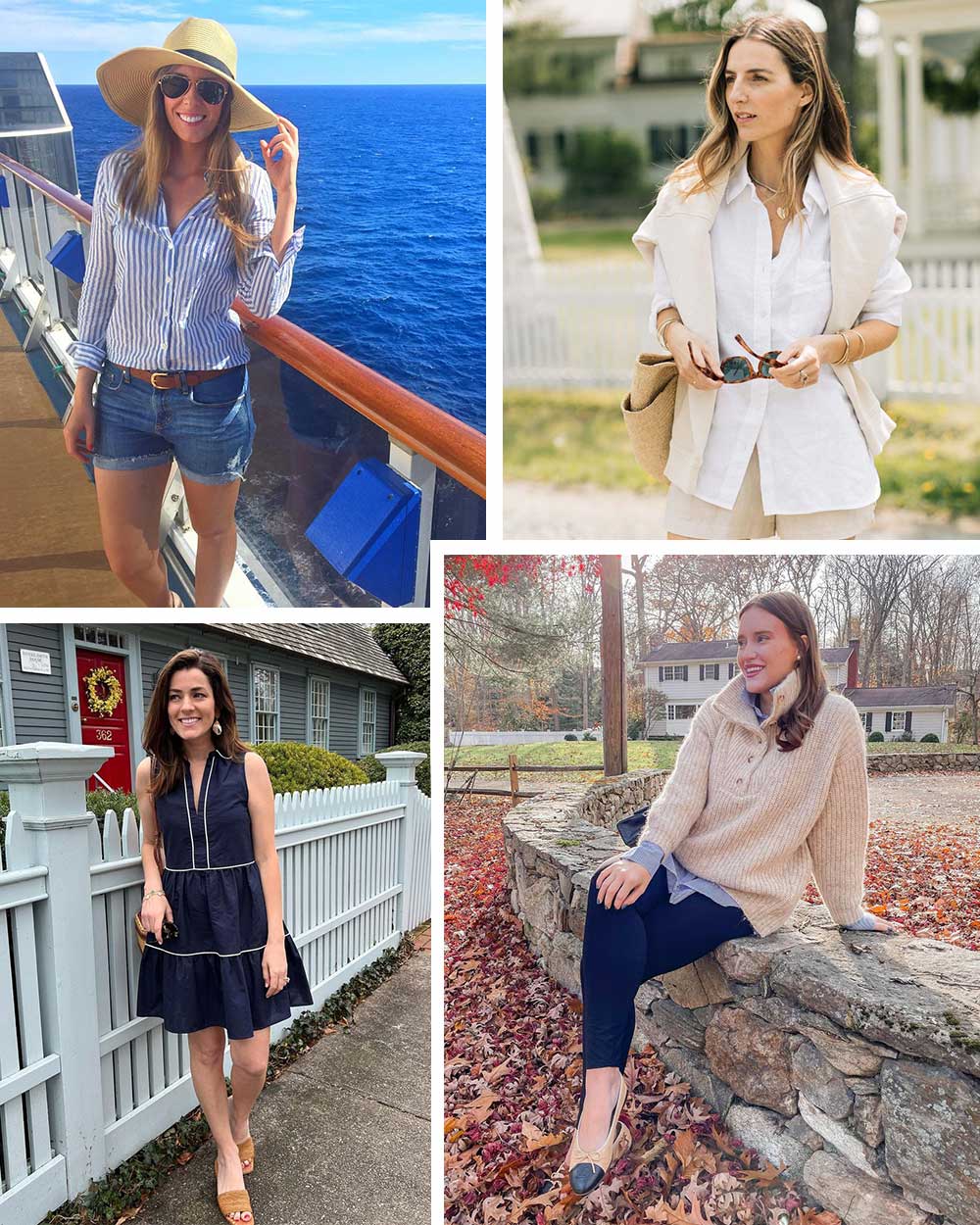

Nowadays, Preppy has returned to its timeless, classic, and traditional look, away from marketing-driven, transient trends.
The current look revives the iconic mid-length skirt suits, collegiate sweaters, rugby stripes, and plaids, as seen in the latest collections of designer brands such as Burberry, Versace, Dior, Chloé, and Michael Kors.
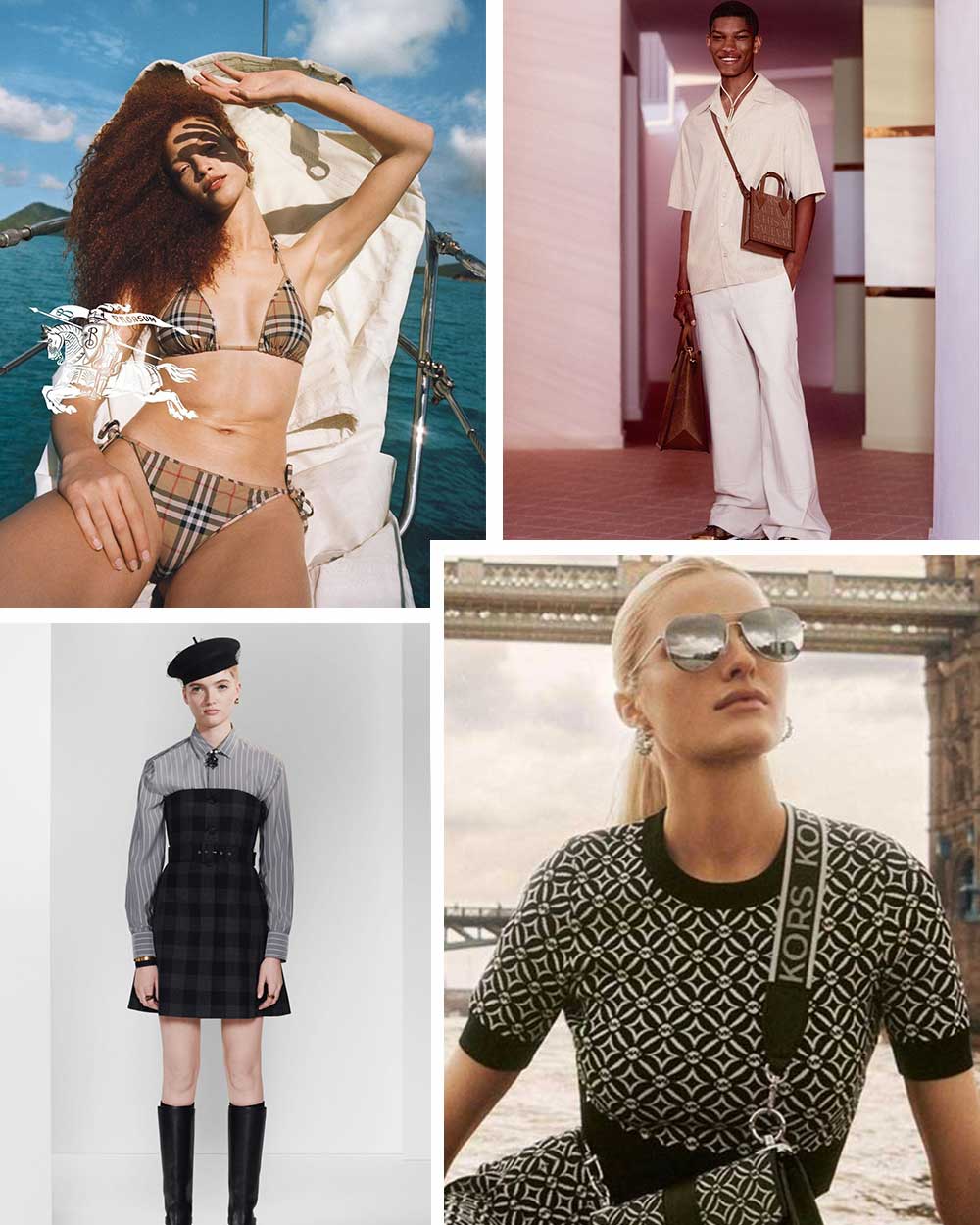

Neckties, chinos, vests, and argyle print – another preppy staple – are also back in style, taking retail stores like Urban Outfitters, Everlane, and J.Crew by storm.
The return of the original Preppy fashion style aligns with the broader trend of moving toward seasonless clothing and capsule collections, emphasizing longevity and versatility.
Versatility is key, as white button-up shirts, collegiate sweaters, navy jackets, and argyle pattern vests are matched with casual sneakers and jeans.
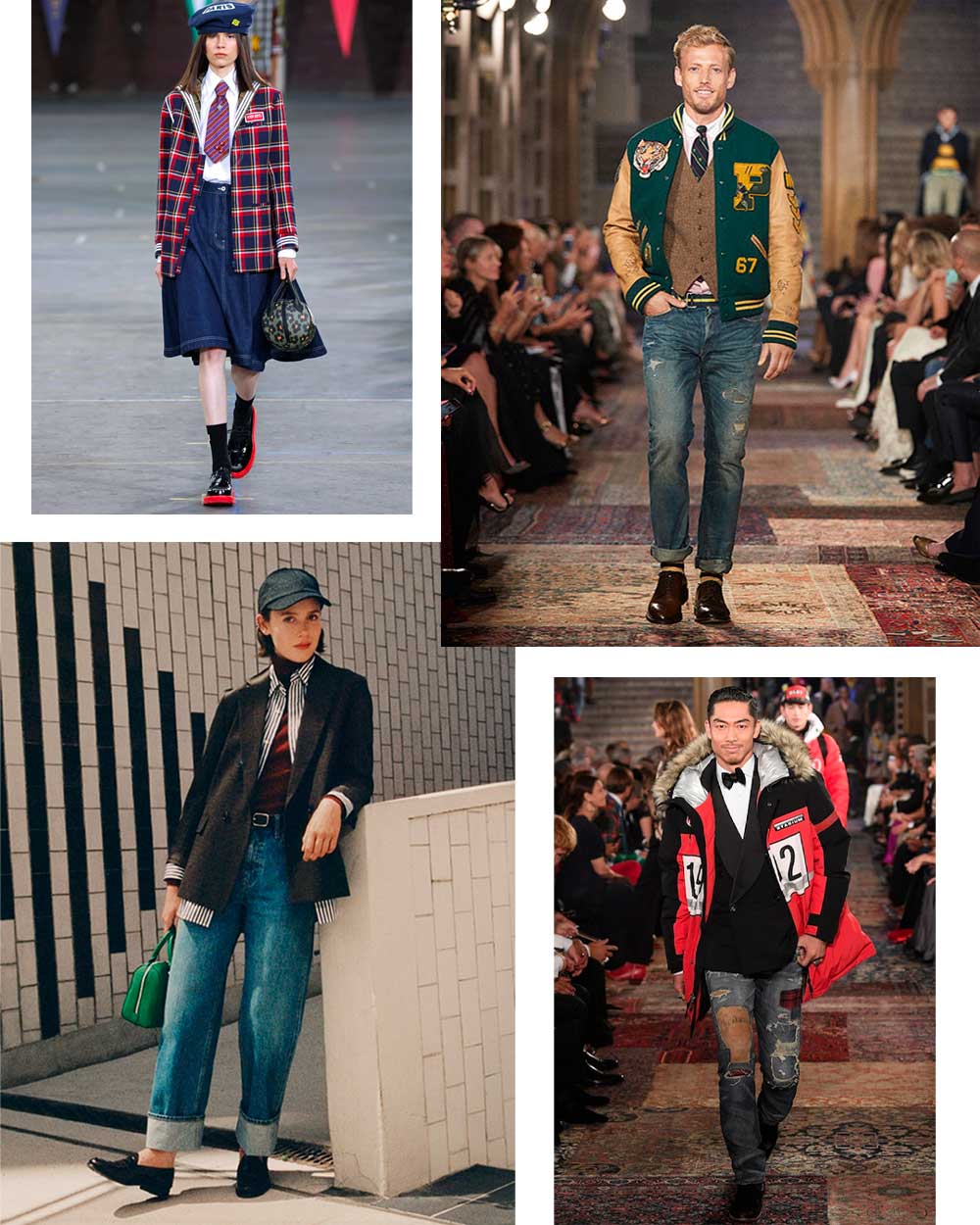

Whenever new fashion trends and look variations emerge, Preppy adjusts accordingly, such as pairing knits with loungewear or balancing collegiate jackets with jeans.
While keeping connected to its roots, Preppy’s chameleon-like quality allows it to be in tune and resonate with the latest trends, reflecting the style’s evolution.
Modern Preppy Fashion (Neo-preppy)
Neo-Prep is a contemporary variation of the traditional Preppy look by reinterpreting classic Preppy garments in bold colors, startling patterns, and non-traditional materials.
Also known as the Modern Preppy fashion style, the look emphasizes neatness, elegance, and attention to detail while incorporating current trends.
Imagine classic Preppy navy blazers paired with graphic slogan tees or layering cashmere sweaters over dress shirts.
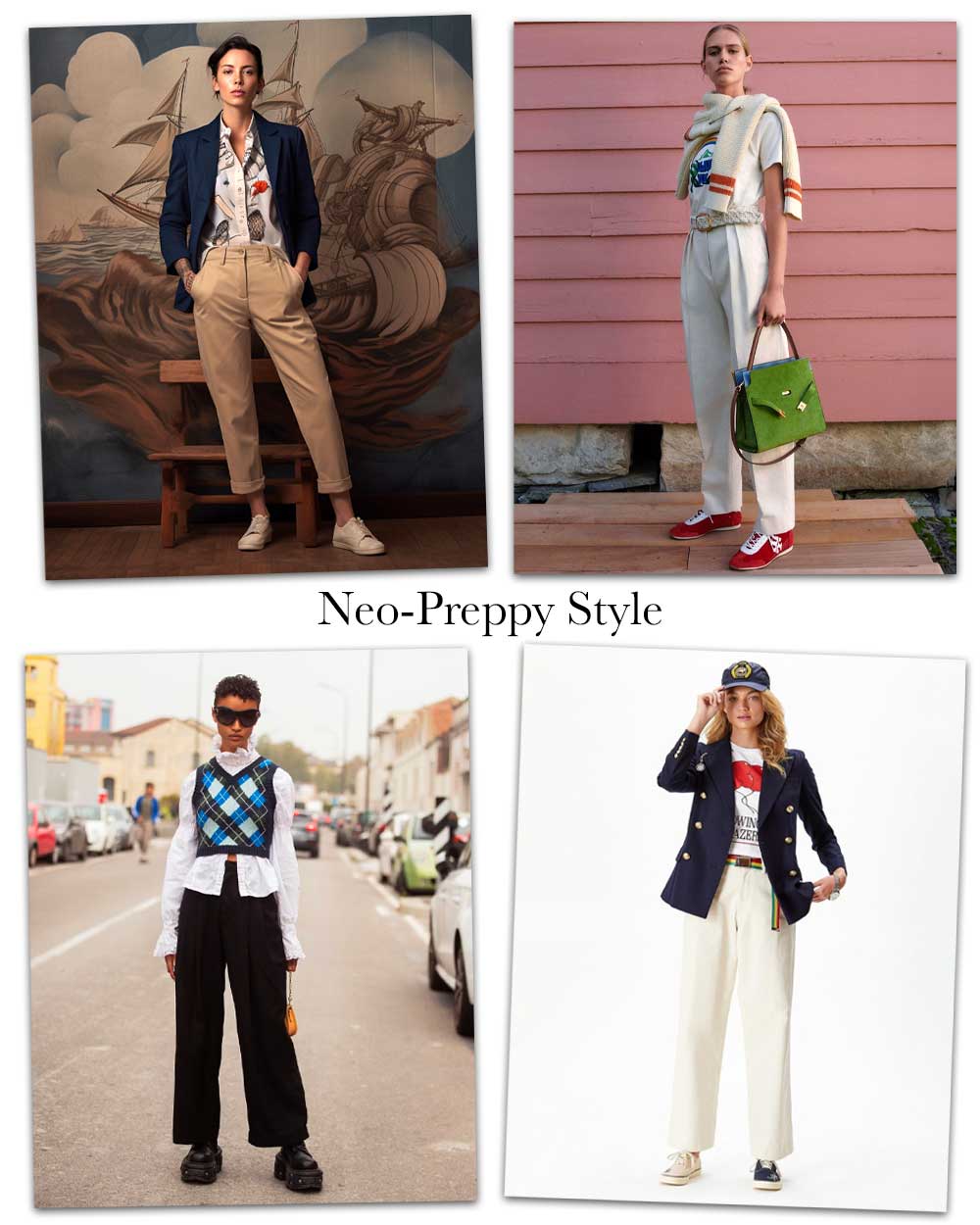

All modern Preppy variations result from constant changes, adaptations, and reinterpretations of the classic Preppy look to present forms.
Yet, despite the style continually incorporating aesthetics from other subcultures and emerging trends, it retains its fundamental characteristics and heritage.
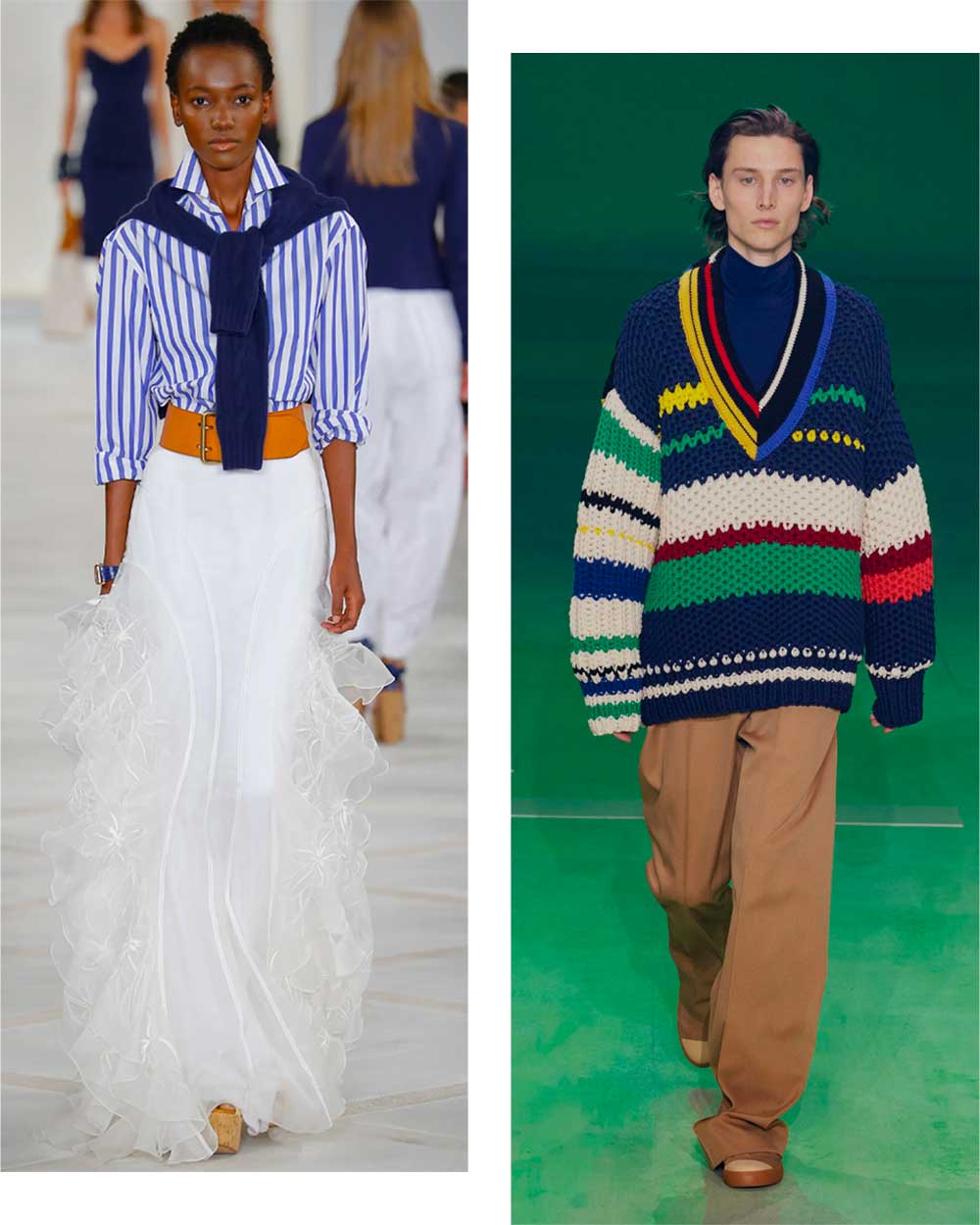

Traditionally, the Preppy style has roots in the uniforms and activities of Ivy League students, like sailing, golf, and tennis, reflected in nautical-striped tops, chinos, and golfing sweaters.
Although these aesthetic elements are still present in the modern context, they are reinterpreted and reshaped according to contemporary influences.
As such, stripes might be asymmetrical or abstract, chinos replaced with tailored joggers, and golfing sweaters come with bold, geometric patterns.
Brands previously focused on classic Preppy attire, like Brooks Brothers and Ralph Lauren, have evolved to market modernized style versions, indicating a shift in Preppy fashion.
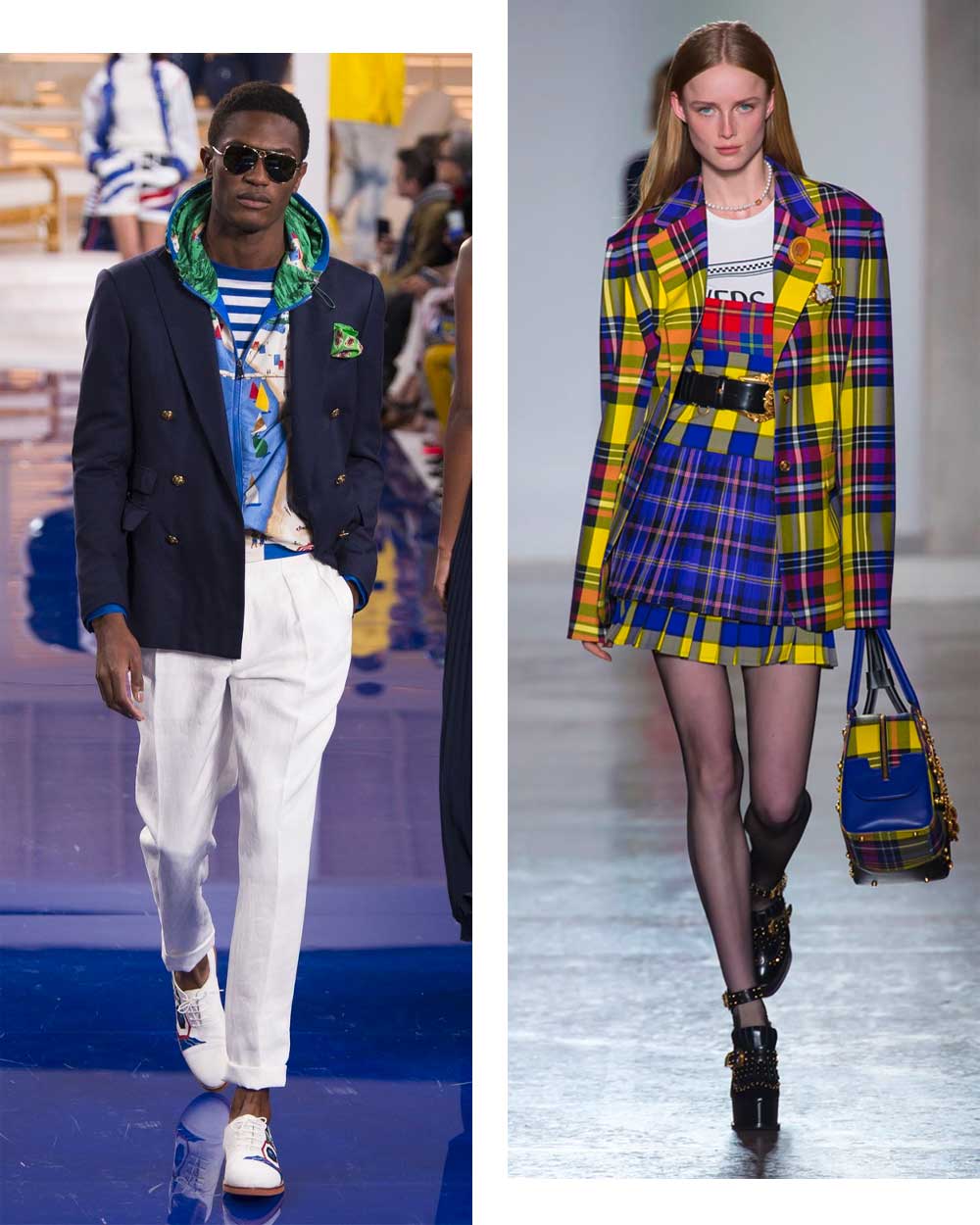

As a significant contemporary trend, ‘Neo-prep’ puts a modern, almost ironic twist on the traditional Preppy look.
Brands like Rowing Blazers and Noah embody the Neo-prep fashion style, mixing classic Preppy clothes with streetwear and athleisure wear.
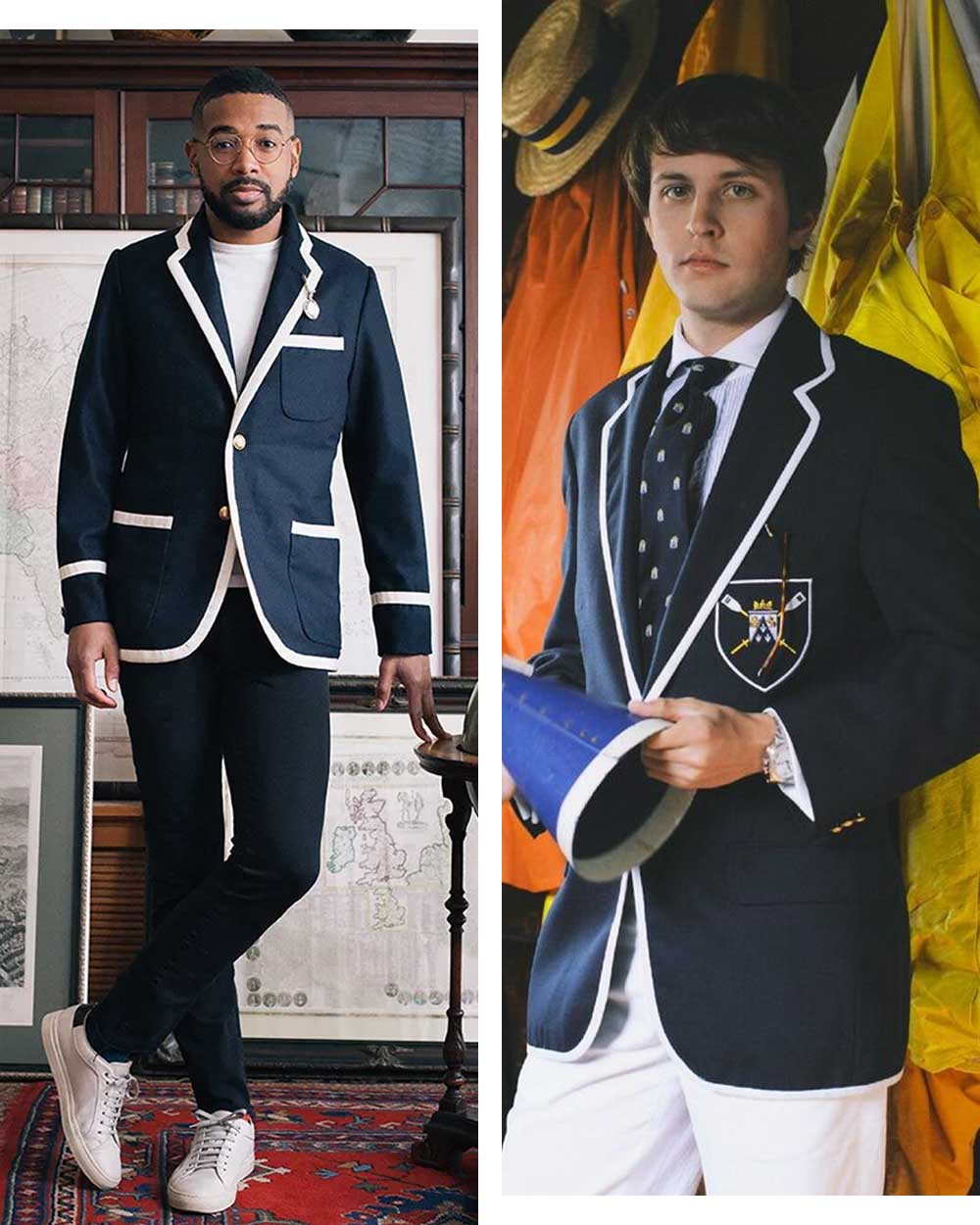

Another change in modern preppy fashion is the shift towards innovative, inclusive looks while maintaining the style’s roots and classic foundation.
Most Popular Brands and Designers
Over the years, certain clothing brands, prolific in making apparel according to the fashion style’s aesthetic, have become synonymous with the subculture.
Generically called Preppy clothing brands, these are the most sought-after labels by Preppy aficionados.
1. Polo Ralph Lauren
(1967)
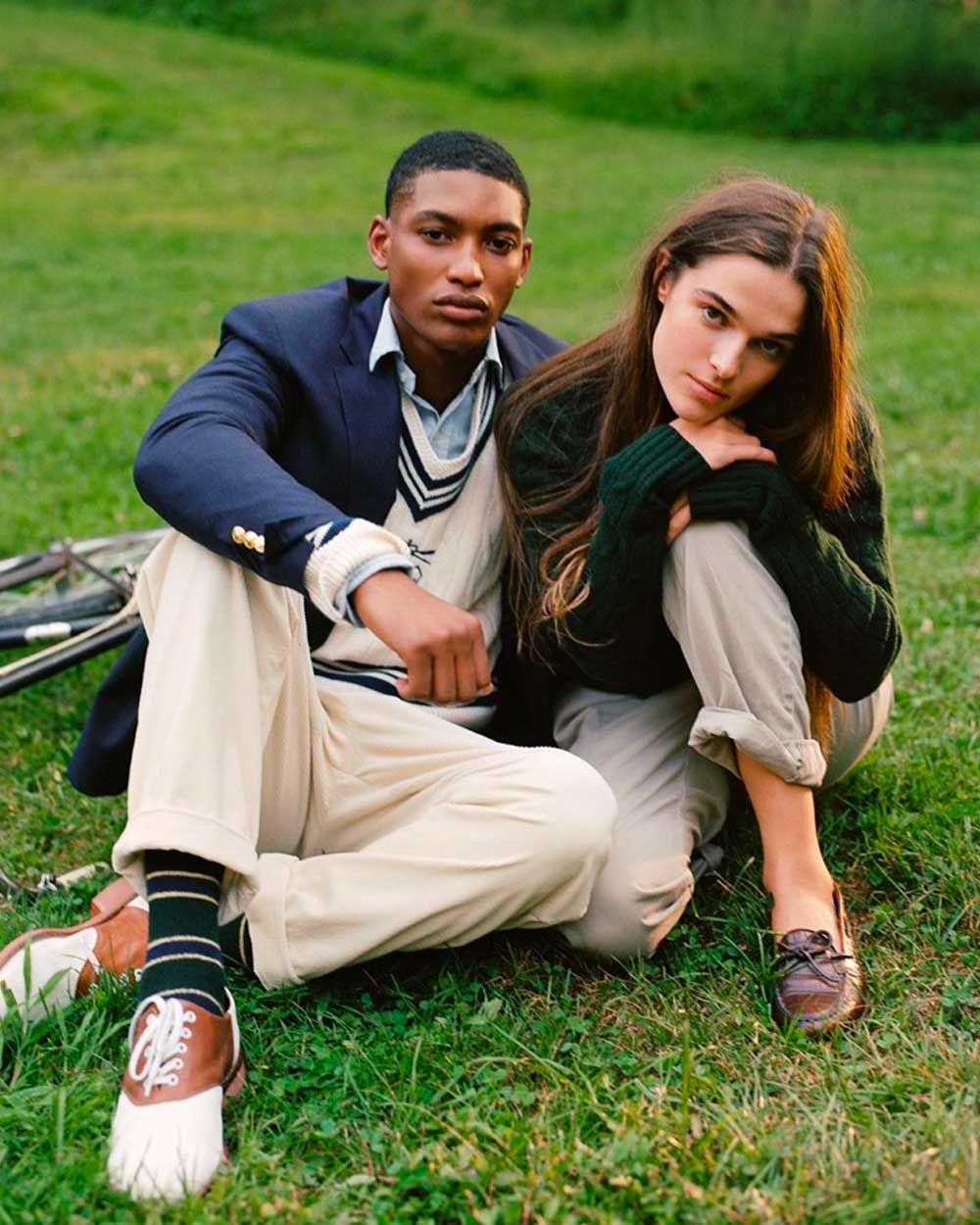

Ralph Lauren played a pivotal role in defining American Preppy style with its Polo line, known for classic and upscale casual wear.
Notable figures who have donned Polo Ralph Lauren include Princess Diana and film director Wes Anderson.
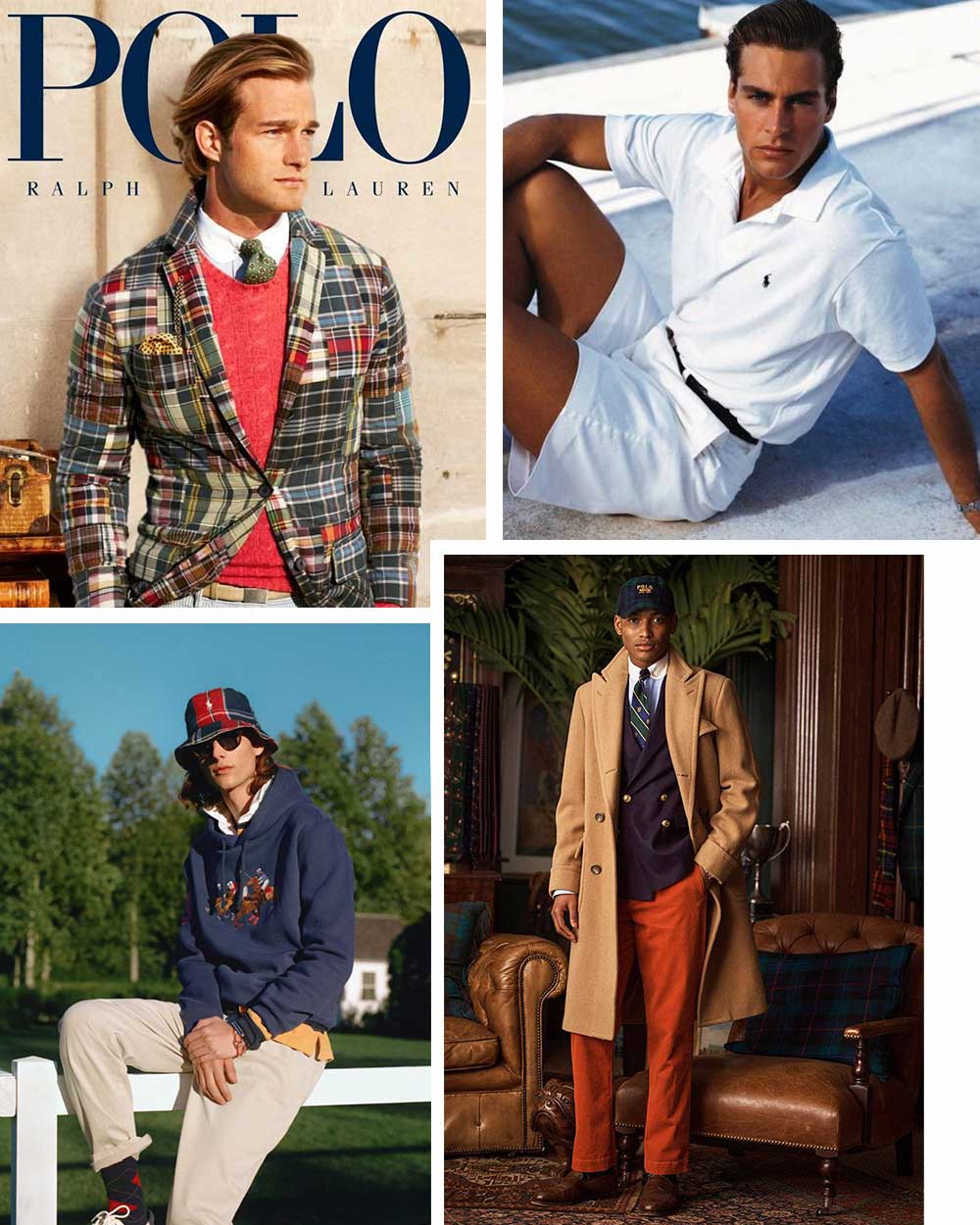

The creator’s iconic designs, including polo shirts, blazers, and khakis, define the classic American Preppy style.
Over the years, the label has released a wide range of Preppy looks, from the classic Ivy League-inspired style to the more casual, Souther-inspired version of Preppy style.
2. Tommy Hilfiger
(1985)
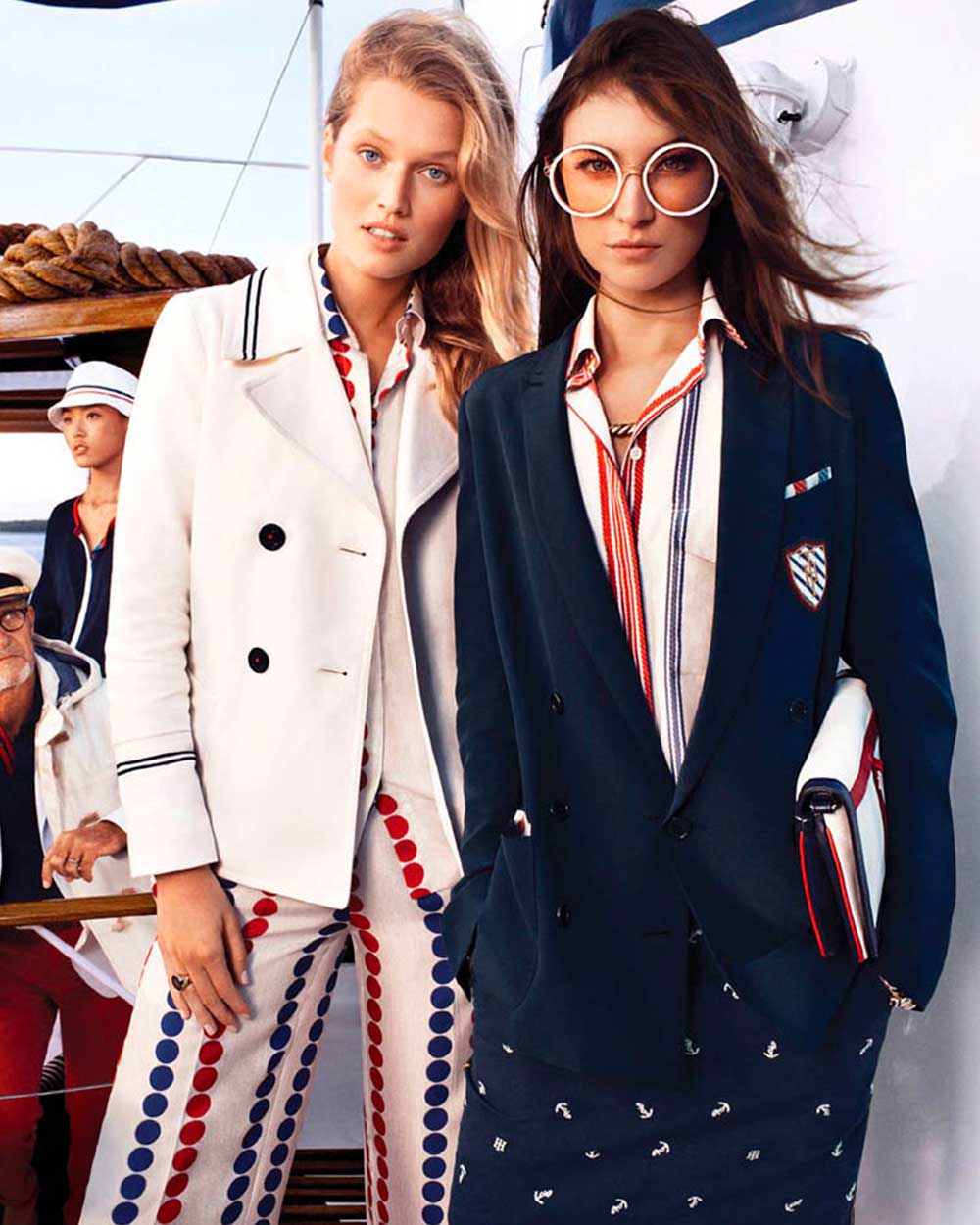

Tommy Hilfiger has significantly contributed to the Preppy style with its distinctive Americana aesthetic; despite being the youngest on this list,
Celebrities like David Bowie and Britney Spears have been associated with the brand.
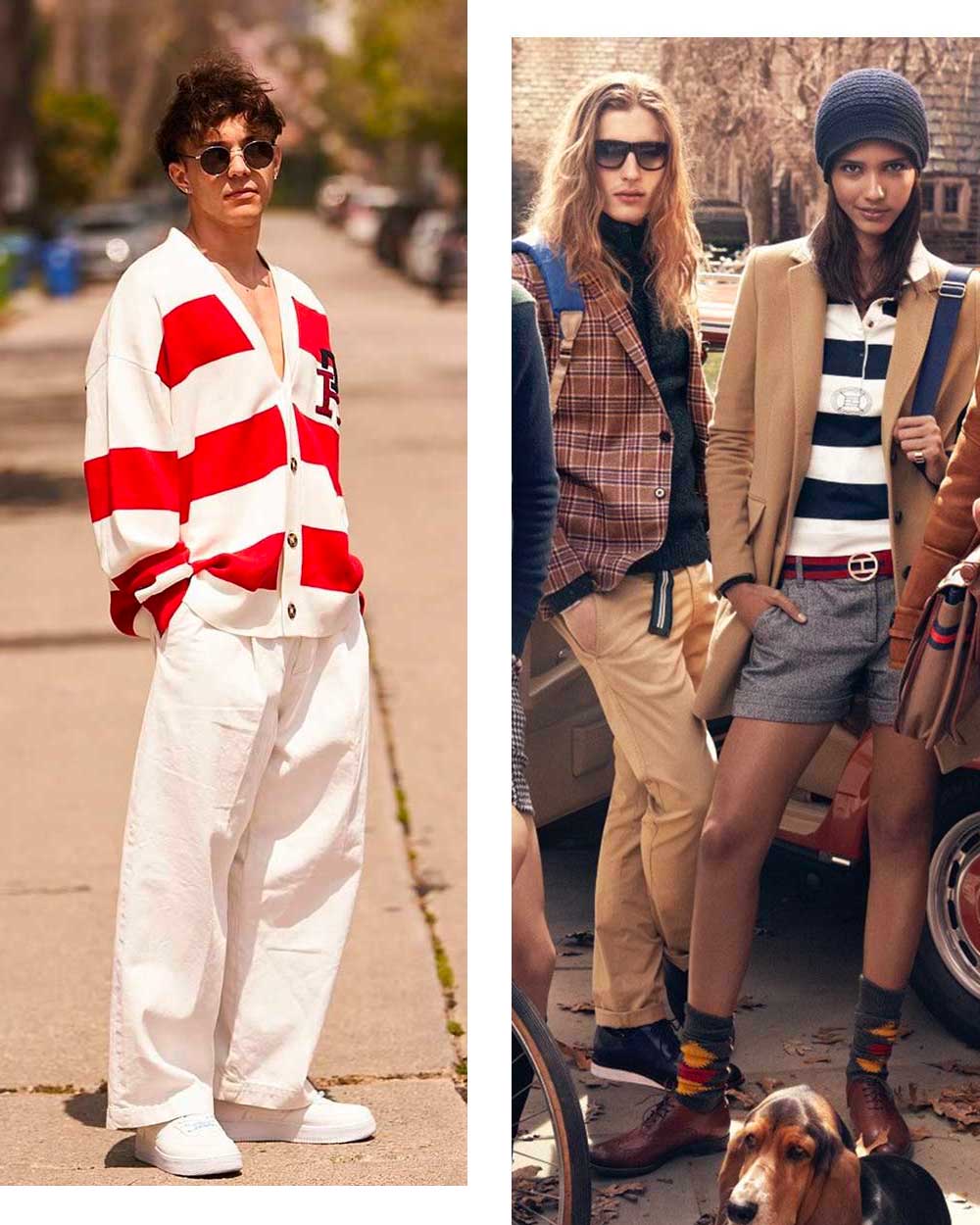

Known for conferring the classic American Preppy style with a cool, modern twist, Tommy Hilfiger is very popular among the younger generation.
The American brand releases unique Preppy collections incorporating themes, colors, and patterns from other subcultures and blending them into the core Preppy aesthetic.
3. Brooks Brothers
(1818)
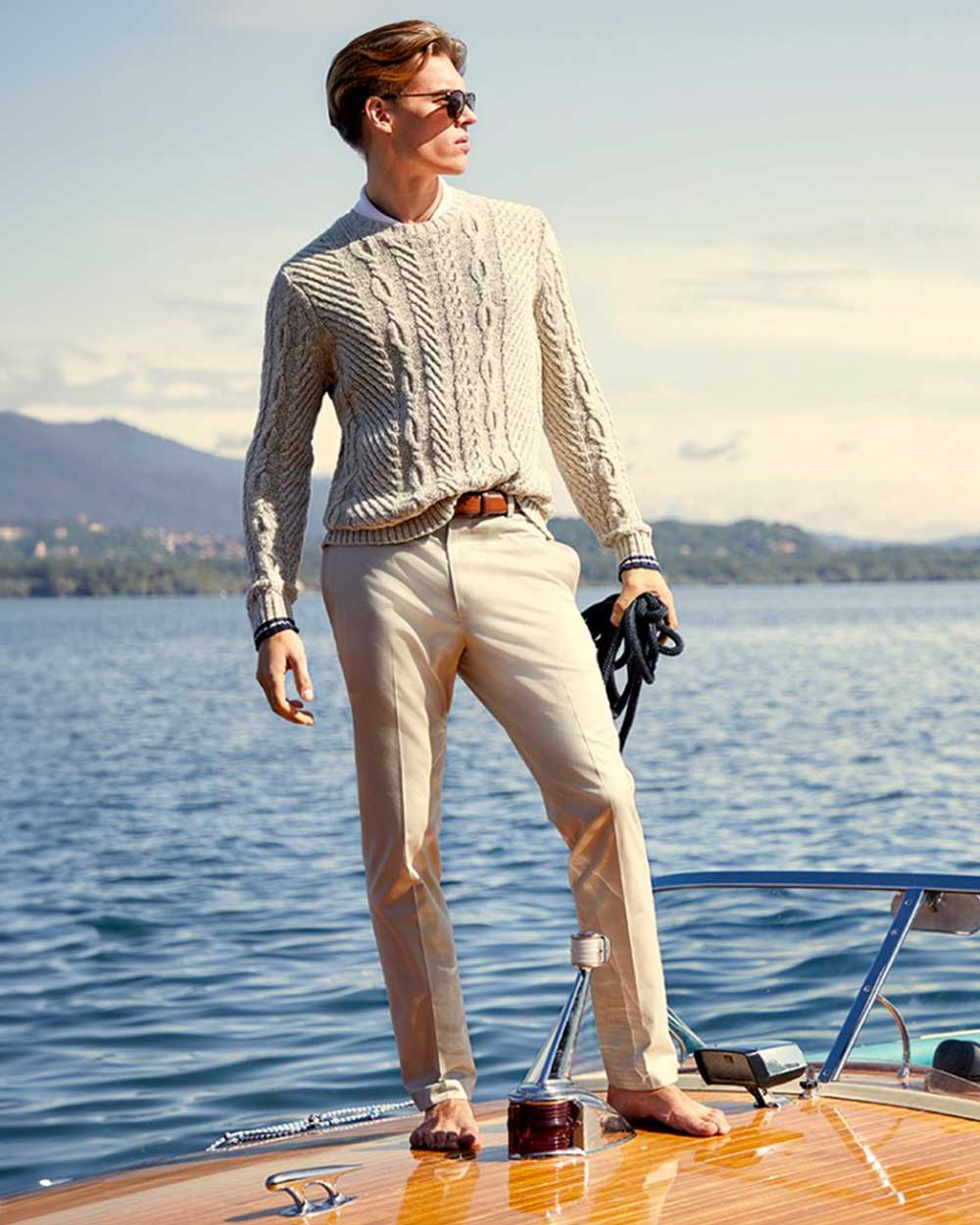

Brooks Brothers is renowned for its signature Preppy looks as one of America’s oldest clothing retailers.
The label is well-known for quality Preppy suits, Oxford shirts, and many classic staples of Preppy fashion.
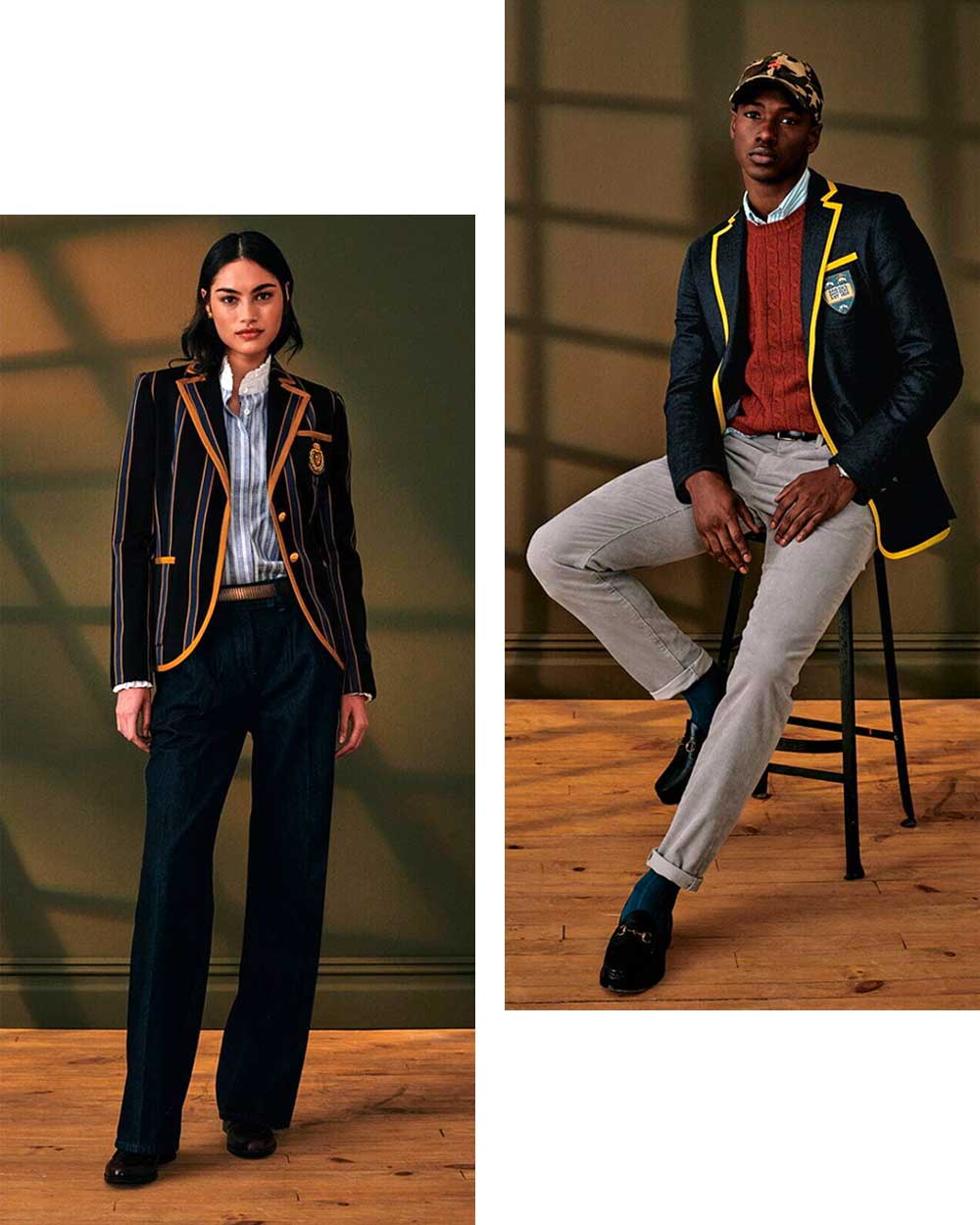

Throughout history, Brooks Brothers have dressed numerous U.S. Presidents, including Abraham Lincoln and John F. Kennedy, and famous figures like Clark Gable, demonstrating its significant influence on the Preppy aesthetic and style.
4. Lacoste
(1933)
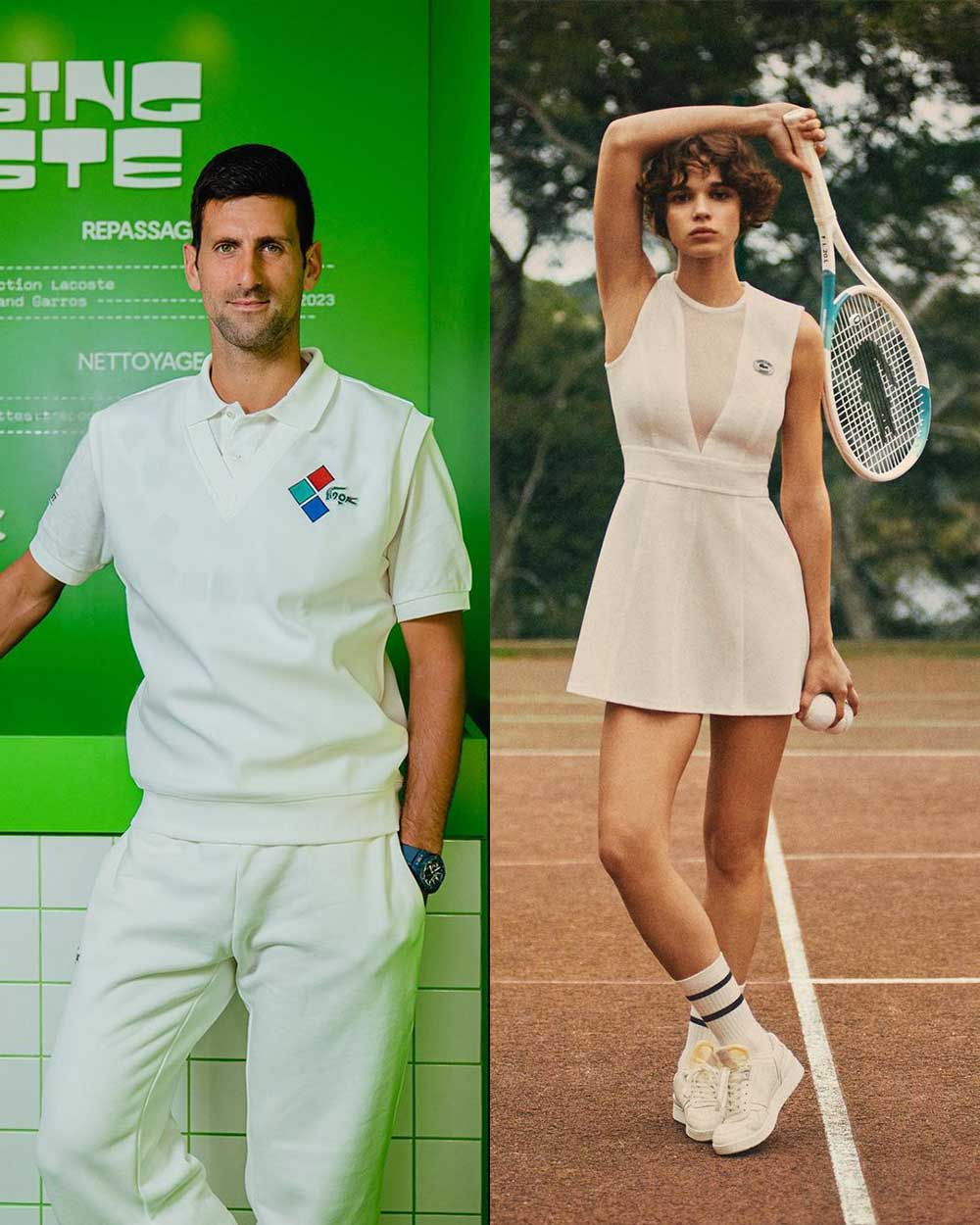

Lacoste features sporty yet refined designs beautifully aligned with the Preppy style.
Founded by French tennis player René Lacoste, polo shirts revolutionized sportswear and became a status symbol in the Preppy subculture.
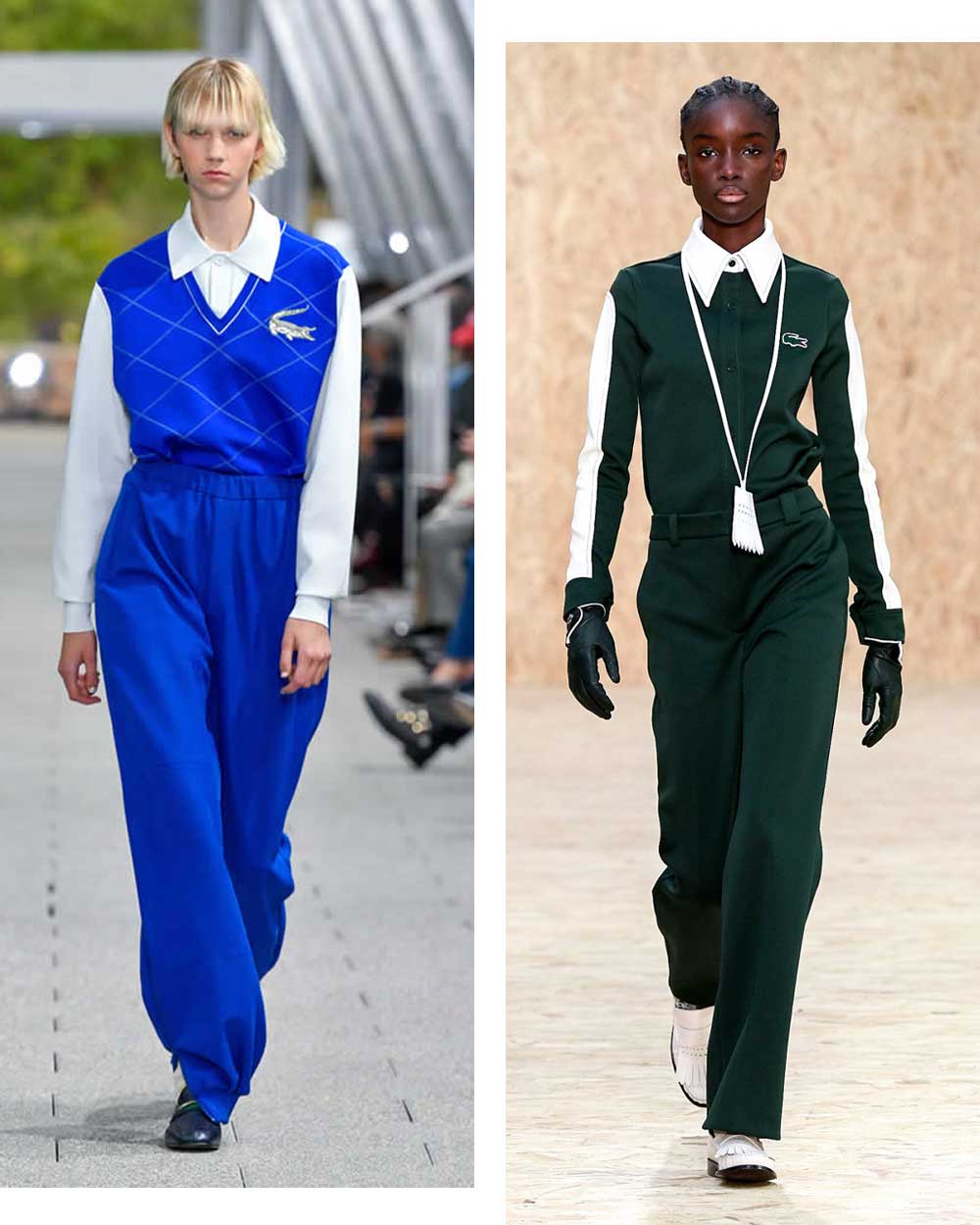

Famous figures, including President John F. Kennedy and actor Clint Eastwood, have been spotted wearing Lacoste polos.
5. J.Crew
(1947)
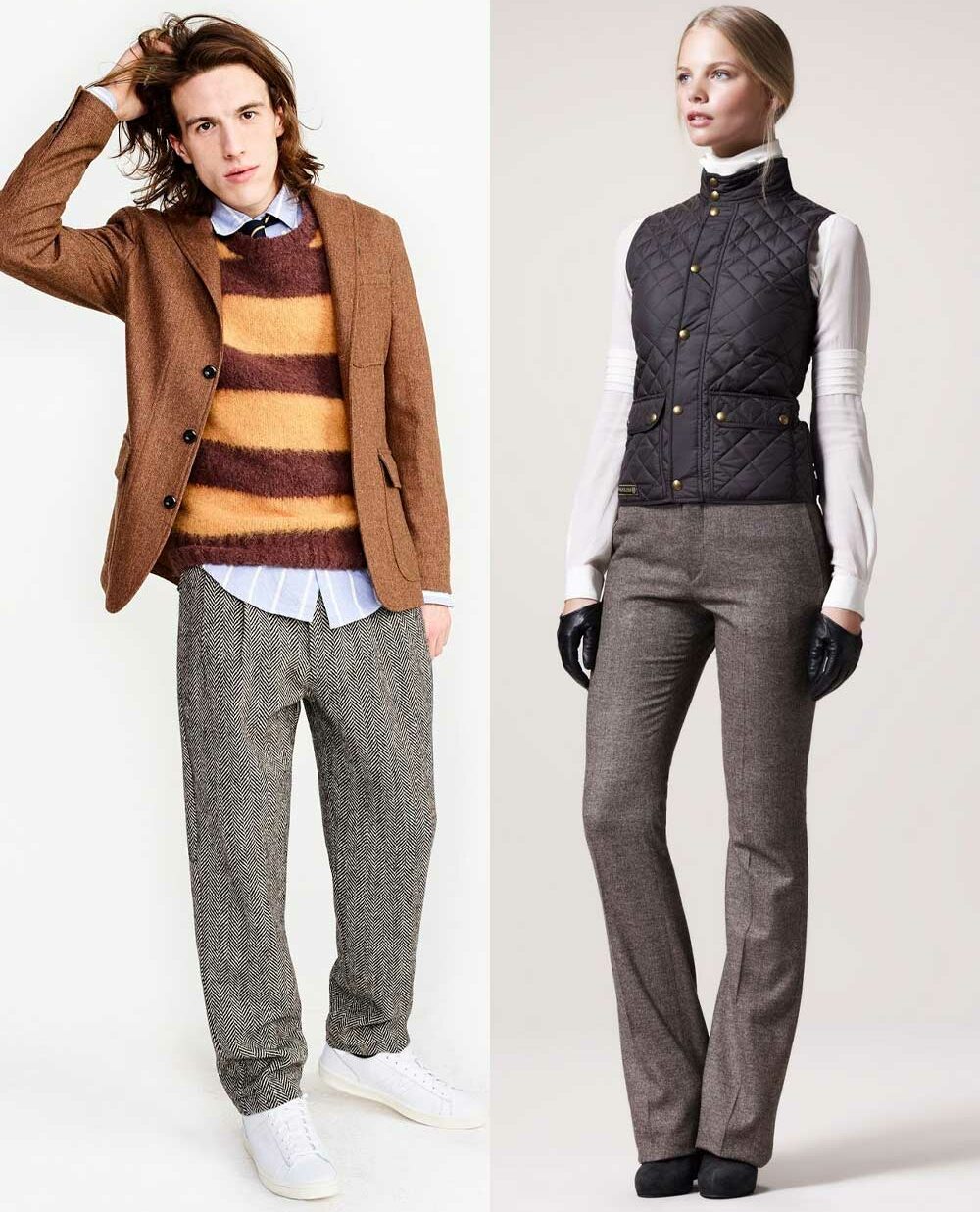

By blending traditional Preppy aesthetic elements with contemporary trends, the brand J. Crew gave the modern Preppy style a fresh and fashionable look.
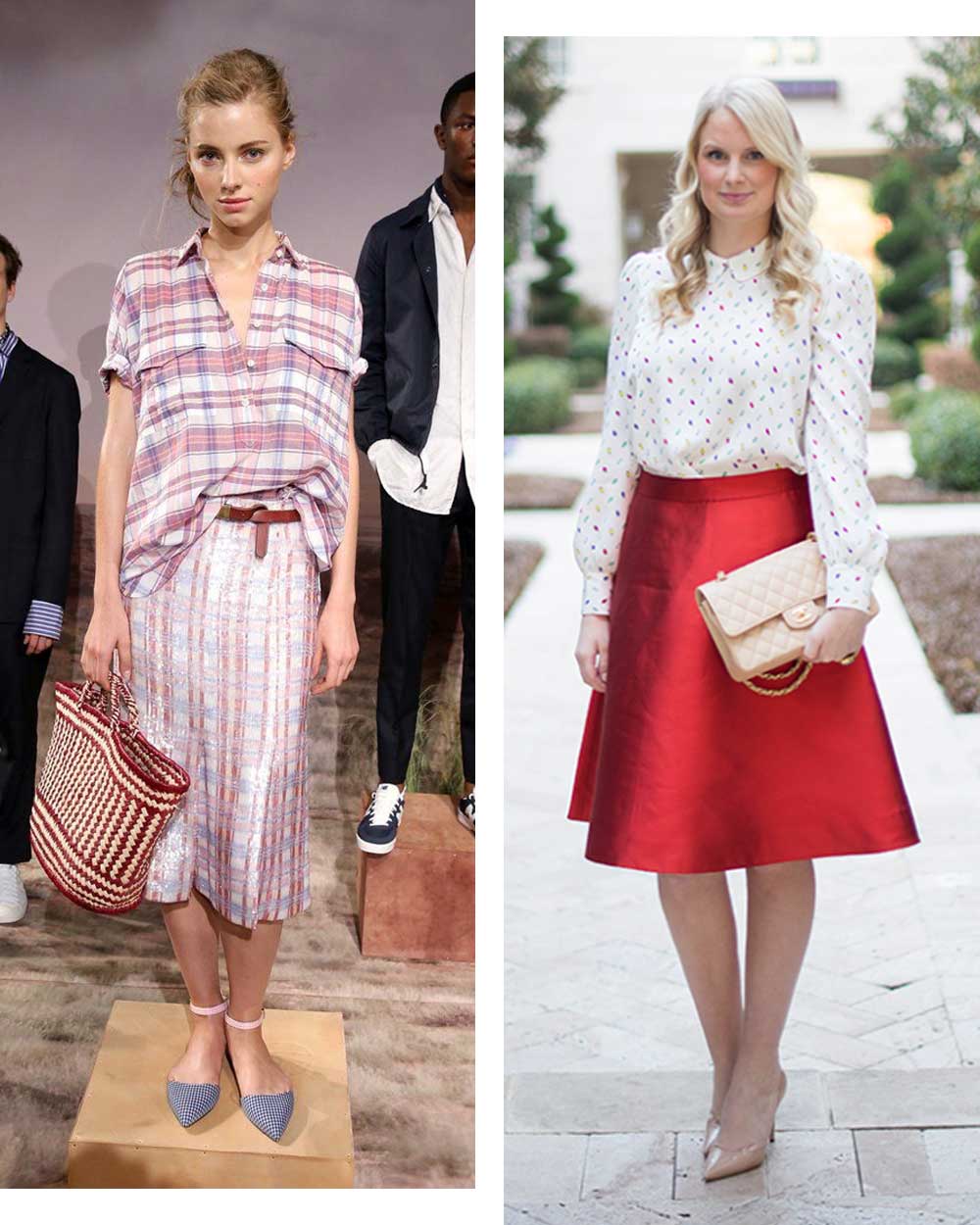

J.Crew has built its reputation on providing modern interpretations of classic American style.
The brand’s clothes display a mix of casual and sophisticated Preppy aesthetic elements.
6. Tory Burch
(2004)
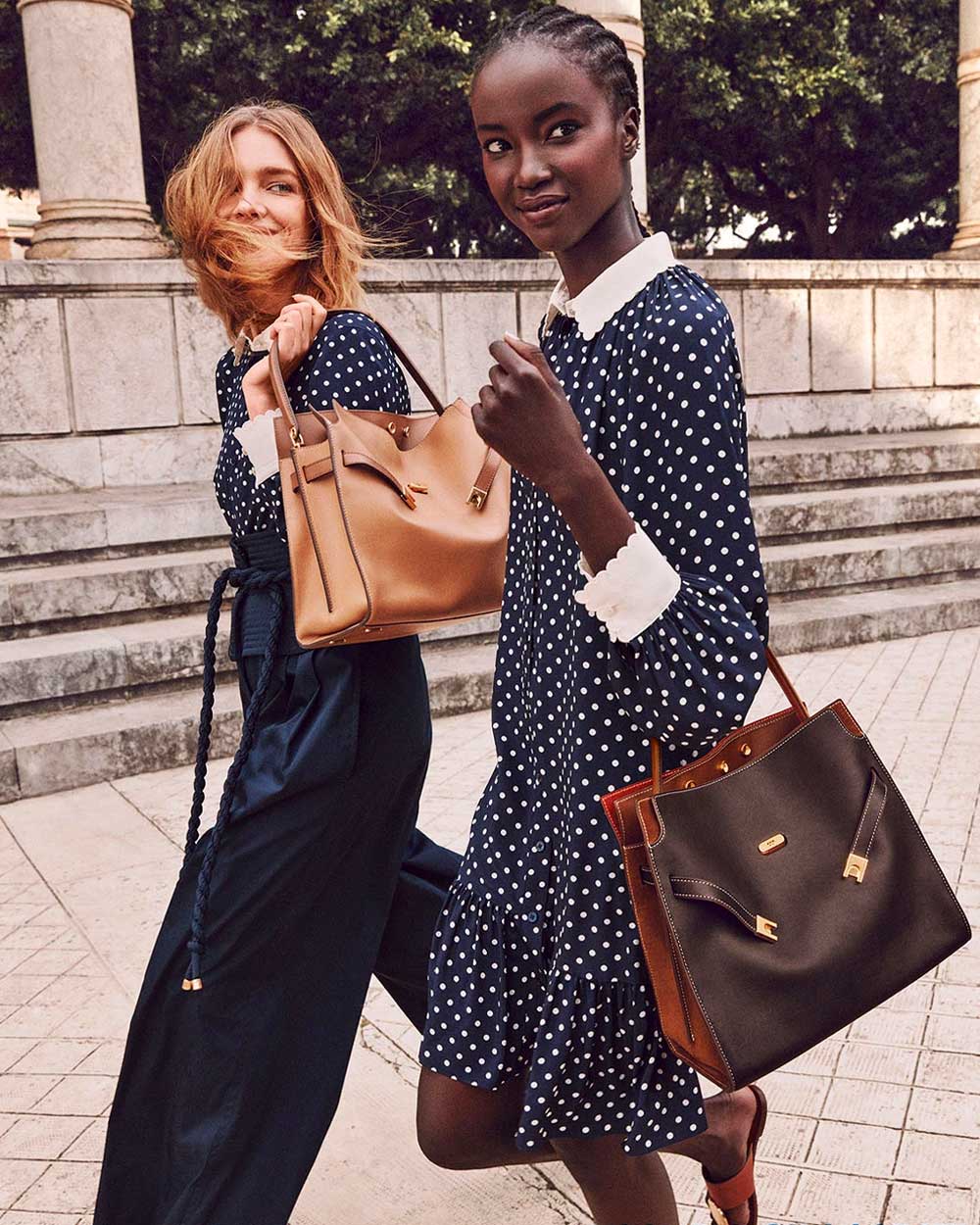

Tory Burch offers preppy-style clothing and accessories beyond the classic Preppy style.
The designer’s collections showcase an upscale and chic interpretation of the Preppy style, especially the accessories line.
7. Barbour
(1894)
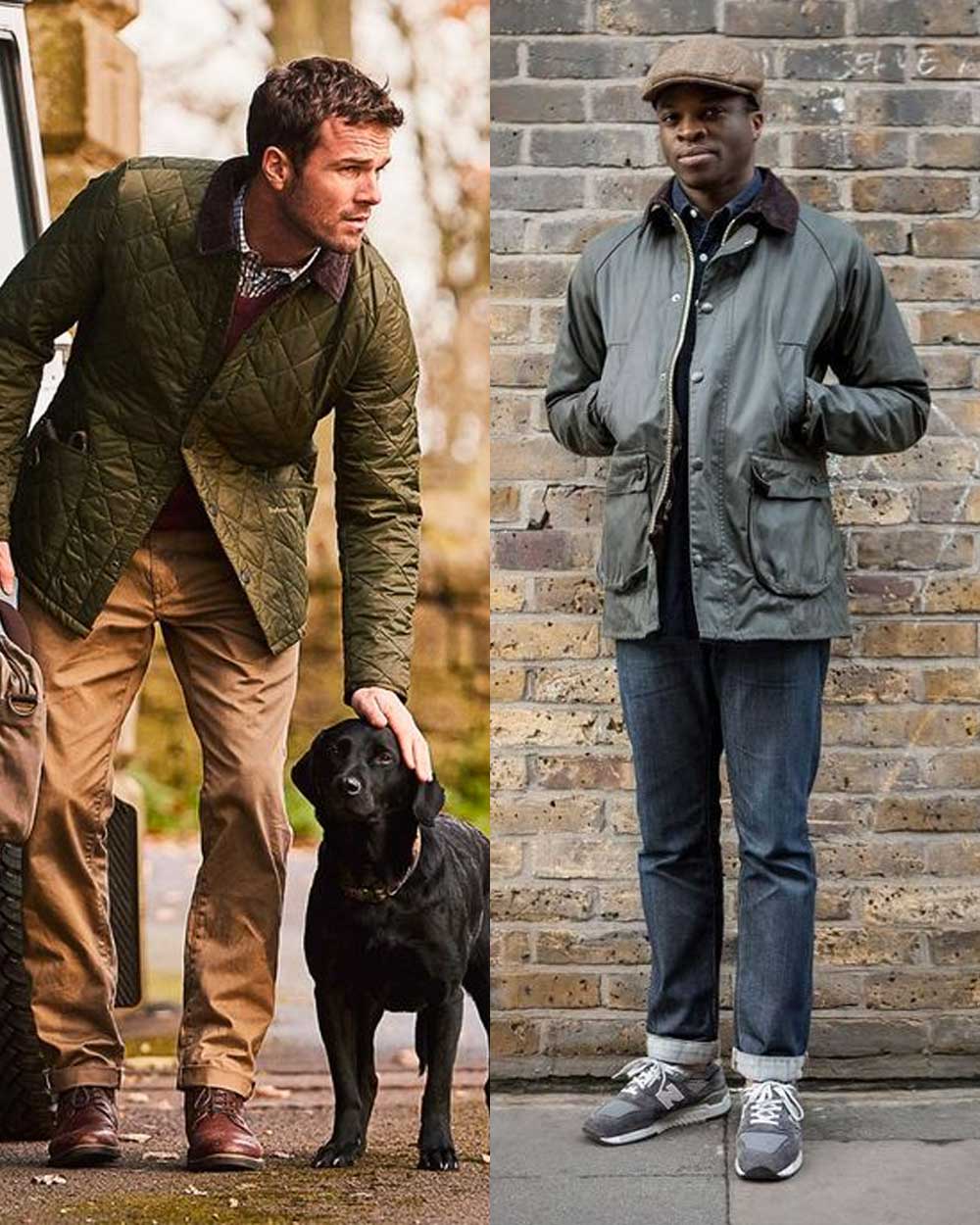

Barbour is a British fashion brand that brought the iconic waxed cotton jackets to the preppy world.
Worn by British royal family members like Queen Elizabeth II and Prince Charles, Barbour’s jackets became a staple in American Preppy culture for their blend of class, elegance, and practicality.
8. J. Press
(1902)
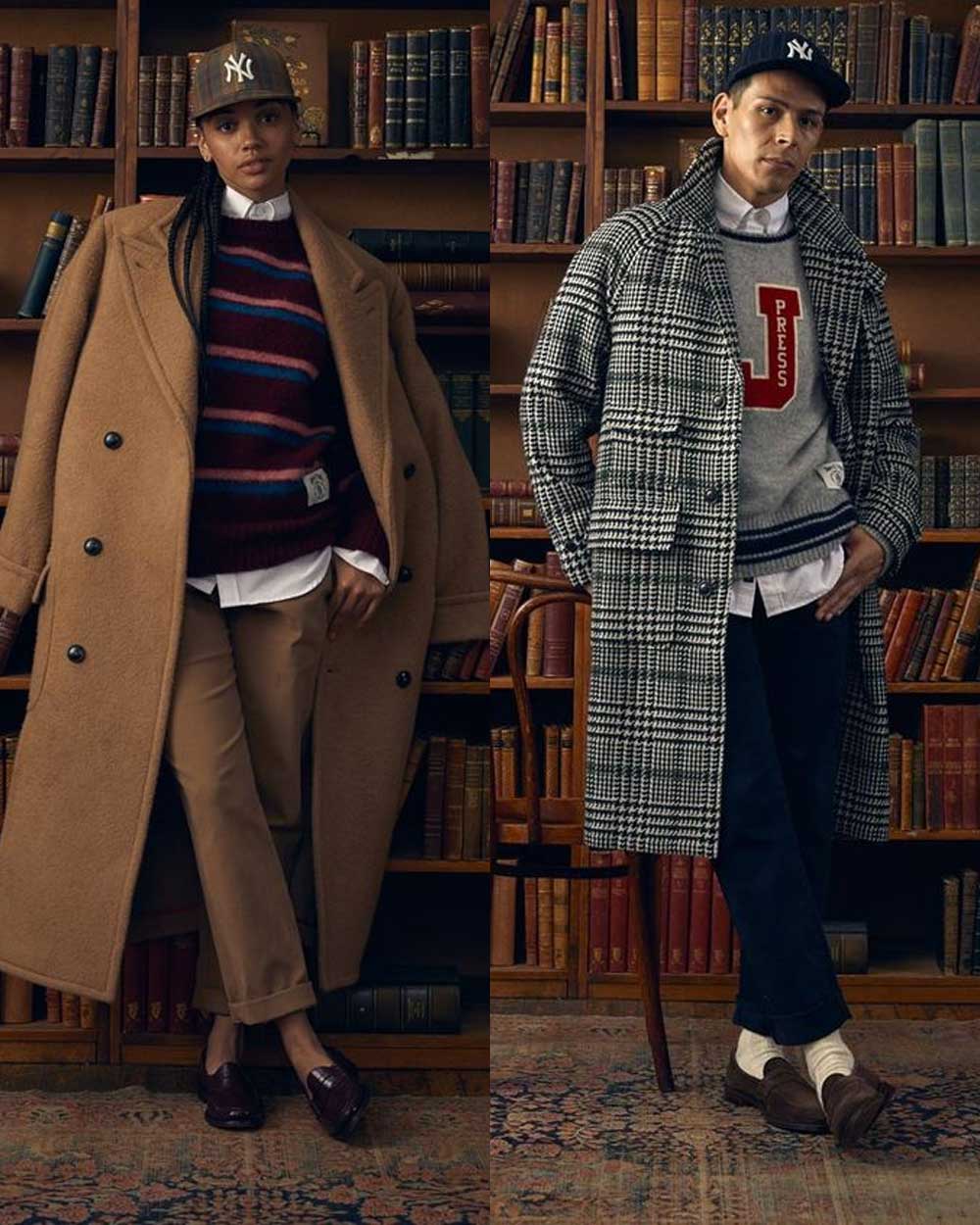

J. Press is a staple in Ivy League wardrobes, known for its traditional American style.
The label has clothed figures like President Franklin Roosevelt and countless Yale students, reinforcing its influence in Preppy culture.
9. L.L. Bean
(1912)
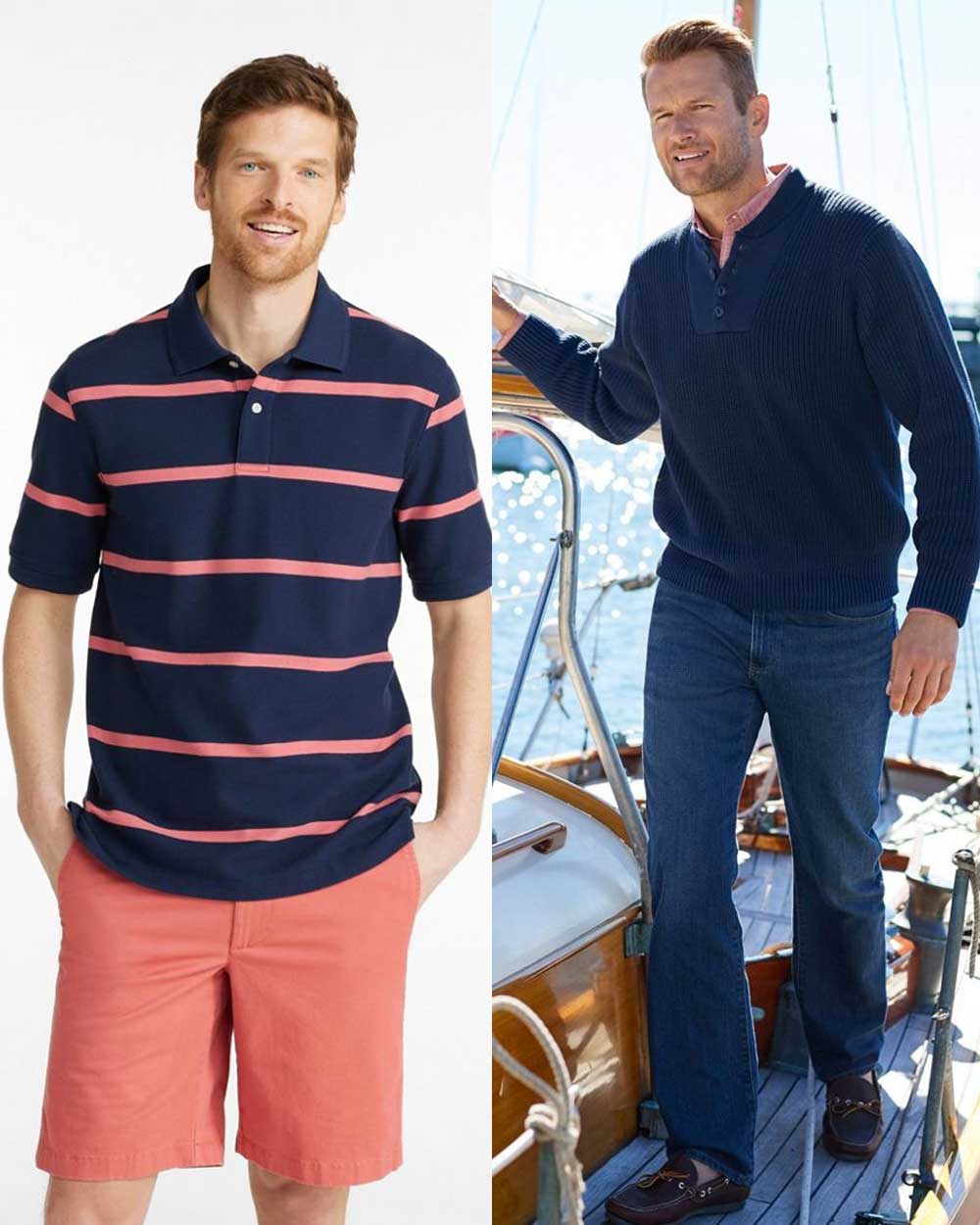

L.L. Bean is a Maine-based company best known for its Bean Boot and durable outdoor wear, symbolizing the rugged, outdoorsy side of Upper-Midwest Preppy style and subculture.
Iconic cultural figures like Ernest Hemingway wore L.L. Bean products.
10. Sperry Top-Sider
(1935)
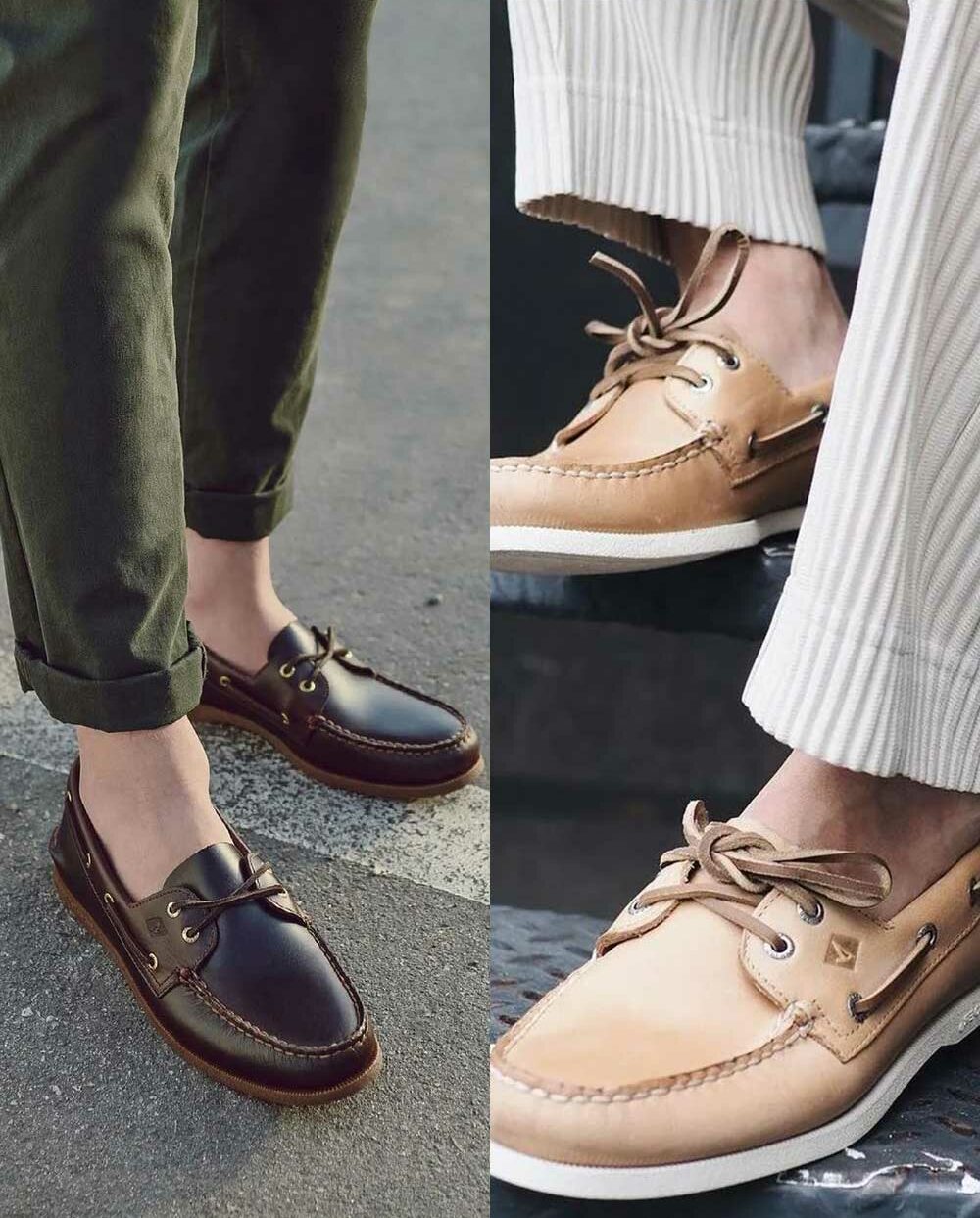

Sperry introduced the boat shoe, essential footwear in the North-Eastern Preppy style and culture, given its associations with nautical leisure.
President John F. Kennedy and Prince Charles’ choice of Sperry’s boat shoes increased their popularity within Preppy circles.
11. Gant
(1949)
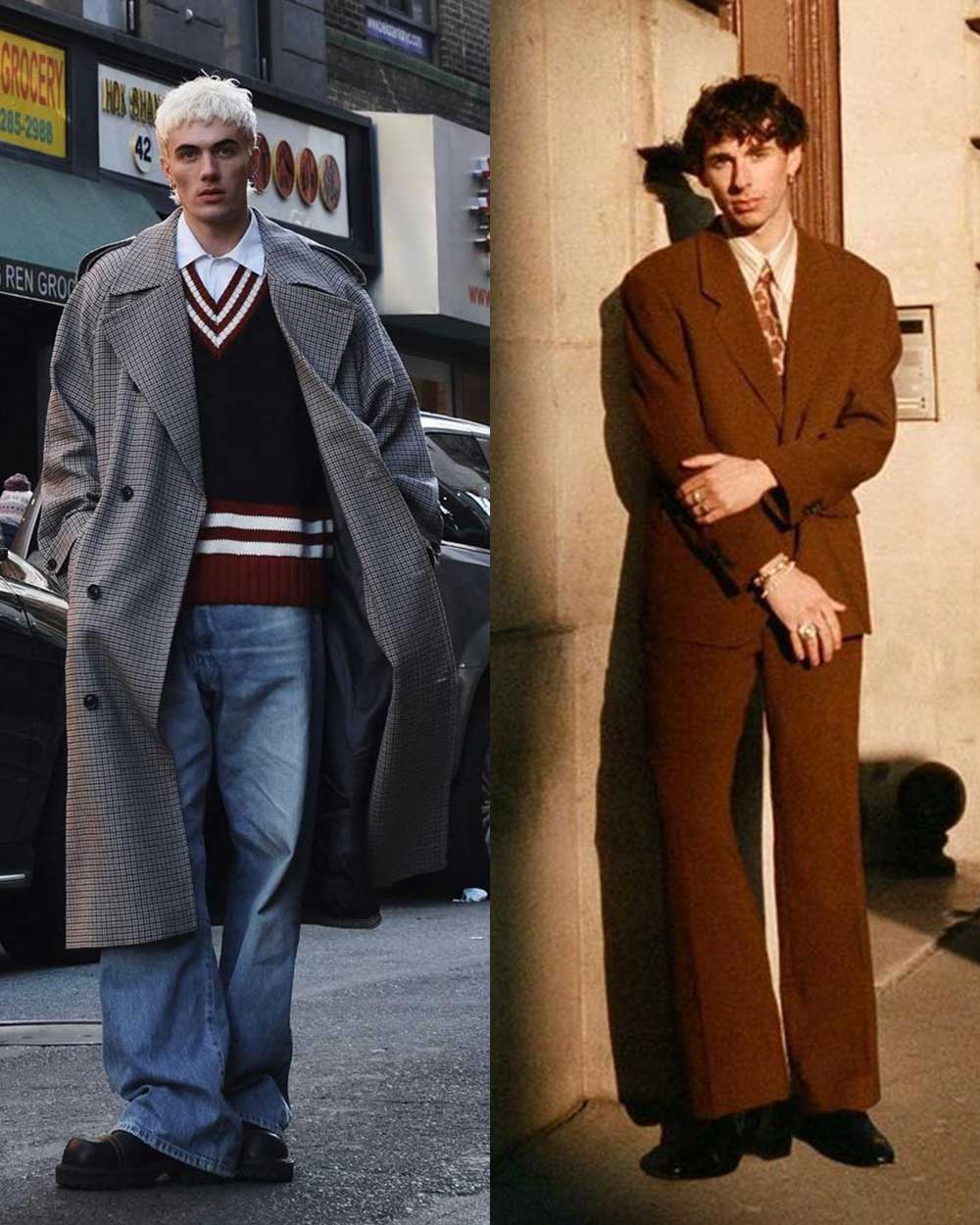

Gant was a favorite brand among Ivy League students, cementing its place in the Preppy subculture.
Known for high-quality shirts and unique features like the locker loop and the box pleat, the American-Swedish brand became popular among Preppy crowds.
12. Izod
(1952)
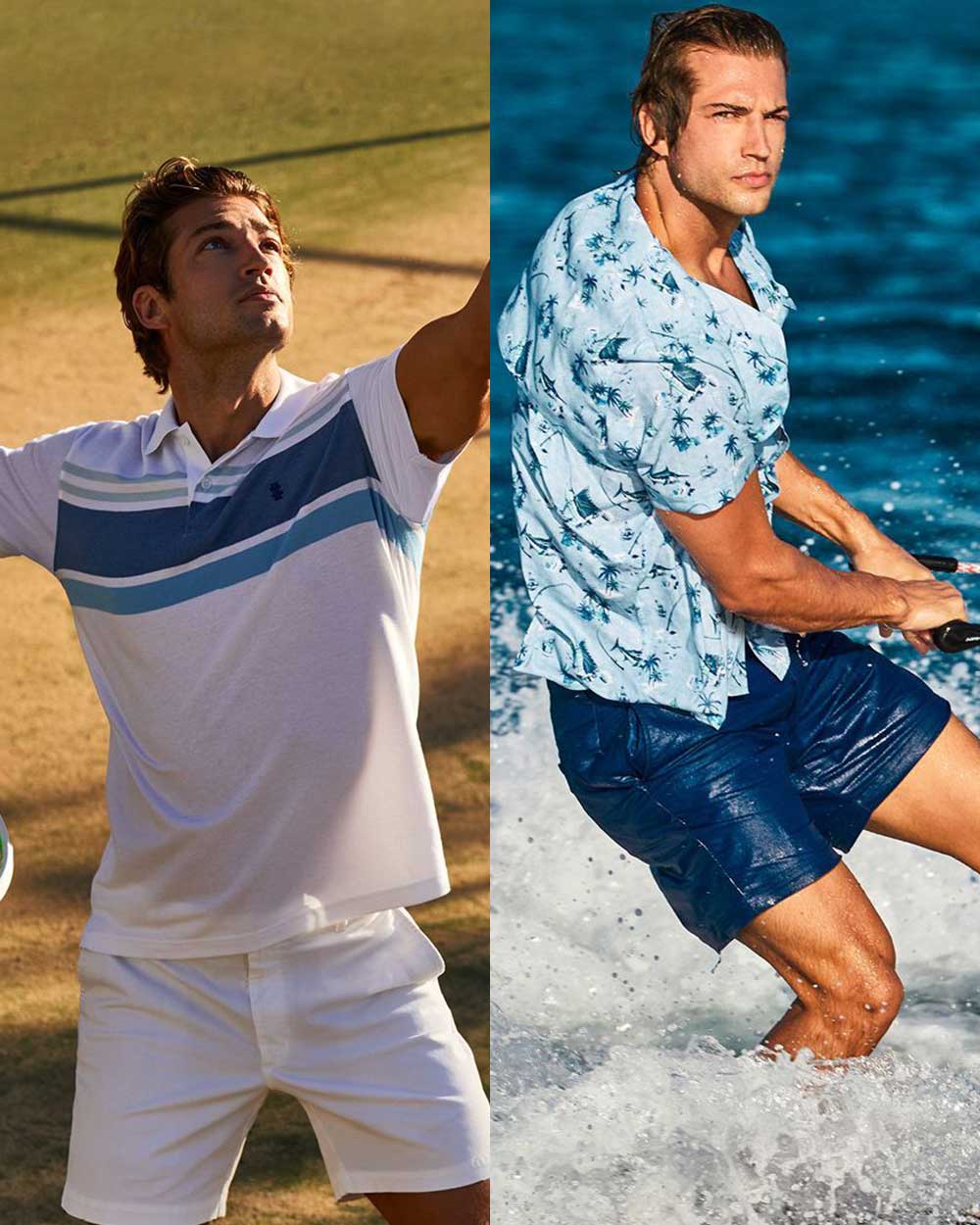

In collaboration with Lacoste, Izod helped popularize the polo shirt in the U.S., a significant development in Preppy fashion.
Celebrities like Grace Kelly and President Dwight Eisenhower were seen wearing Izod-Lacoste polos.
Fashion Shows and Runway Moments
The unique way of dressing is a critical part of the Preppy subculture, signaling its heritage, roots, values, and lifestyle.
As such, Preppy designers and their shows are highly regarded and honored by the subculture.
From Ralph Lauren’s blend of rugged and glamorous, Tommy Hilfiger’s marriage of street influences with preppy aesthetics, and Lacoste’s tennis roots, these are the most important Preppy catwalks.
1. Ralph Lauren
Spring 1988
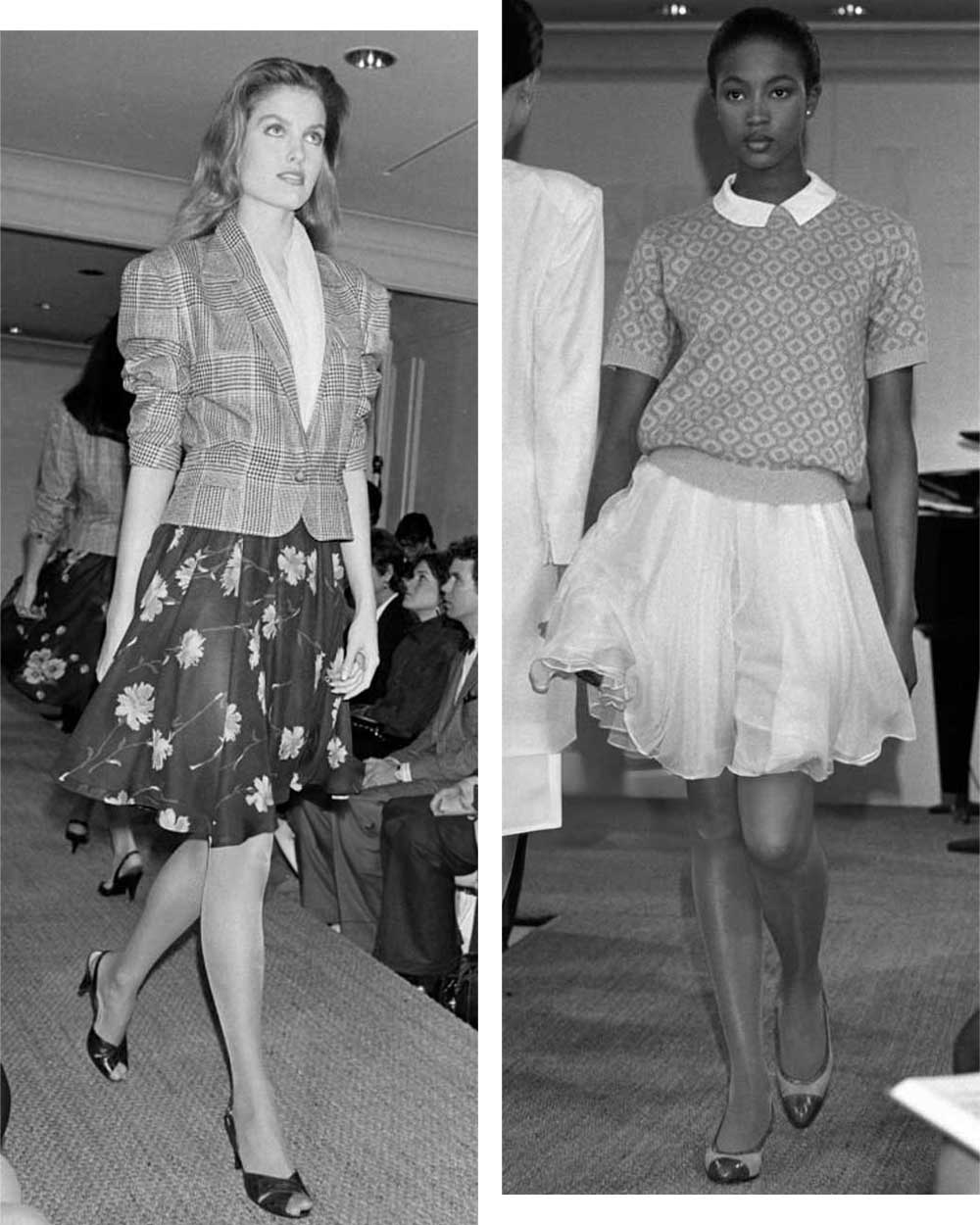

The Ralph Lauren Ready to Wear Spring 1988 Show in New York was a masterclass in reinventing the classic Preppy style with an opulent edge.
The collection featured an elegant mix of traditional preppy clothes, such as tailored skirt suits and cashmere cardigans, with luxurious textures like taffeta, satin, and suede.
Notable ensembles included a pastel taffeta skirt, a chic black tank top, and a cashmere cardigan adorned with organza ruffles.
The creative blend of soft colors, luxurious materials, and modern layering techniques exemplified Ralph Lauren’s genius in refreshing the timeless Preppy aesthetic with sophistication and finesse.
2. Tommy Hilfiger
Spring 1993
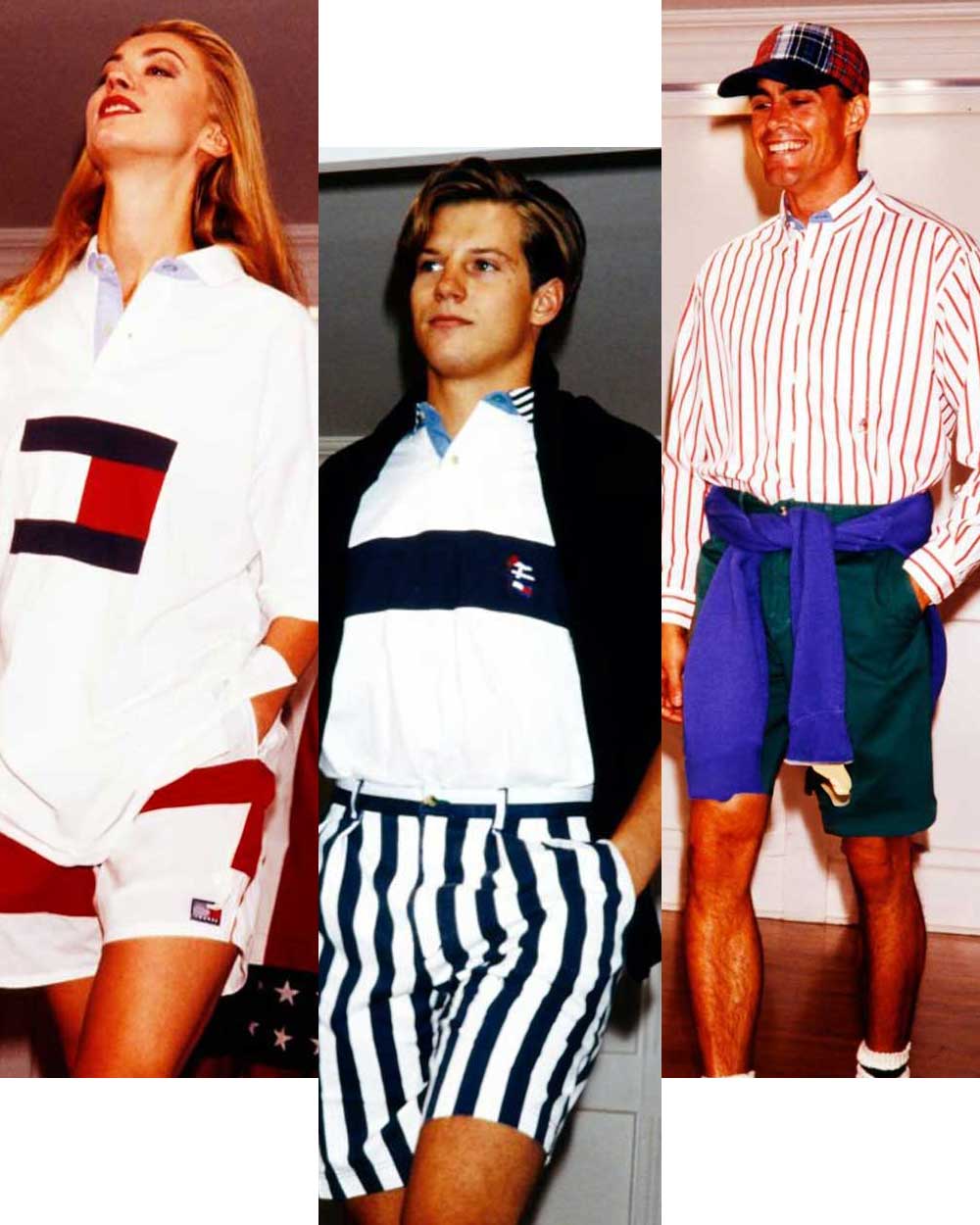

The Tommy Hilfiger Spring 1993 Ready to Wear Collection in New York City exuded a nautical charm, blending classic preppy and beach aesthetics.
With an array of stripy shirts and rugby-style tees in bold red, white, and navy hues adorned with anchors and horizontal stripes, the collection encapsulated maritime elegance.
V-neck cable knit sweaters layered over polo shirts, paired with Bermuda shorts and white chinos, epitomized a refined casual look.
The ensemble was completed with canvas slip-ons, sailor hats, and beach gowns in the brand’s signature colors, capturing the essence of a seaside adventure with a quintessentially preppy twist.
3. Chanel
Spring 1995
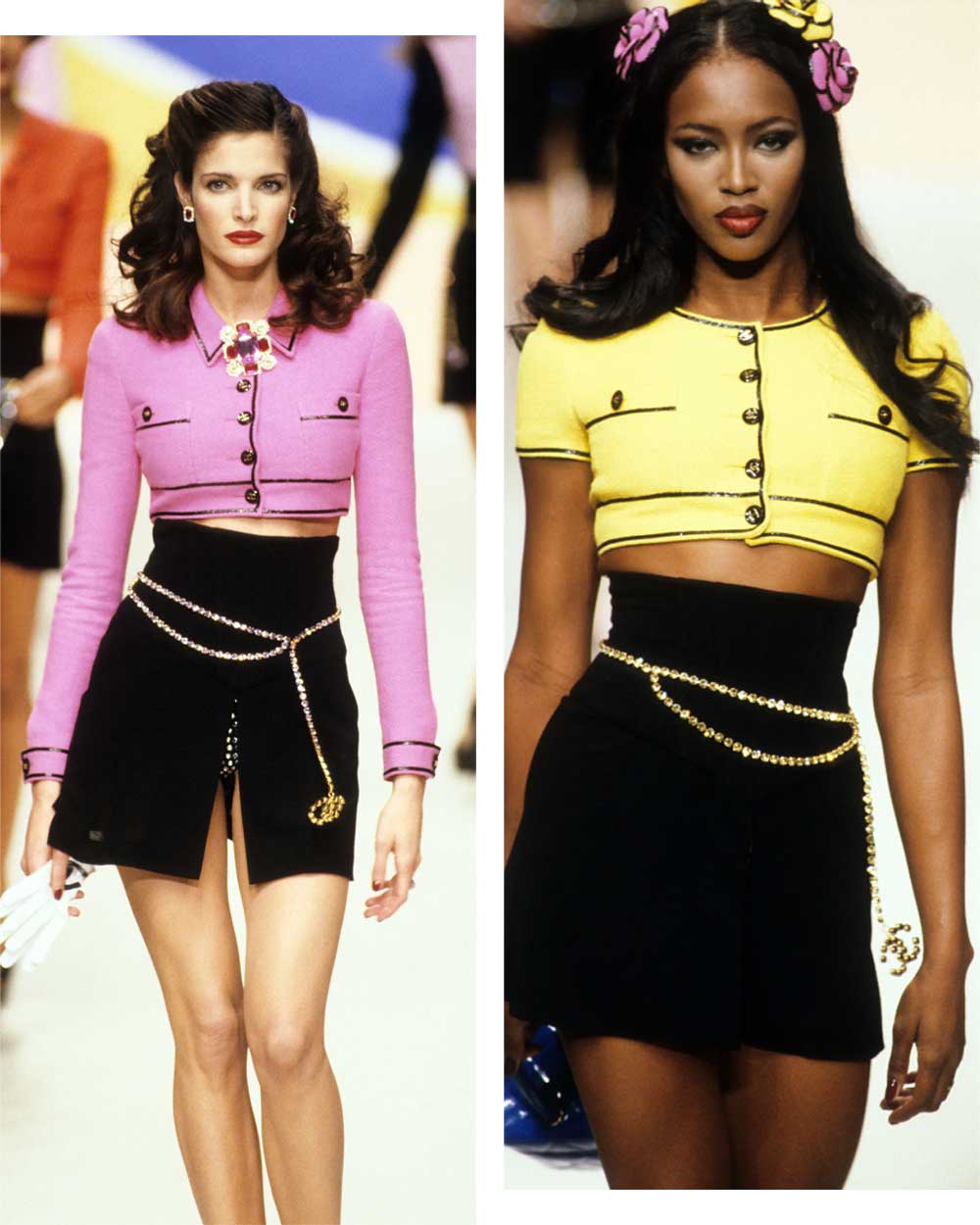

Karl Lagerfeld’s Chanel Spring 1995 collection daringly reimagined preppy fashion by infusing it with bold deconstruction and avant-garde elements.
Lagerfeld creatively employed classic preppy materials like tweed in audacious ways, such as lingerie, and paired them with iconic preppy accessories like layered pearls.
His unexpected combinations, including midriff-baring jackets, high-slit skirts, and modern synthetic accessories, artfully balanced the line between traditional preppy elegance and bold, contemporary flair, paying homage to Coco Chanel’s timeless style.
4. Phat Farm
Spring 1998
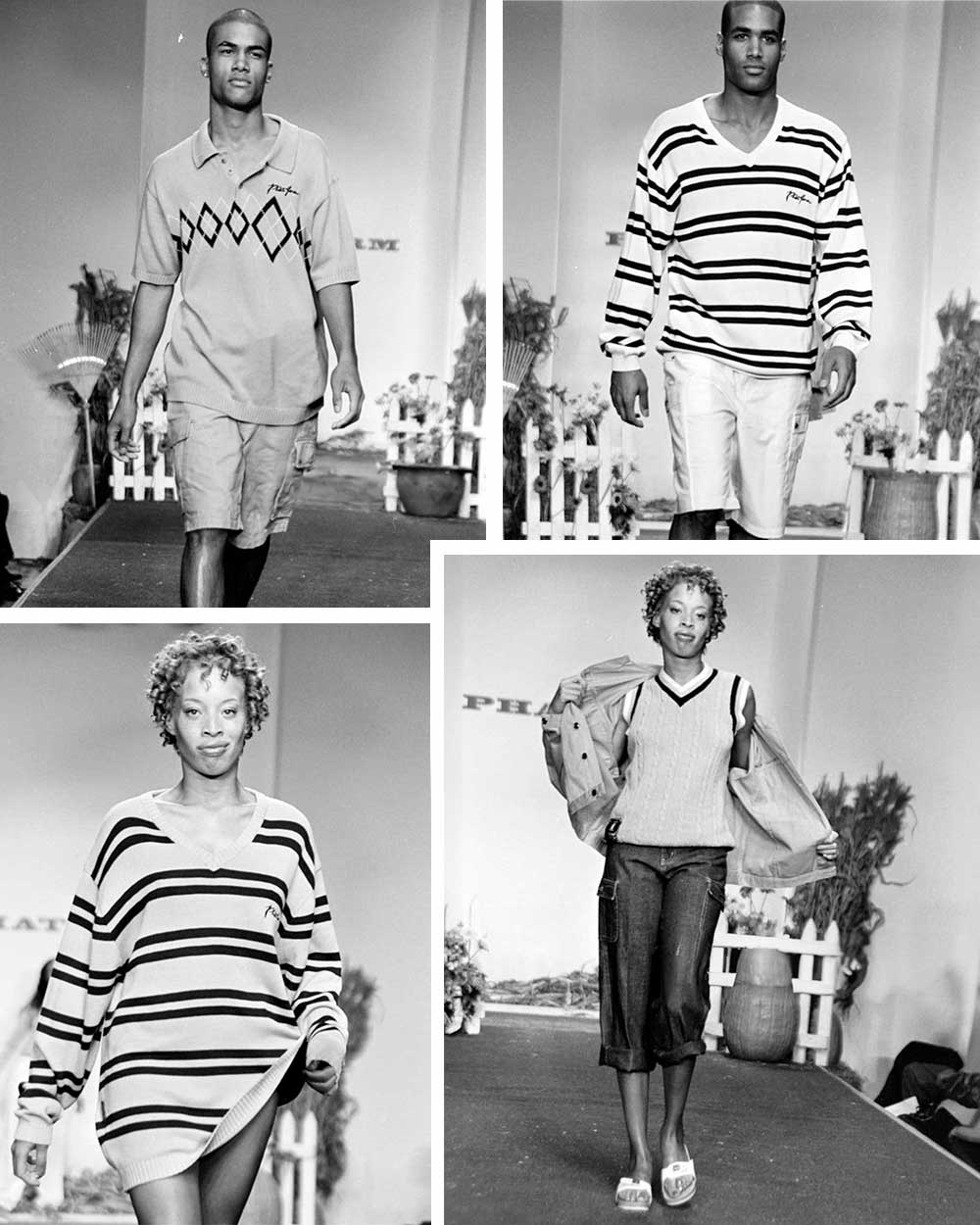

Phat Farm’s Spring 1998 collection married the boldness of streetwear with the classic elements of Preppy fashion.
The show included oversized tees in vibrant colors like royal blue and scarlet red, paired with relaxed-fit cuffed jeans to showcase footwear.
The college bomber jackets, an emblem of traditional Americana, were worn over Bermuda shorts in classic checks and stripes, exuding an air of scholarly nostalgia.
The show was peppered with unexpected accessory choices like sneakers in high-top styles and cowboy hats, adding a dash of urban flair.
Russell Simmons, Donald Trump, and Melania Trump were spotted among the crowd, adding to the show’s prominence.
5. Ralph Lauren
Spring 2004
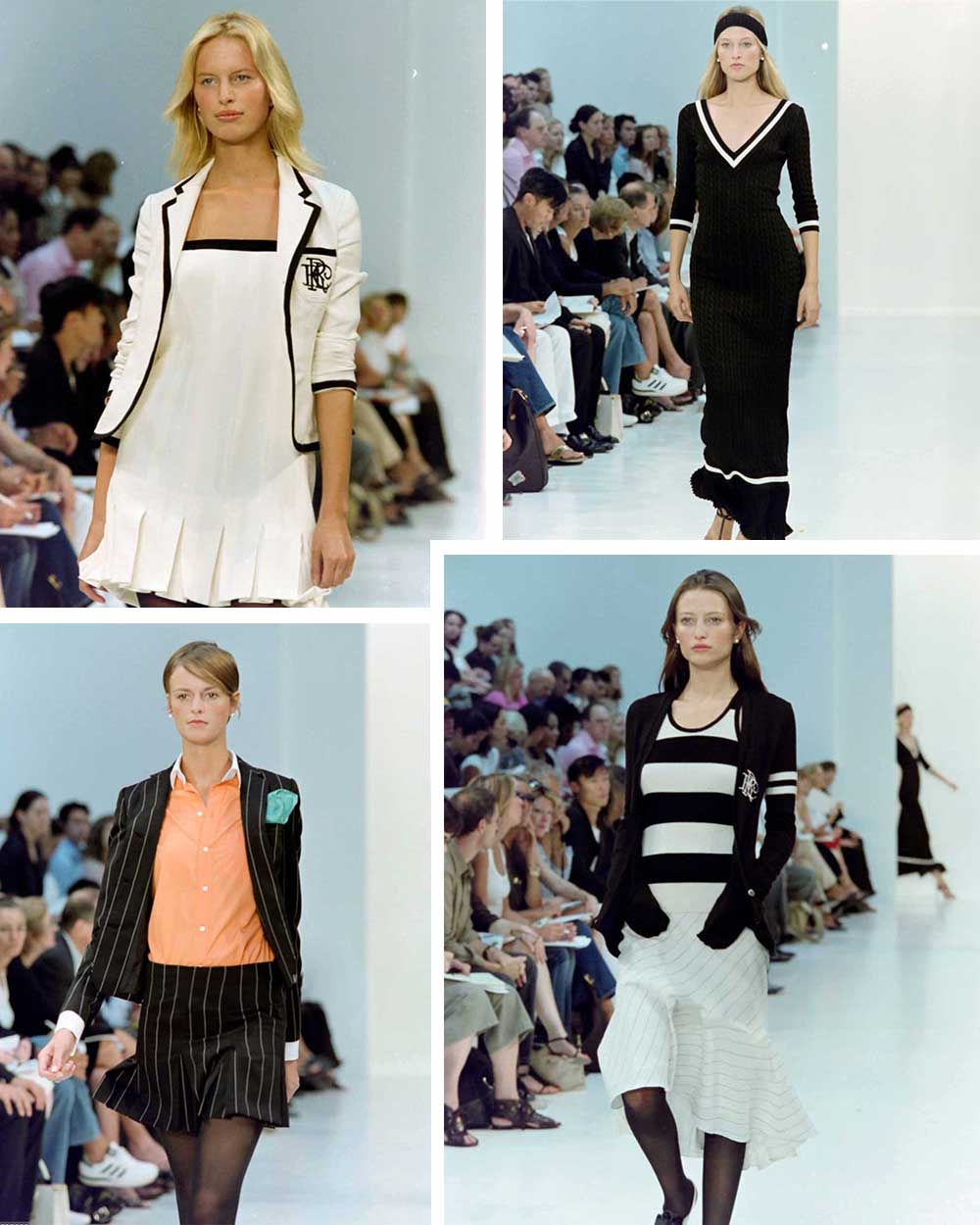

Ralph Lauren’s Spring 2004 collection masterfully fused classic Preppy aesthetics with athletic wear and a splash of tropical flavor.
The initial segment was an ode to traditional Preppy style, with crisp tennis dresses, one notably crafted from white silk with a polo collar, and several variations of cable knits with V-neckline.
In an explosion of tropical hues such as violet and lime green, man-tailored pantsuits were stylishly paired with contrasting cashmere sweaters, reflecting a modern twist on the preppy aesthetic.
6. Lacoste
Spring 2010
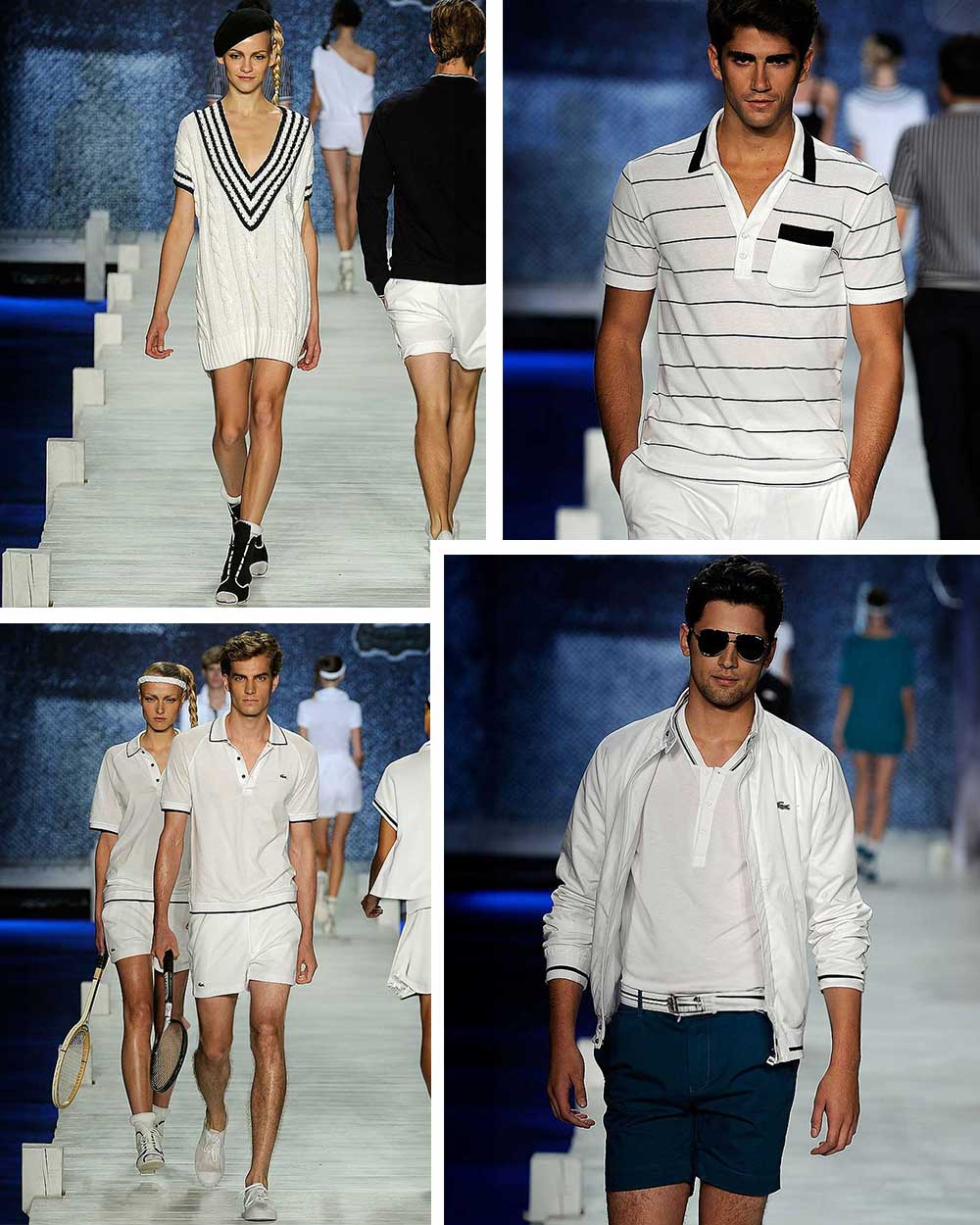

Under the creative direction of Christophe Lemaire, Lacoste’s Spring 2010 collection delivered a fresh and lively Preppy style with a ‘French resort’ twist.
The runway was transformed into a French boardwalk, and the collection focused on simple, sporty chic, incorporating quintessential tennis references such as micro pleated miniskirts, airy mesh sneakers, and a cable-knit sweater dress.
The holiday feel was further enhanced through wide-leg pants and floppy hats reminiscent of the early twentieth-century Parisian style.
7. Tory Burch
2016 Runway
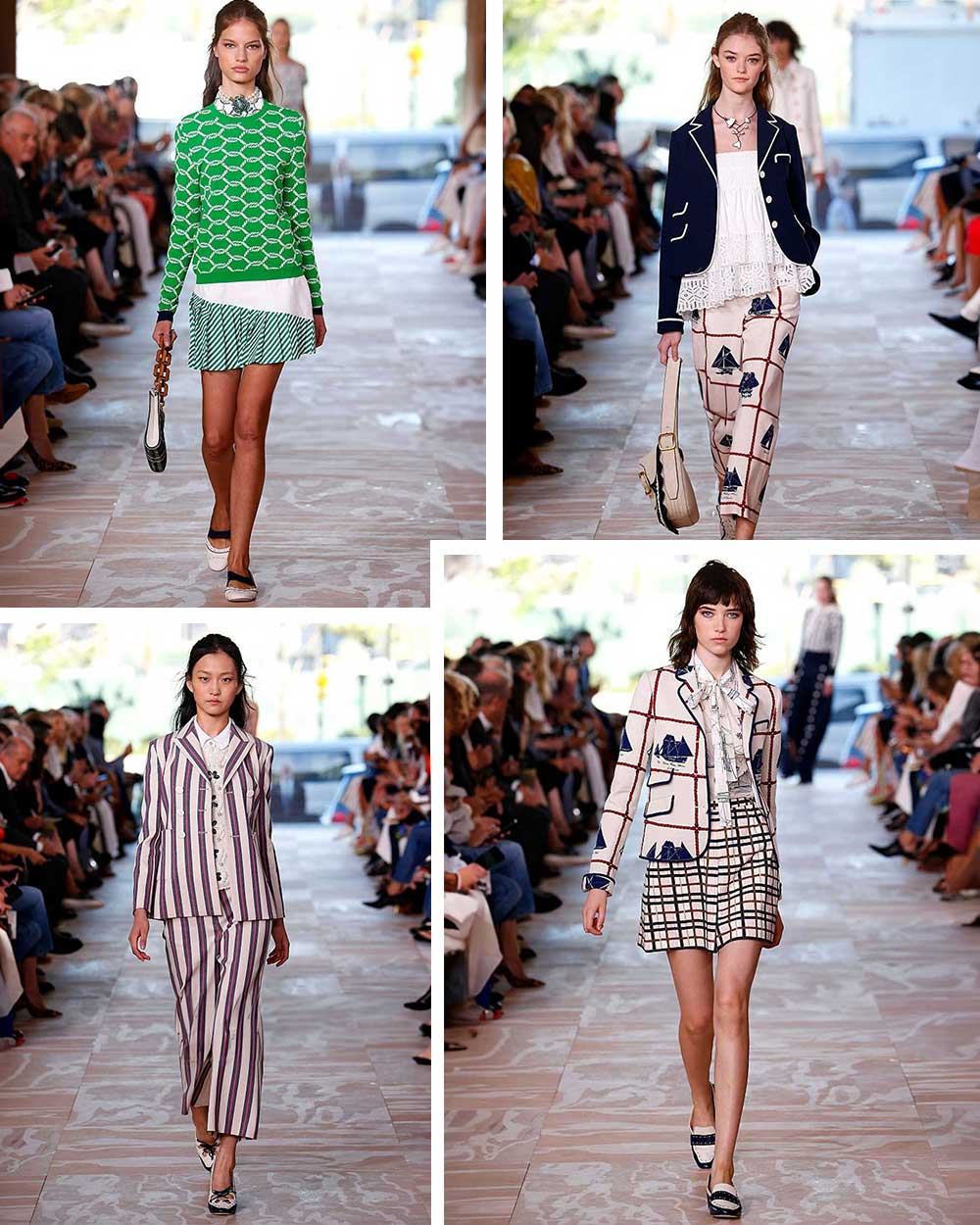

Tory Burch’s Spring 2016 collection artfully combined global aesthetics, patterns, and textures to reimagine the classic Preppy style.
Set against an airy backdrop, the collection featured blocky striped knit tops, embroidered wide-leg trousers, guipure lace separates, and fringed-tweed wrap skirts that exuded a refined yet eclectic vibe.
With their Amalfi Coast to East Coast inspirations, the outfits were accessorized with pearls and pumps, capturing Preppy’s timeless elegance.
The show blended classic preppy patterns with Mexican and Romanian embroidery, periwinkle and saffron colors, and materials like linen and leather, emphasizing Burch’s signature take on modern, cultured preppy style.
8. Brookes Brothers
200th Anniversary Show – Fall 2018
For Brooks Brothers’ 200th-anniversary Fall collection, Zac Posen blended the brand’s rich Preppy heritage with modern trends.
Drawing from the archives, Posen reimagines classic Preppy garments such as the red riding jacket adorned with gold monogrammed BB buttons, giving it a fresh and chic appeal.
As a nod to modern Preppy styles, the collection showcased graphic rose patterns, materials like Lurex, leopard-print velvet skirts, and intricate bead embroideries on silk.
While staying true to its conservative roots, Brooks Brothers ventures into fashion-forward territories under Posen’s craftsmanship, making it appealing to traditional and contemporary fashion enthusiasts.
9. Lacoste
Spring 2020
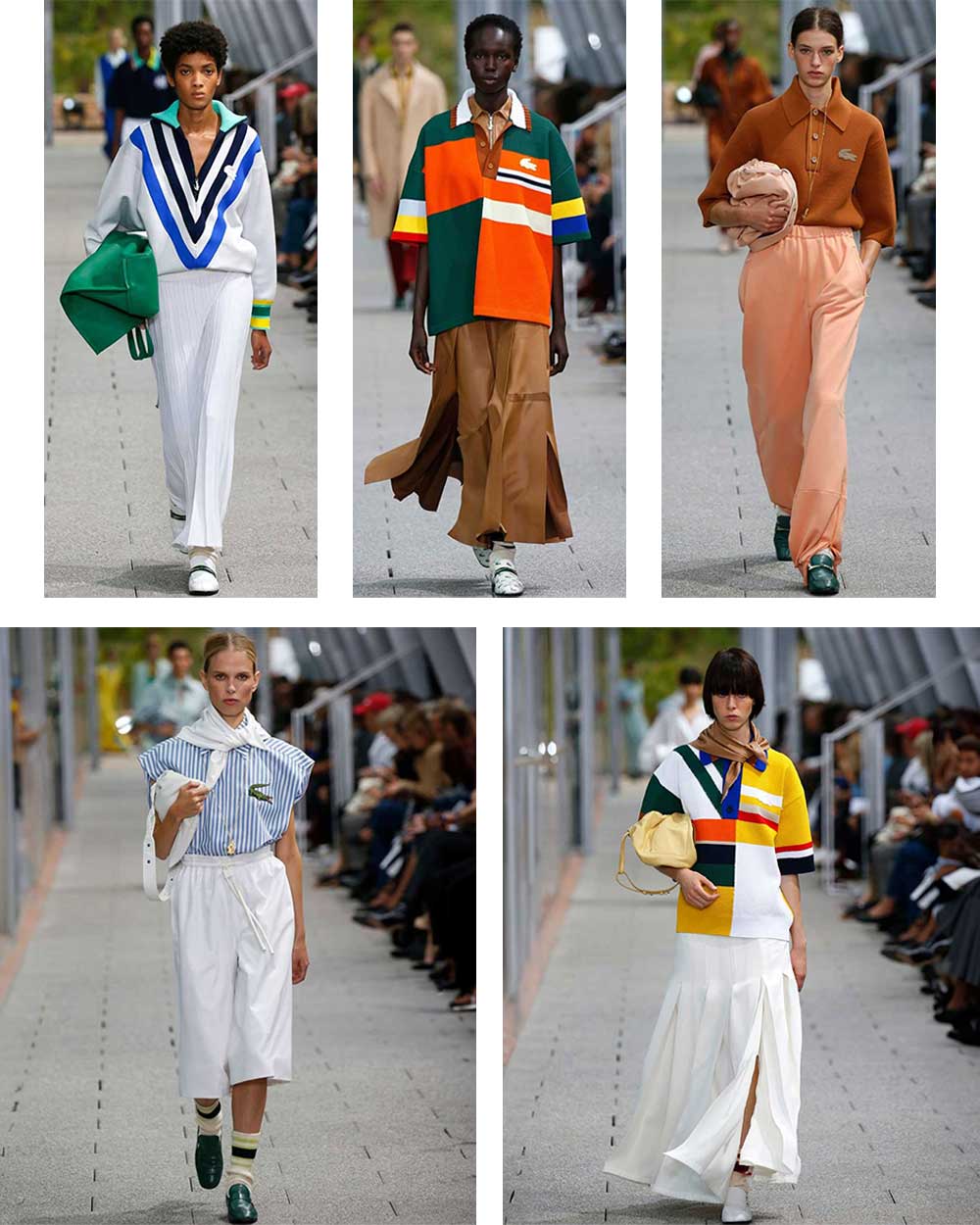

The Lacoste show, presented at the Court Simonne-Mathieu in Paris’s Roland-Garros tennis complex, celebrated the brand’s rich tennis heritage while infusing it with a luxurious twist.
Louise Trotter, the brand’s designer, showcased a collection that married a sporty Preppy aesthetic with high-end visuals and textures.
The Preppy pique shirt, a classic staple, was reimagined into oversized waffled short-sleeve shirts in daring colors, while full-length polo shirtdresses were augmented with leather collars and pockets.
The collection’s elegance was amplified by tailored tan gabardine trench coats adorned with green Lacoste crocodile emblems and yellow suits, matched with silk pants in the house green.
10. Ralph Lauren
Spring 2023
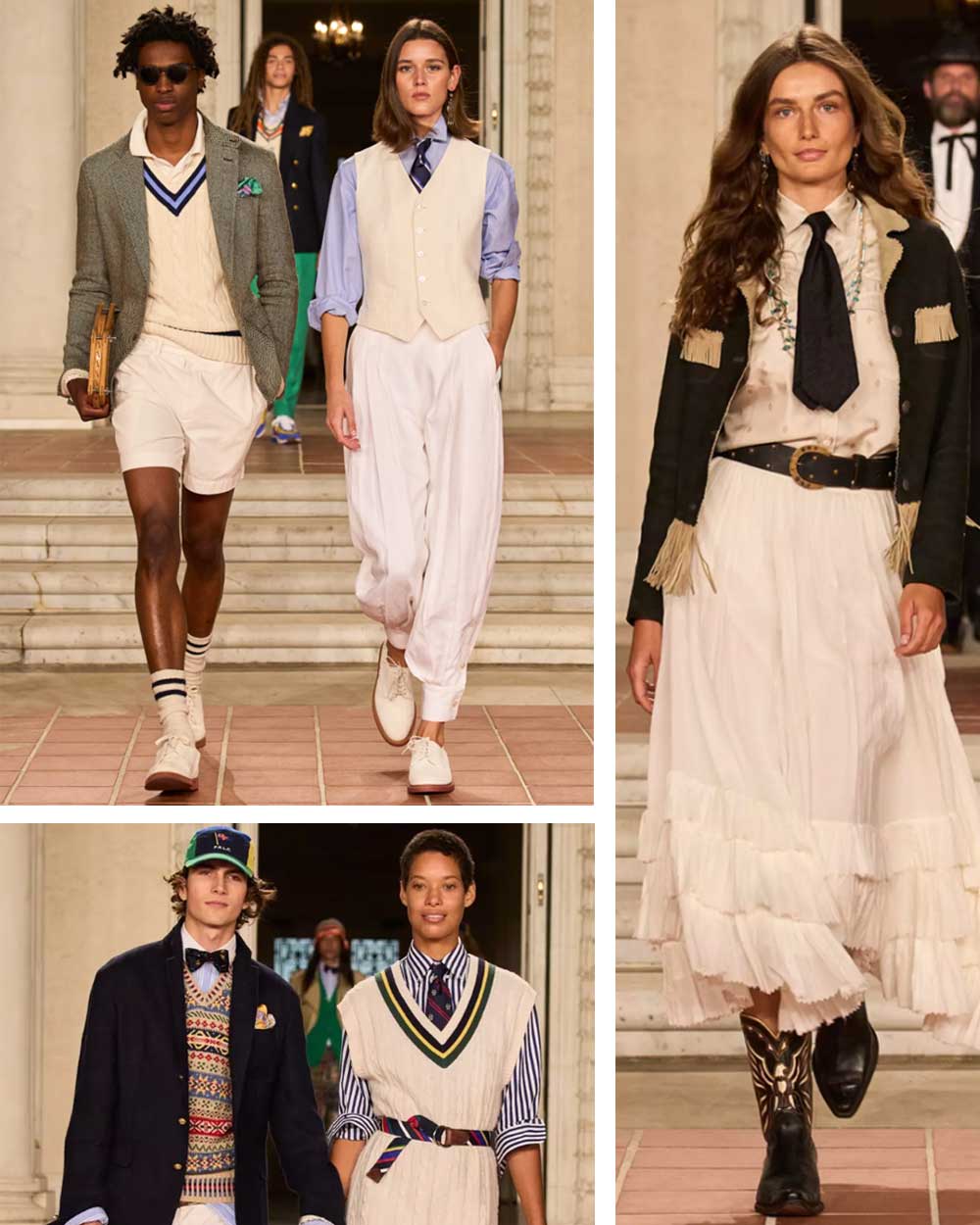

Ralph Lauren’s Spring collection, showcased at the Huntington Library in Southern California, embraced the spirit of the West Coast by blending California’s casual elegance with the classic American Preppy style.
The collection showcased wheat-colored Preppy suits complemented by cowboy hats and Western belts, setting the tone for a harmonious fusion of urbane sophistication and farm-life charm.
Floral prairie dresses atop cowboy boots added a feminine touch, while oversized fringed cardigans conveyed depth.
The menswear featured dusky denim suits and attire reminiscent of classic Hollywood westerns, pleated pants with preppy sweaters, and tennis shorts with turtlenecks.
Catering to Gen Z’s styling, the collection combined Madras patchwork with athleisure and polo shirts with ball gowns, highlighting the modern Preppy style’s diversity, inclusivity, and richness.
11. Tommy Hilfiger
Spring 2023
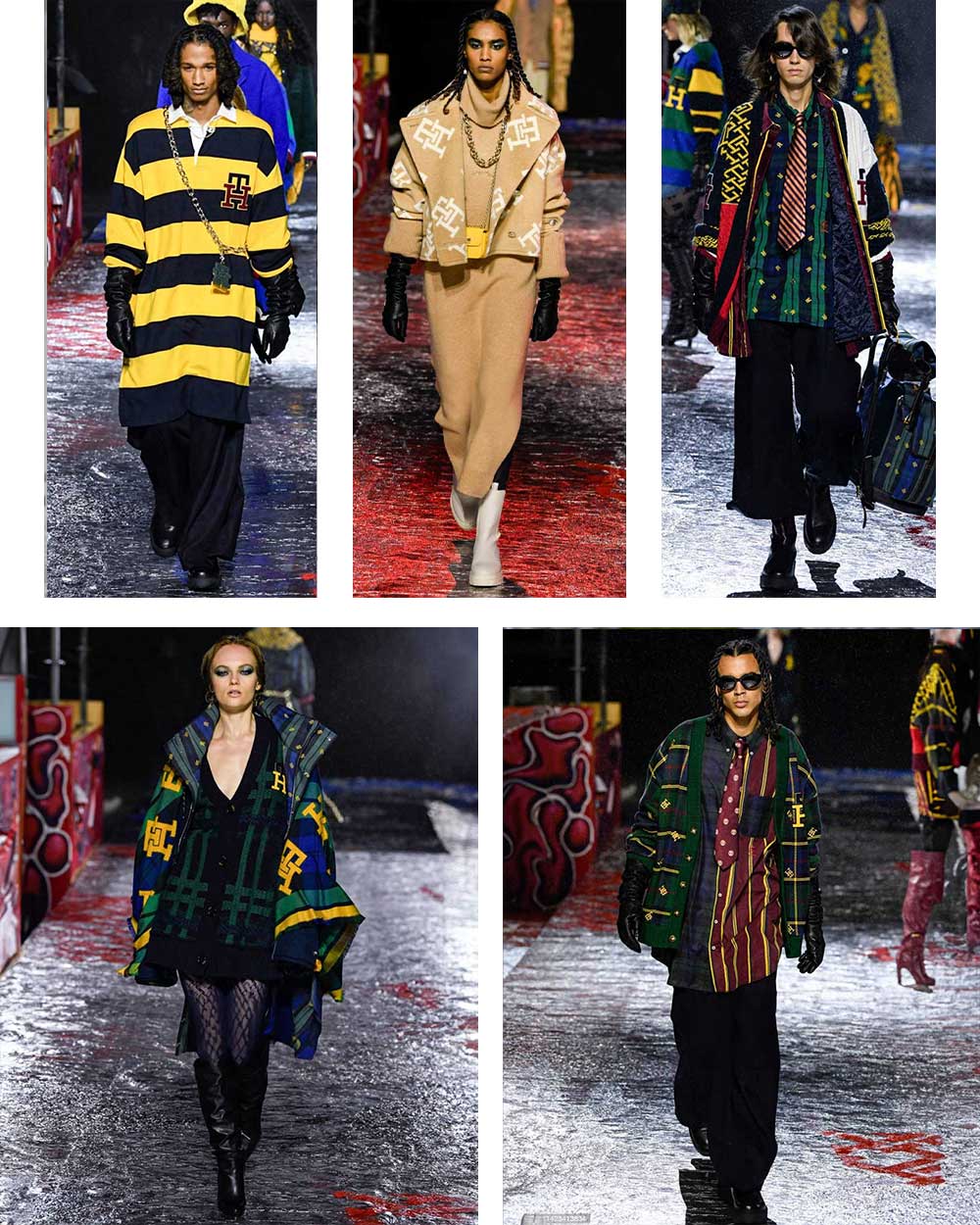

Showcased in Manhattan, Tommy Hilfiger’s Spring 2023 collection depicted a mature iteration of streetwear by blending in preppy elegance.
Inspired by oversized proportions and shapes, the collection featured innovative outfits like chunky sweaters in lime green paired with pleated trousers or low-rise micro skirts and boat shoes with thick soles.
By capturing an off-duty artistic aura through washed styles, comfortable fabrics, and smart tailoring, the nautical-themed collection was an homage to Andy Warhol.
And, with sustainability at the core, most garments were made from recycled fabrics.
Preppy Fashion in Other Cultures
As we live In an increasingly globalized world, fashion styles and aesthetics traverse borders, influencing and being influenced by diverse cultures.
The Preppy fashion style, with roots in the British and American cultures, is no exception.
As the style expanded beyond the borders of the United States, it started to adopt and shape accordion to various global cultures.
Yet, while each culture lends its unique flavor, reshaping and reinterpreting the Preppy style uniquely, the Preppy’s spirit and core aesthetics remain intact.
Let’s embark on a sartorial tour around the globe to explore some of the most popular Preppy style variations.
The Black/African-American Preppy style fuses staple Preppy clothes and patterns with styles, colors, materials, and shapes with cultural references to African and African-American heritage.
Traditional African textiles such as Ankara and Kente in bright and vibrant patterns are adapted in classic Preppy clothes and accessories like plaid skirts and rep ties.
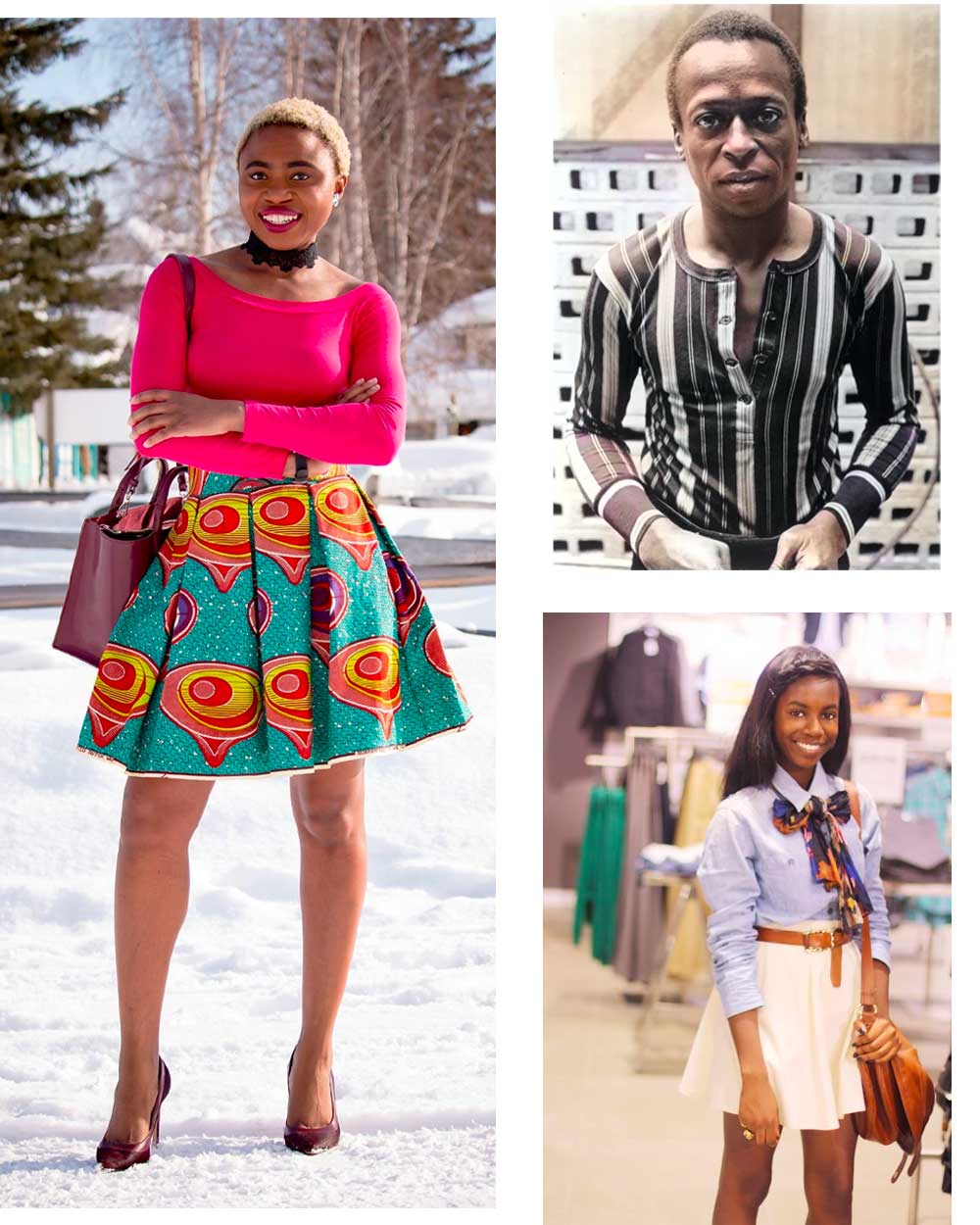

Dashikis, a traditional African shirt, is styled in a Preppy manner with chinos and loafers, while the hair is styled in afros, braids, or twists, in a distinct nod to African roots.
The Black Preppy style is prominent in American cities with significant African-American populations, such as Atlanta, Georgia, and Washington, D.C.
- British or English Preppy (Sloane Ranger)
Also known as the “Sloane Ranger” Preppy style, the British Preppy fashion look takes cues from the attire of the British upper class, English countryside attire, and royal aesthetic influences.
The style is named after Chelsea’s Sloane Square in London, an area associated with the upper class and fashionable elite, and was popularized by Princess Diana.
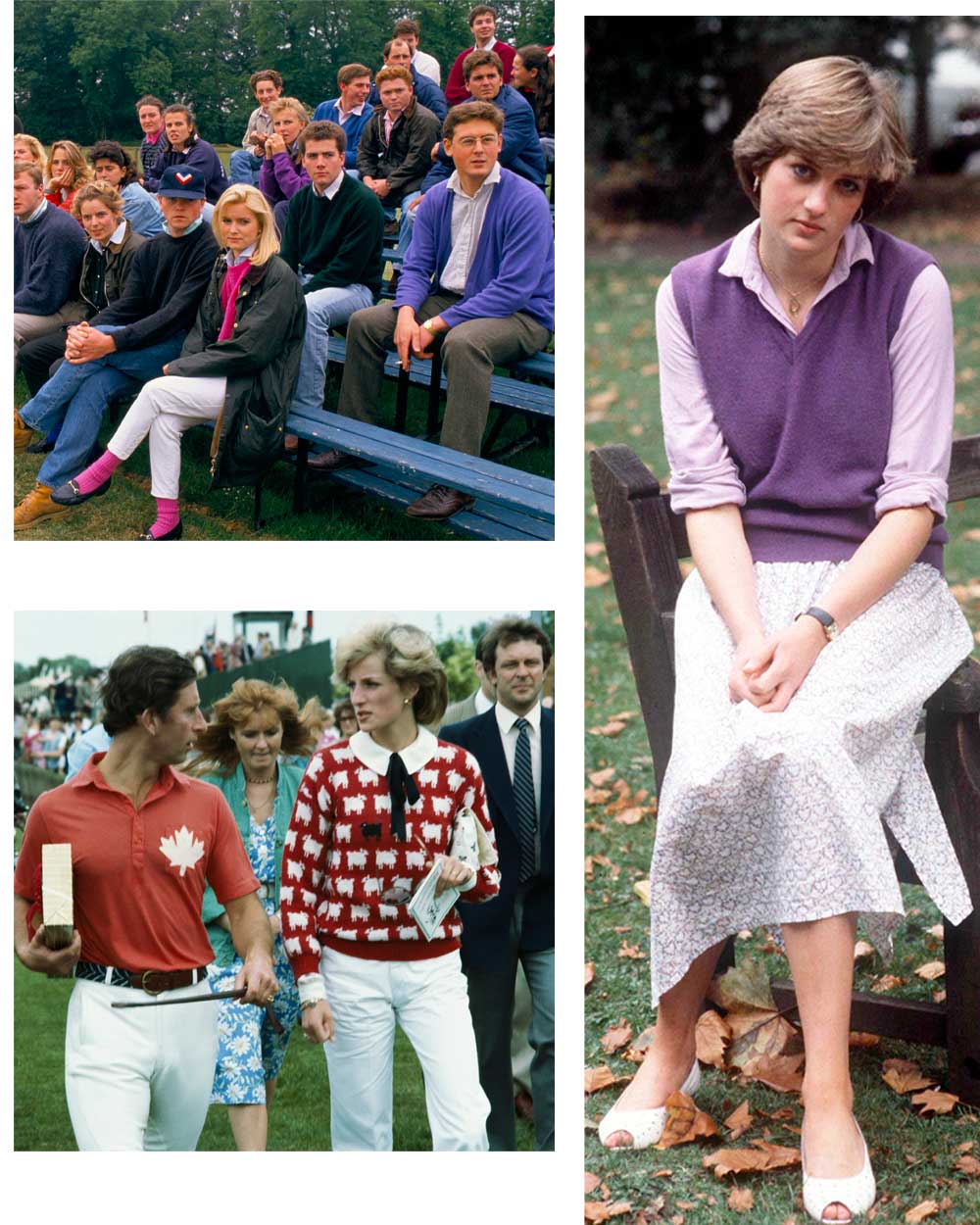

The Sloan Ranger Preppy style includes classic British patterns such as Tartan and houndstooth and favors earthy greens and muted brown tones.
With their wax jackets and Burberry’s classic checkered pattern, Iconic British brands like Barbour are leading contributors to the English Preppy style.
- Japanese Preppy (Trad Style)
Created in the late 60s by designer Kensuke Ishizu – the godfather of Japanese prep – the Japanese Preppy mimics the classic American style.
The style’s most popular clothes are cardigans, sweaters, lettermen jackets, suit pants, dress pants, turtlenecks, button-up shirts, bomber jackets, and leather shoes.
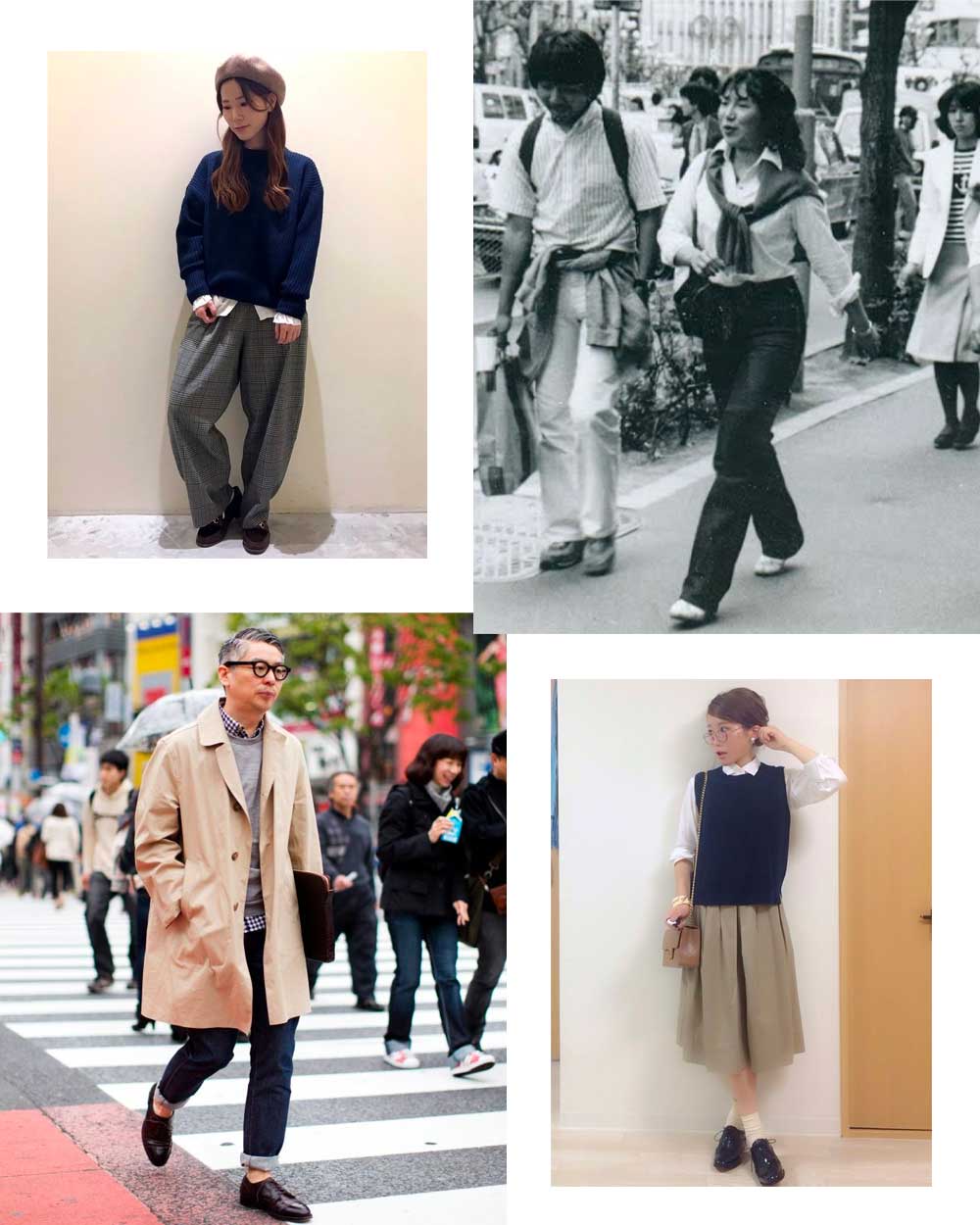

The Japanese Preppy fashion style has a variation named Trad Style, which is considered a more modest and mature version of the Ivy League style, with longer skirt lengths and shirts buttoned all the way.
The Korean Preppy style blends Ivy League Preppy aesthetics with distinct K-Pop fashion elements and visuals.
Reflecting the contemporary aesthetic of South Korean fashion, the local Preppy style features oversized blazers, pleated skirts, and loose ties in neutral tones.
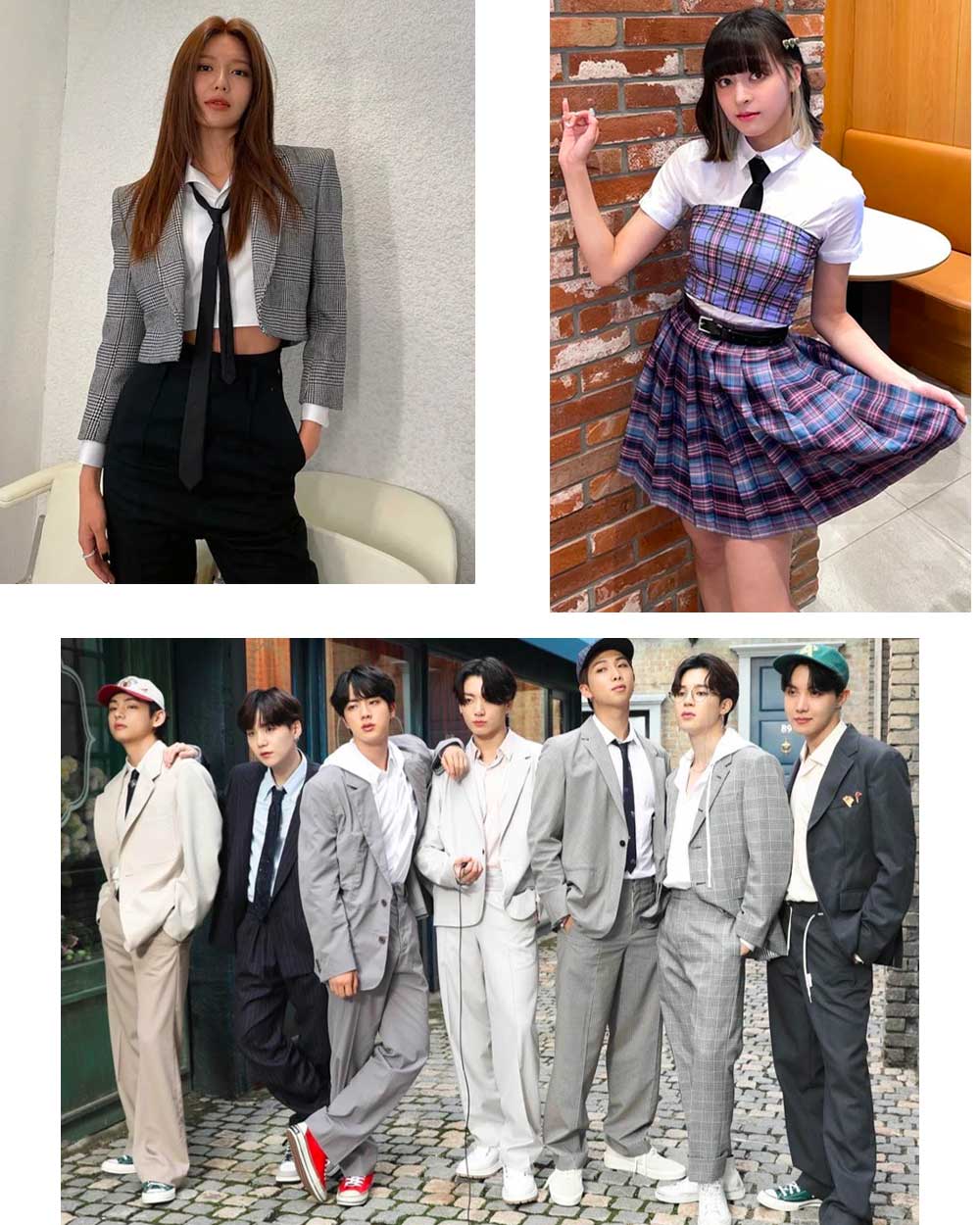

Promoted by fashion-forward groups like BTS and BlackPink, the style’s overall vibe feels like a nod to Korean school uniforms in the context of K-pop culture.
The European Preppy fashion style embodies a minimalistic yet chic approach to the classic American Preppy fashion look.
The style is characterized by tailored clothing like structured navy blue blazers, fitted neutral-colored trousers, and crisp white shirts.
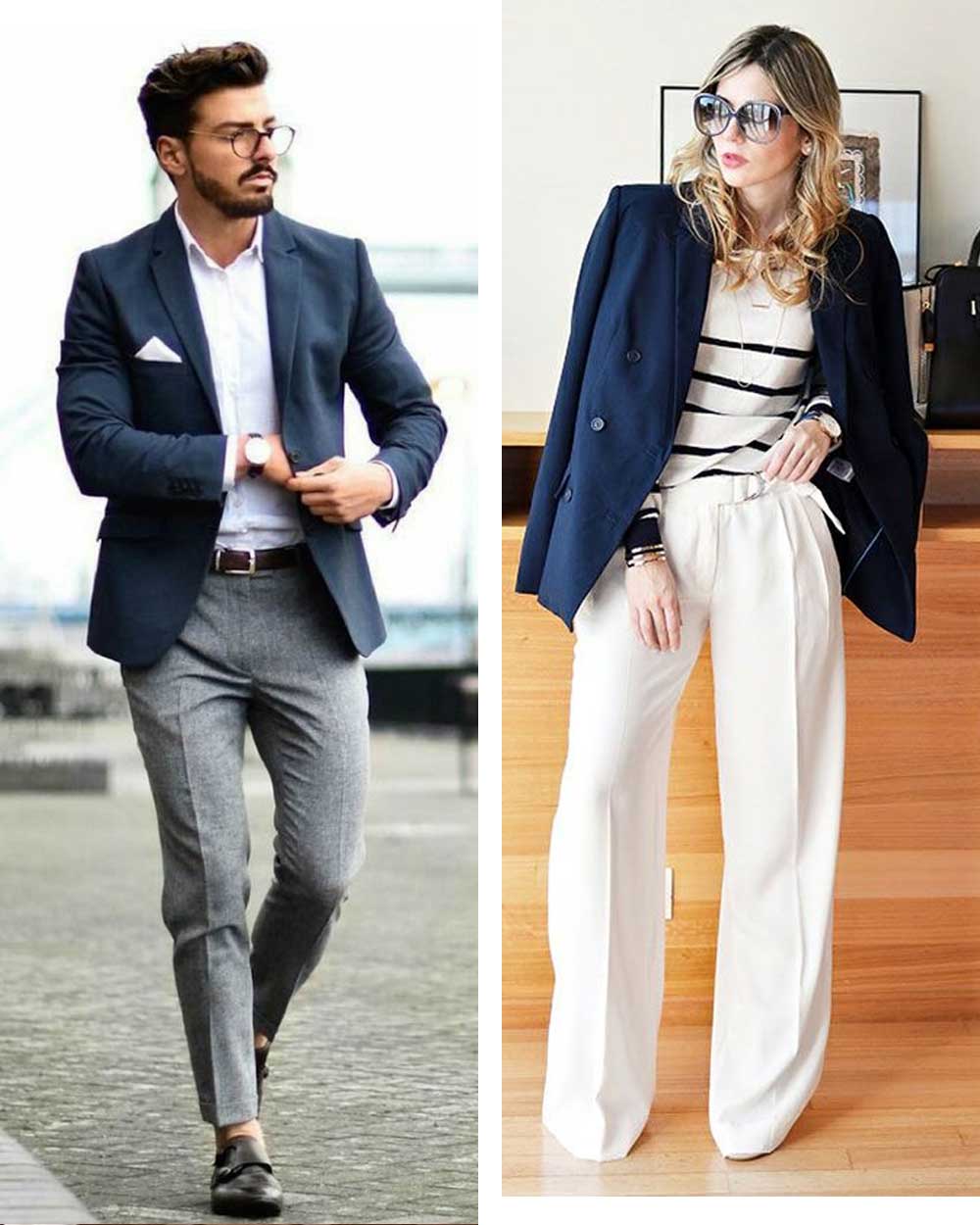

While famous in many European cities, the style is especially prominent in Paris, France (known as Bon Chic Bon Genre or BCBG) and Milano, Italy, two fashion capitals with exquisite fashion scenes.
The Arabic Preppy fashion style integrates mostly patterns and aesthetic visuals found in the British Preppy style with traditional Middle Eastern clothing and accessories.
Picture long, flowing garments such as tunics and kaftans styled in a Preppy manner layered over chinos and paired with loafers.
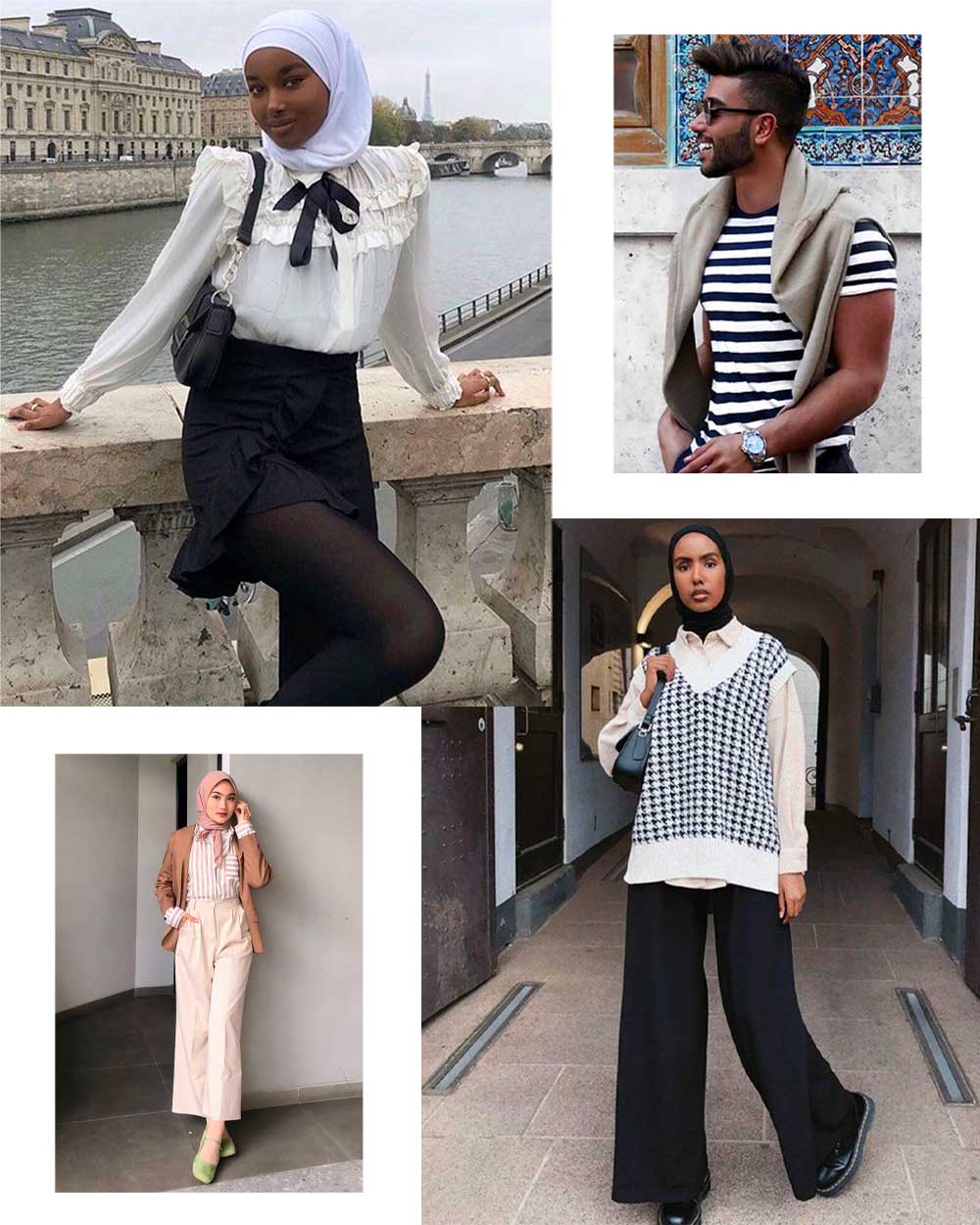

The Arabic Preppy style incorporates rich and earthy tones, reflecting the color palette seen in traditional Middle Eastern textiles.
This style is trendy in cosmopolitan cities in the Middle East like Dubai, UAE, and Riyadh, Saudi Arabia.
Weekly Newsletter
Keep up with the latest in fashion, beauty and style!
After years of managing hundreds of fashion brands from London’s office of a global retailer, Mandy has ventured into freelancing. Connected with several fashion retailers and media platforms in the US, Australia, and the UK, Mandy uses her expertise to consult for emerging fashion brands create top-notch content as an editorial strategist for several online publications.

